
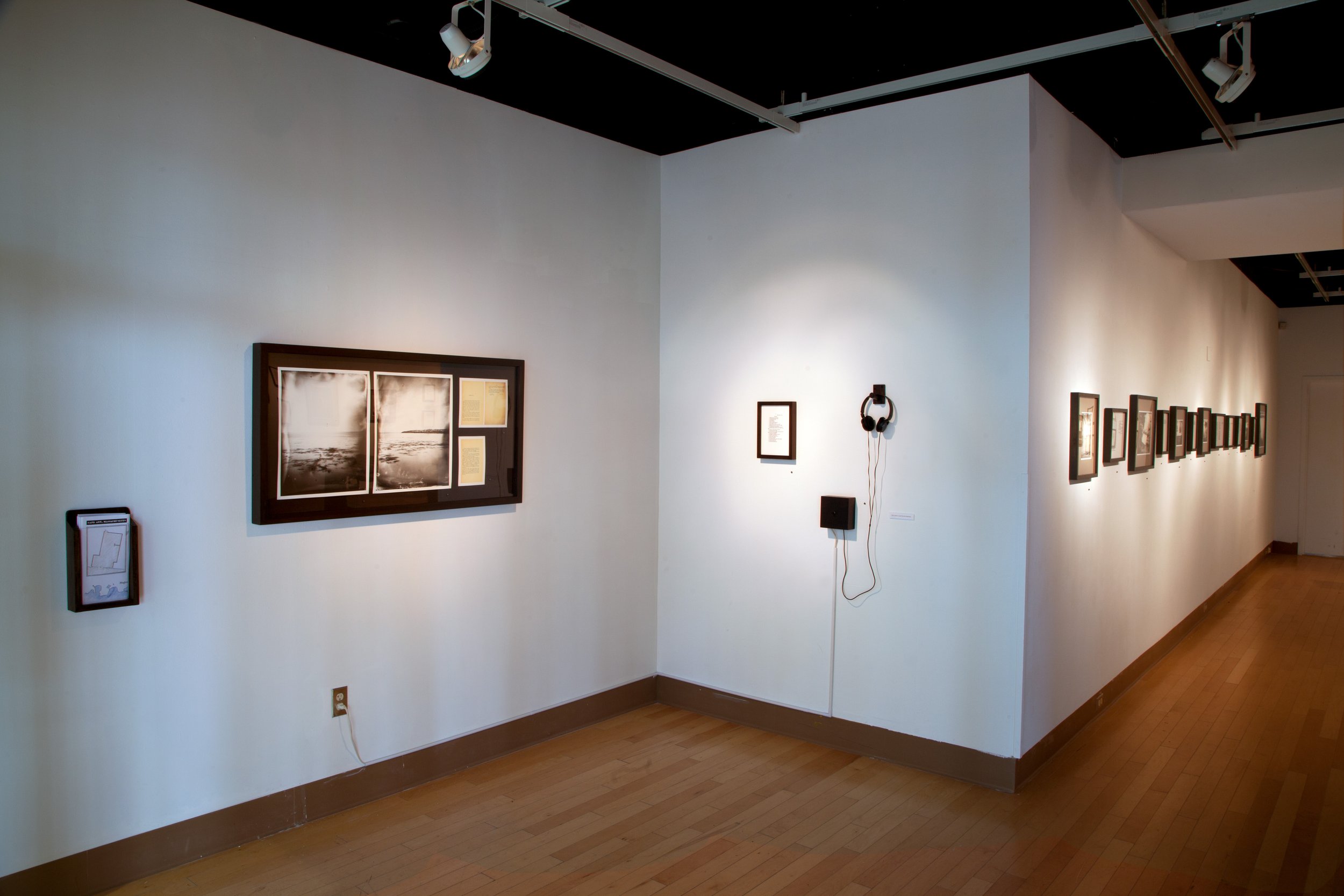
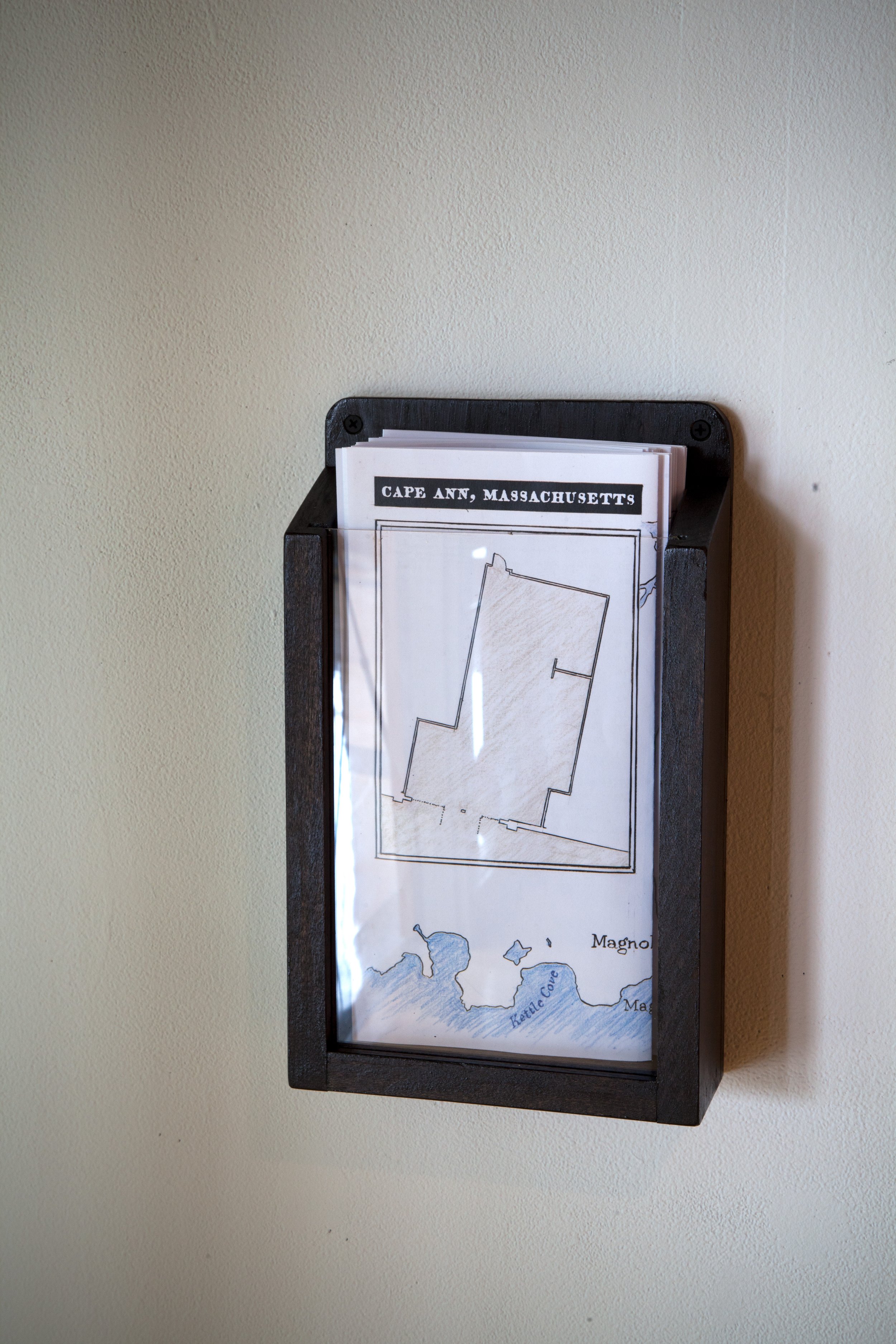
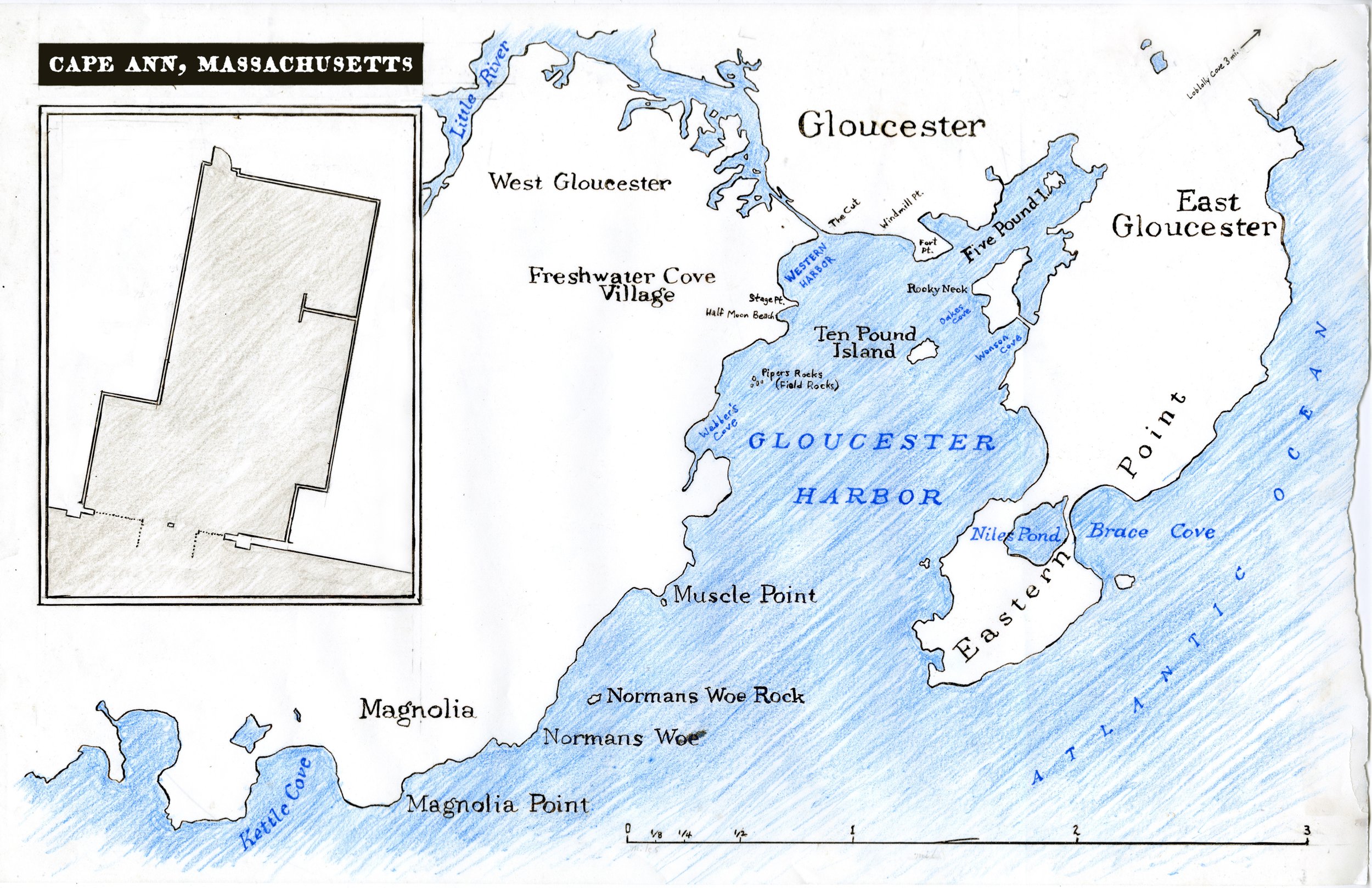
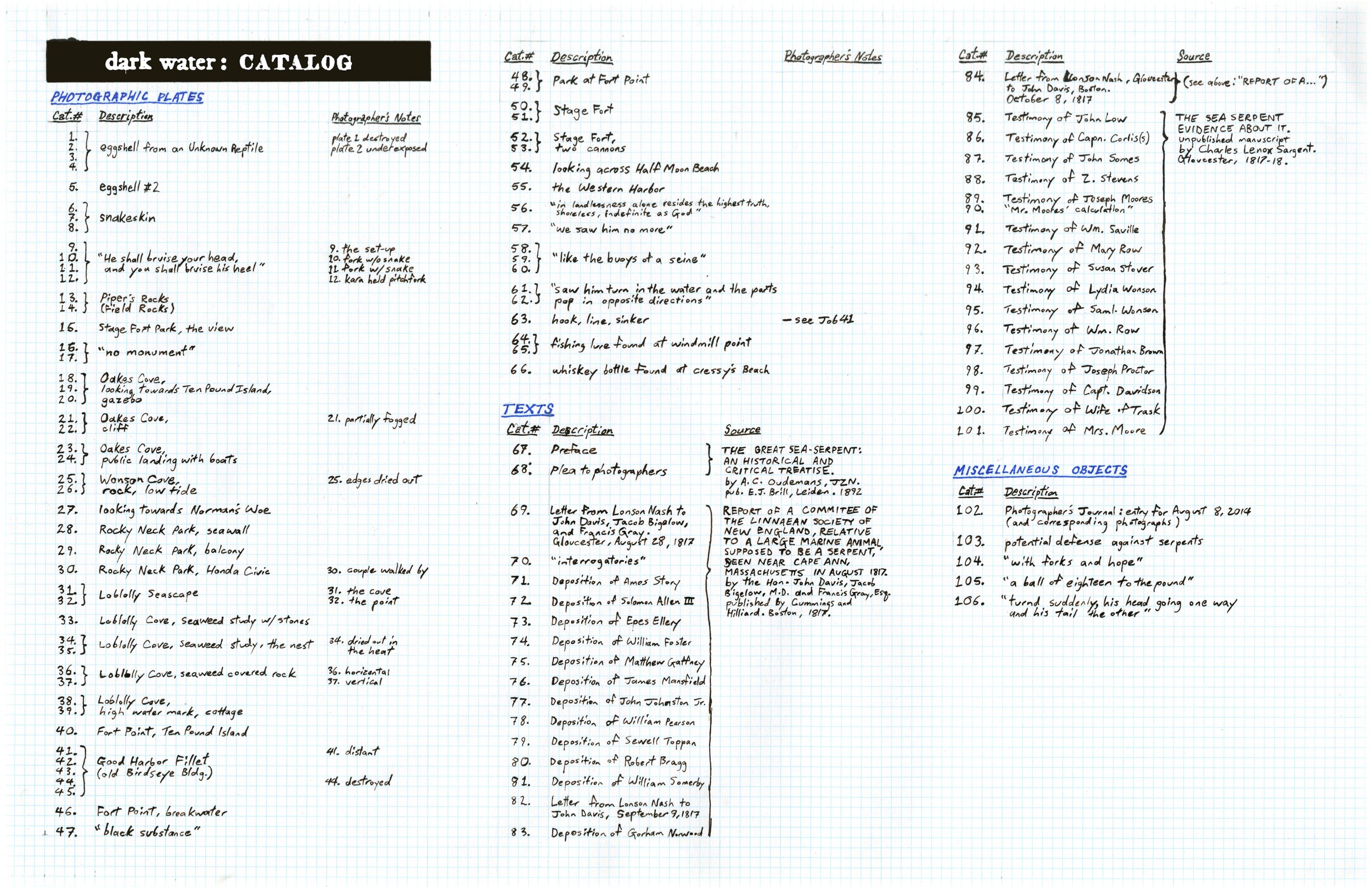
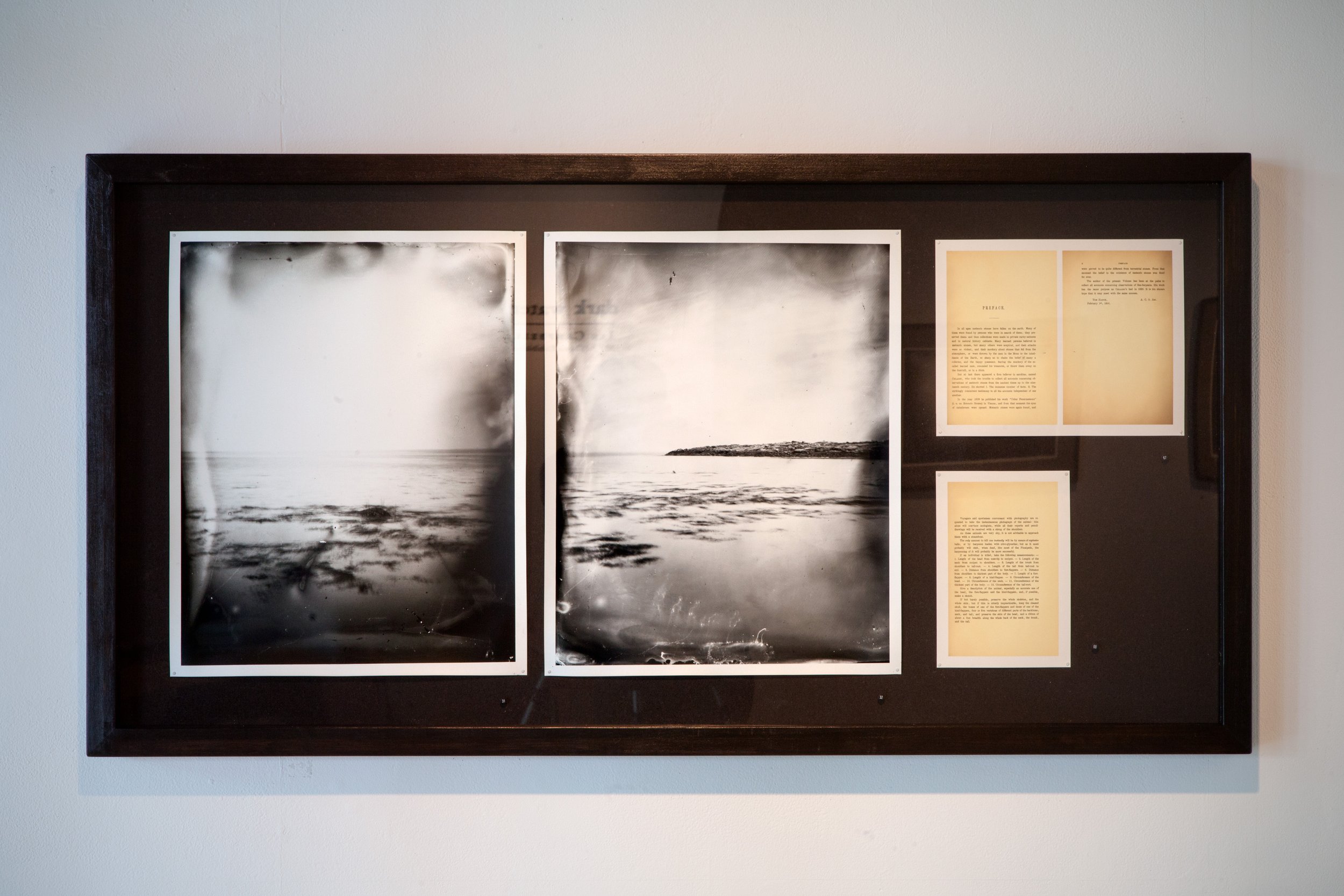
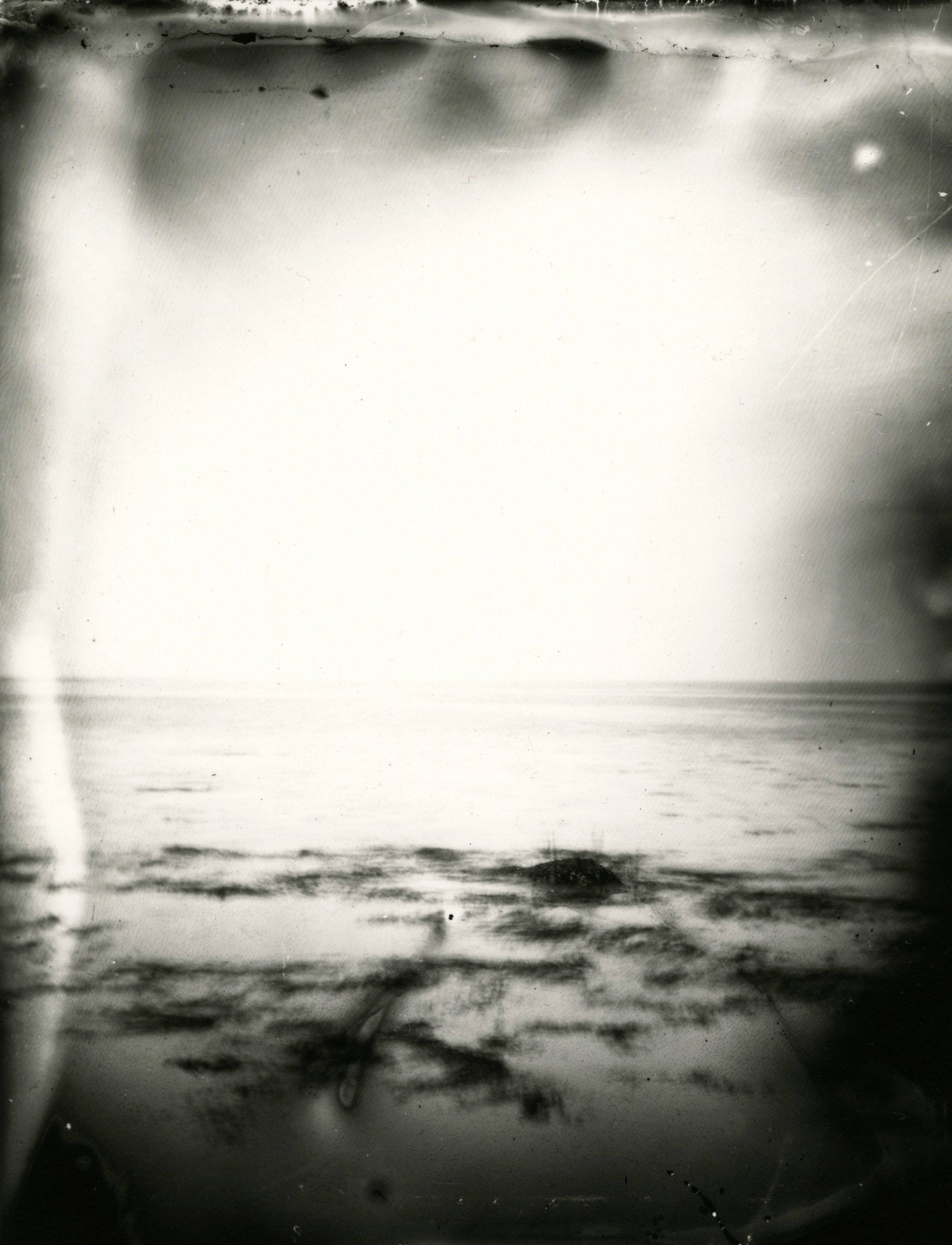
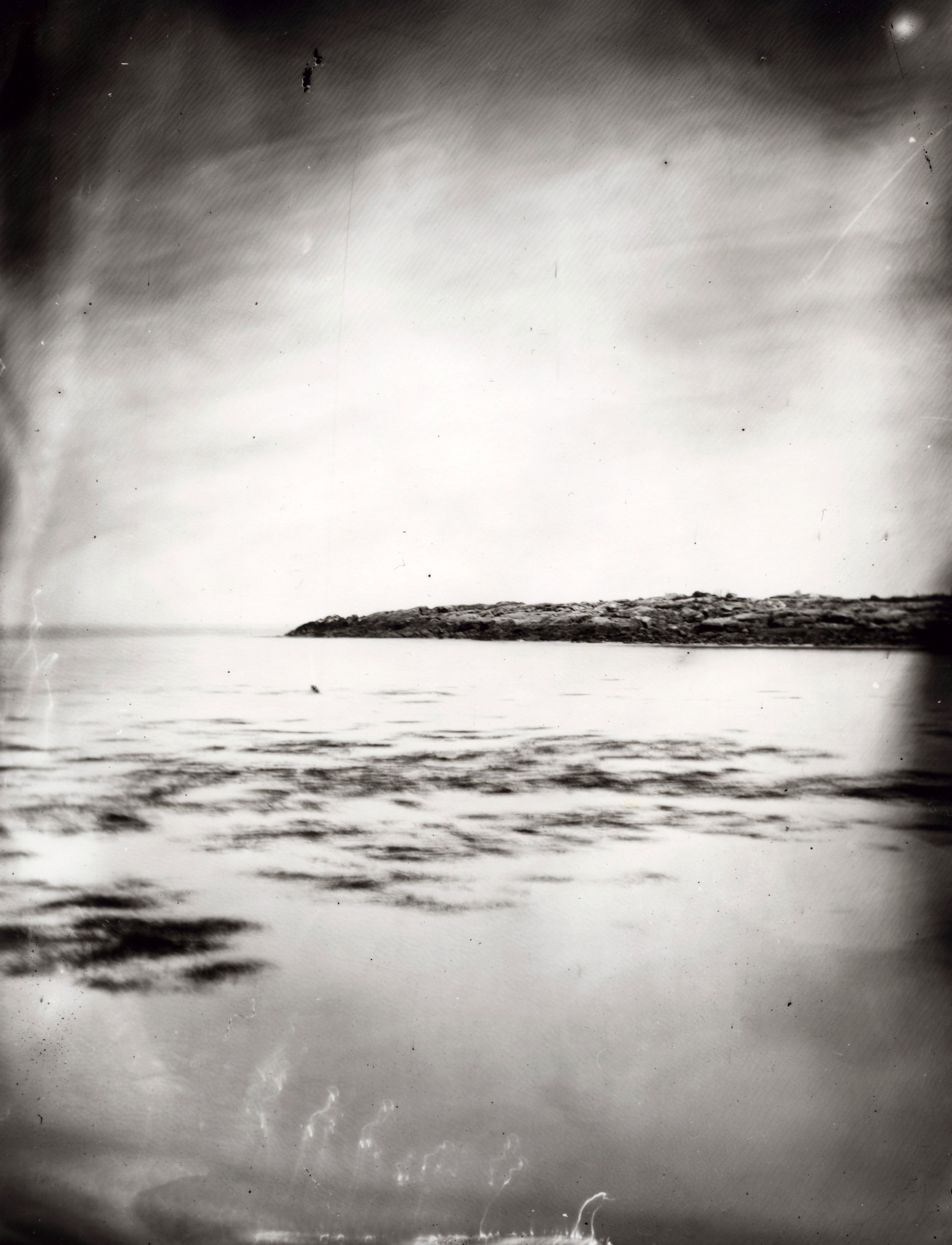
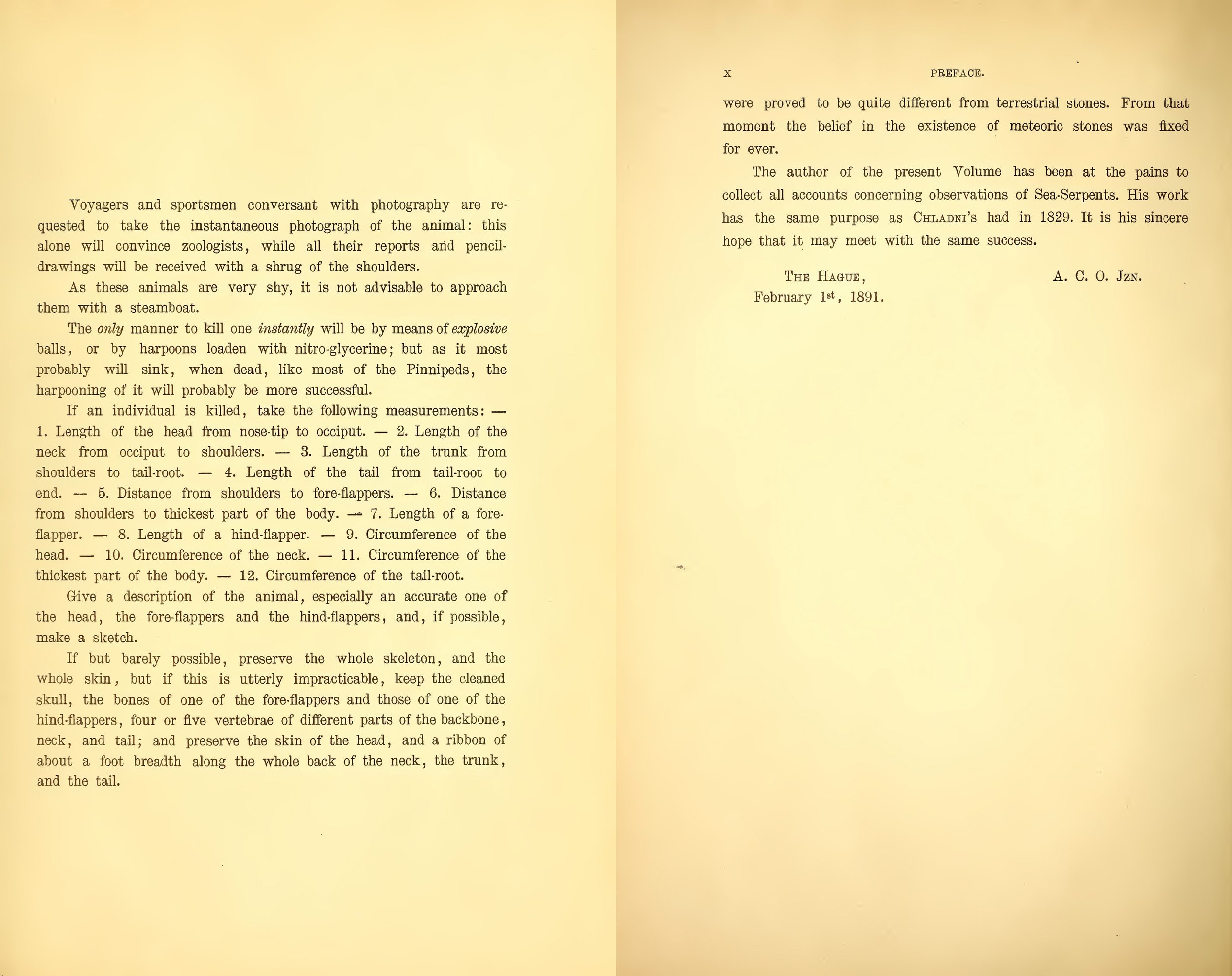
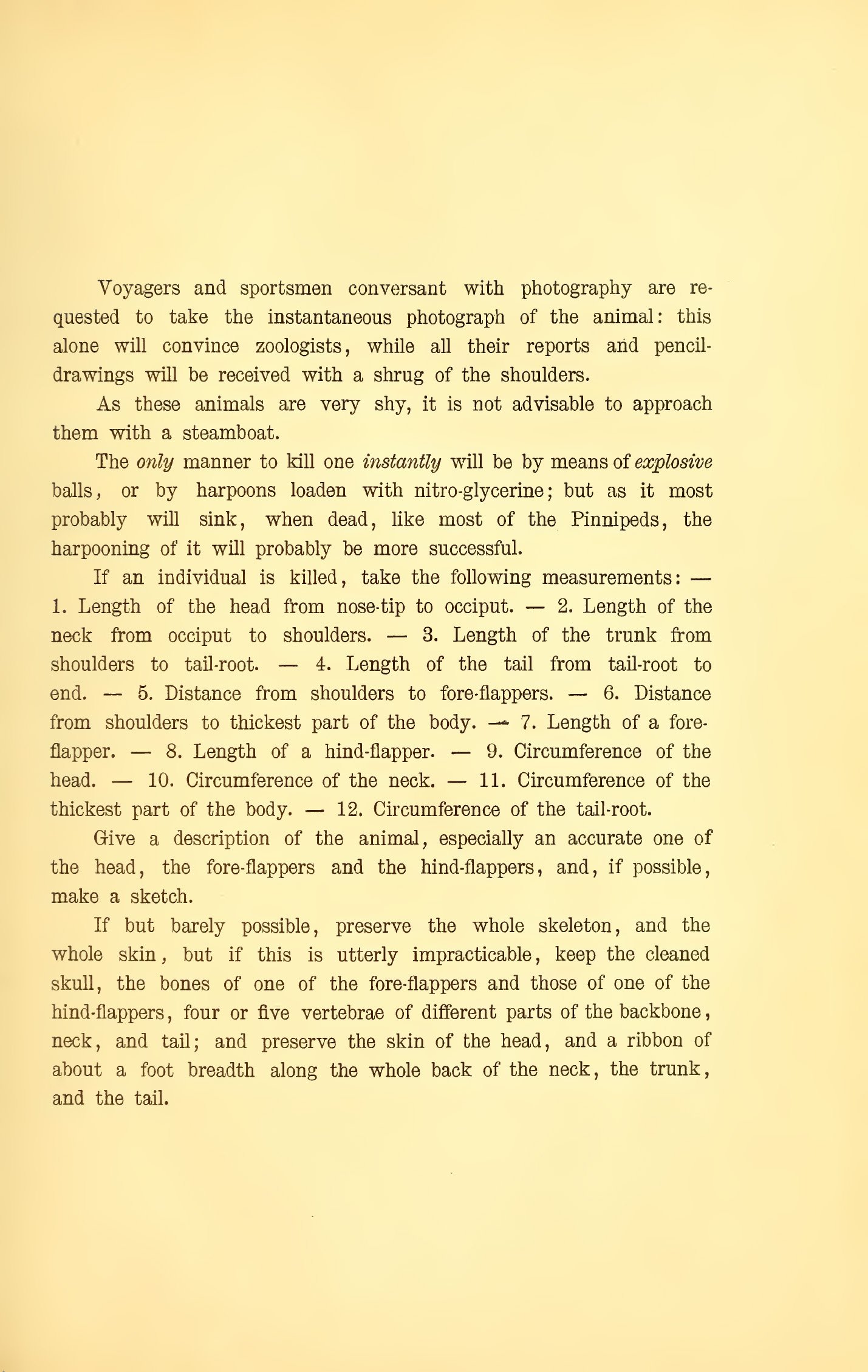
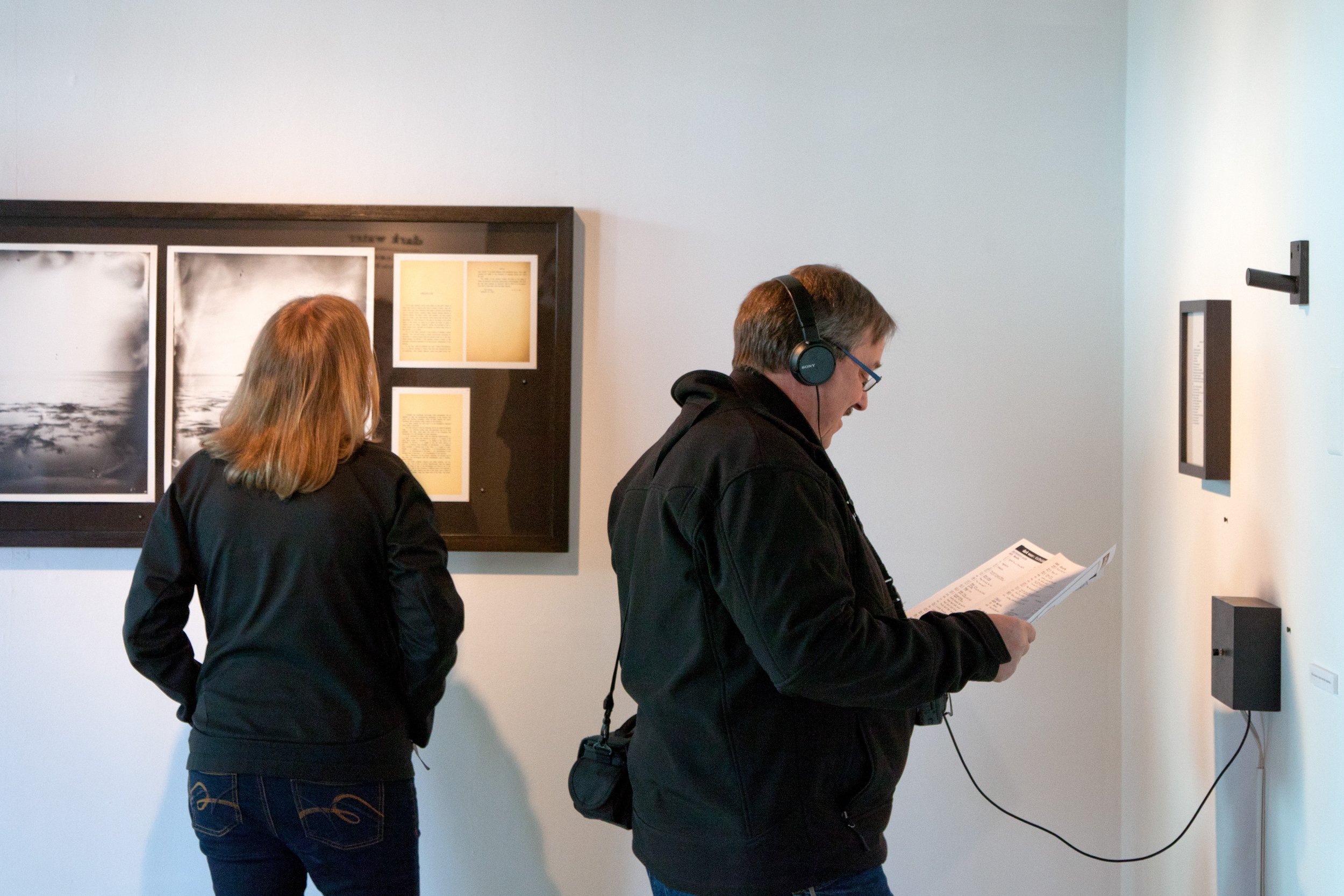
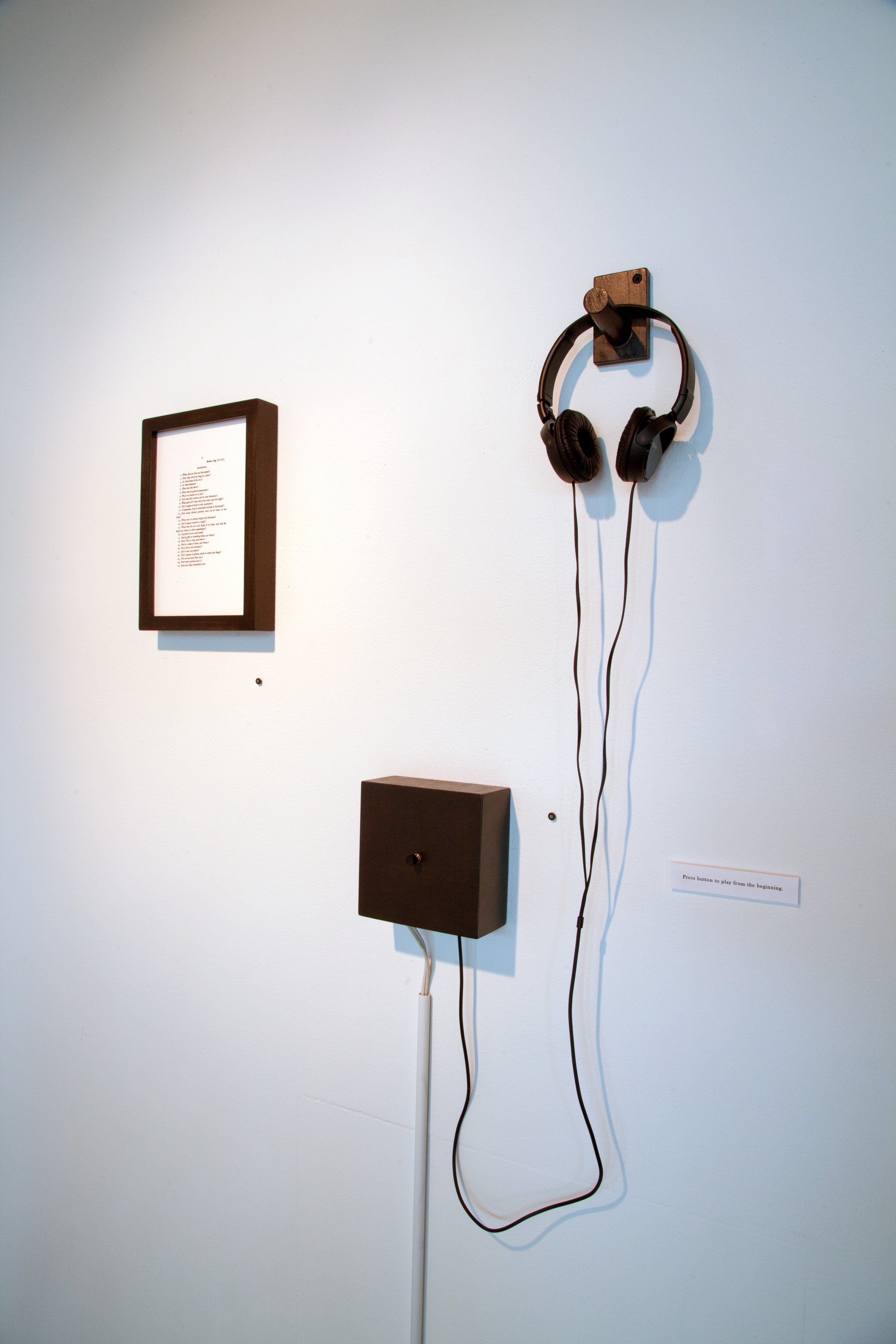
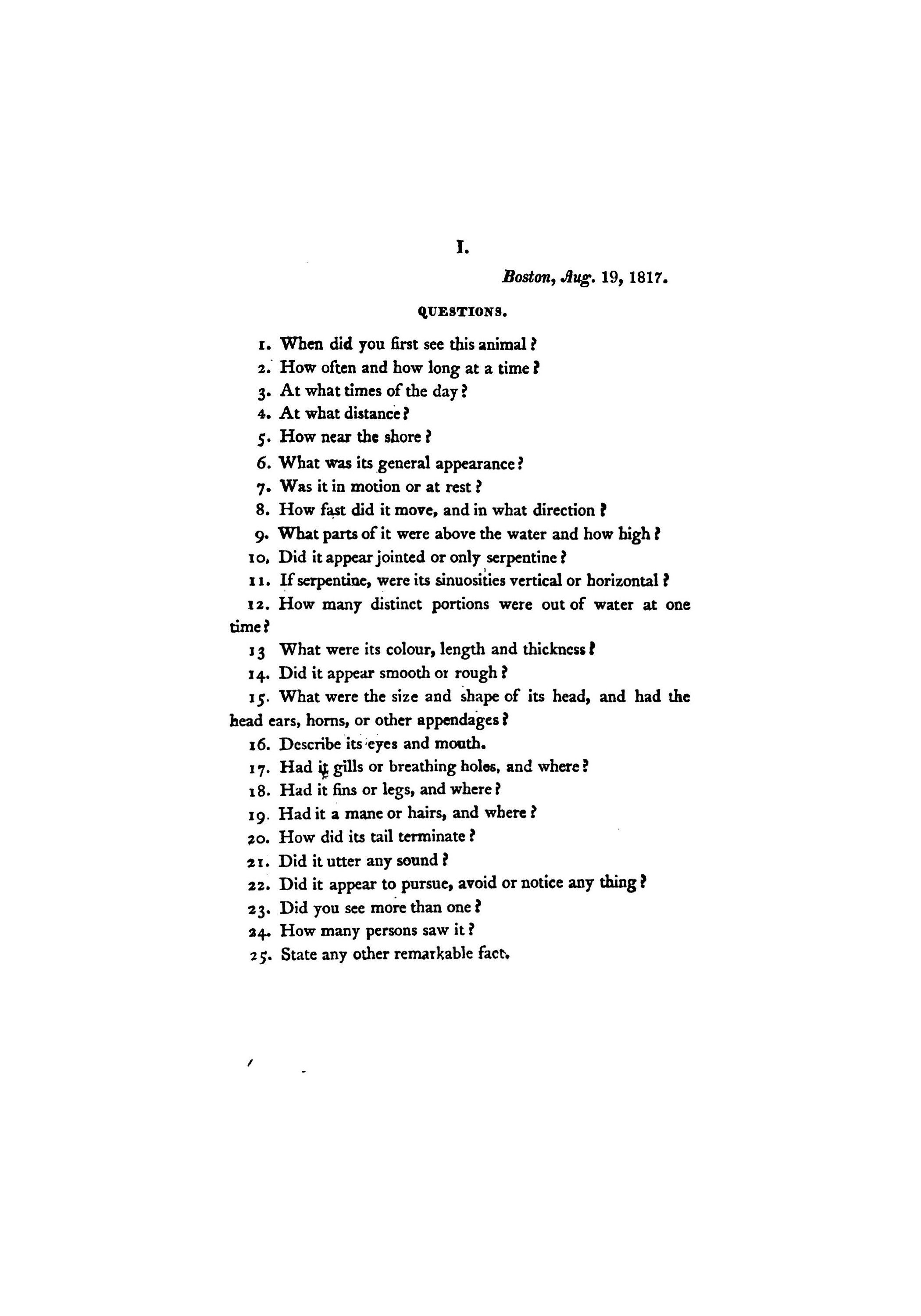
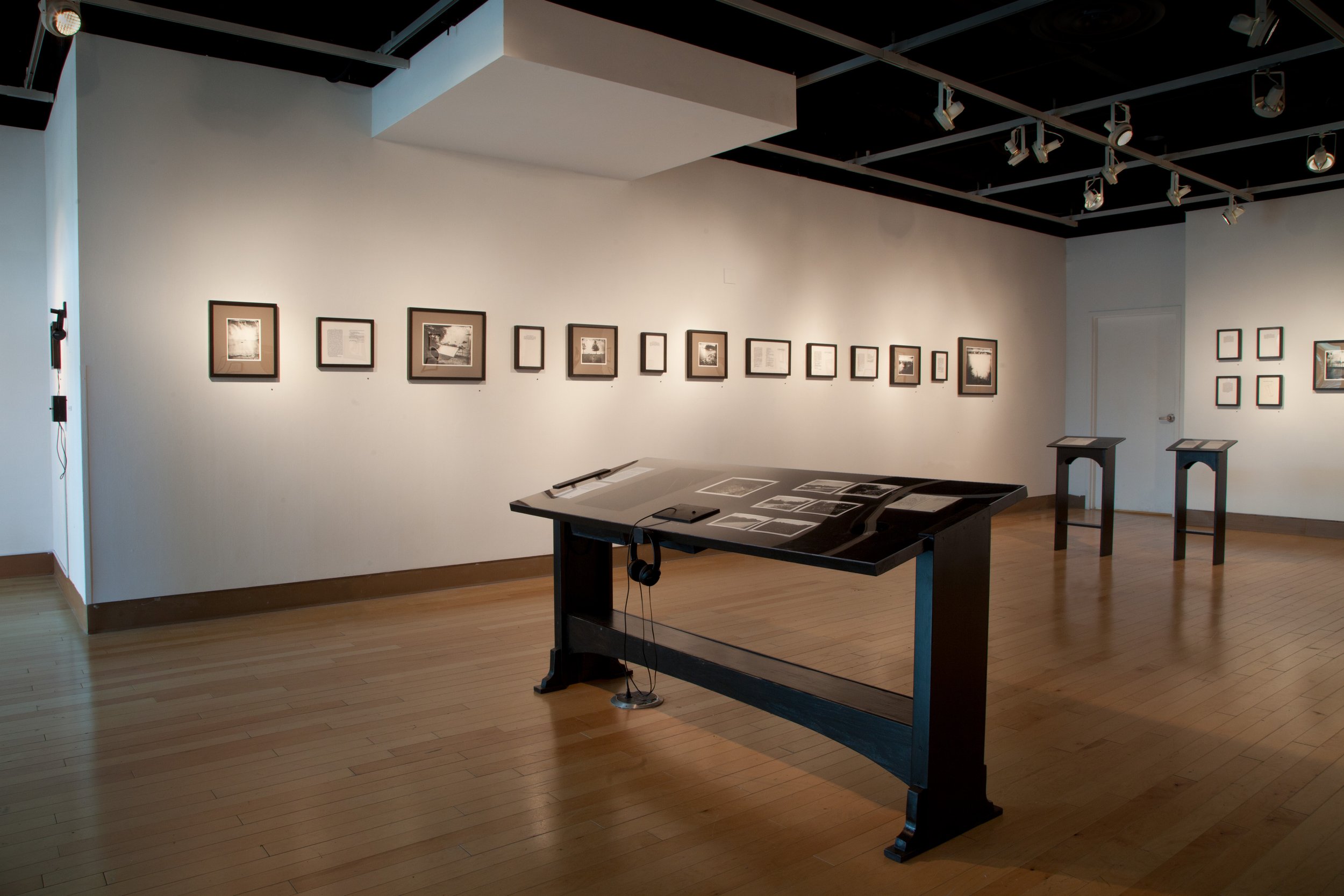
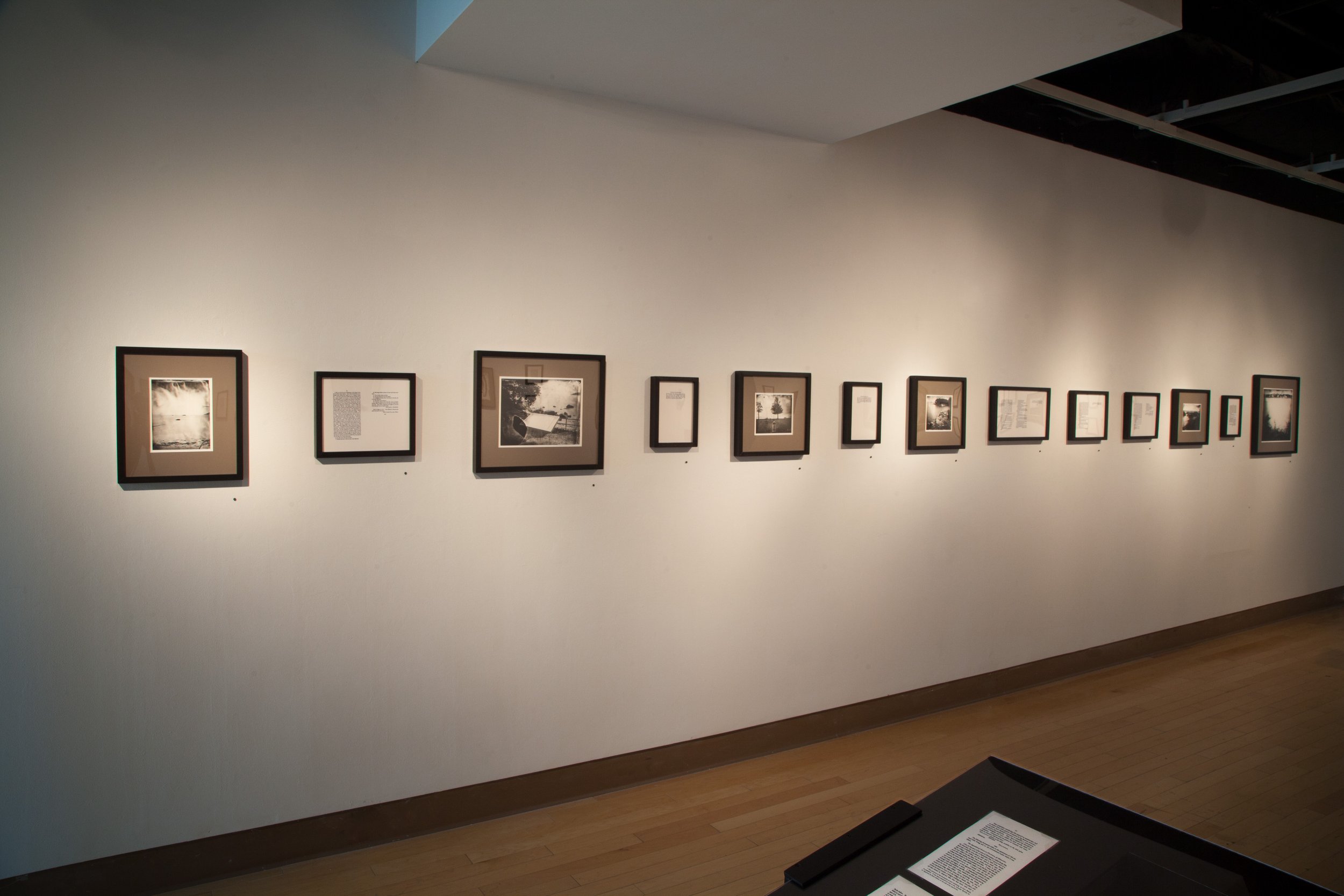
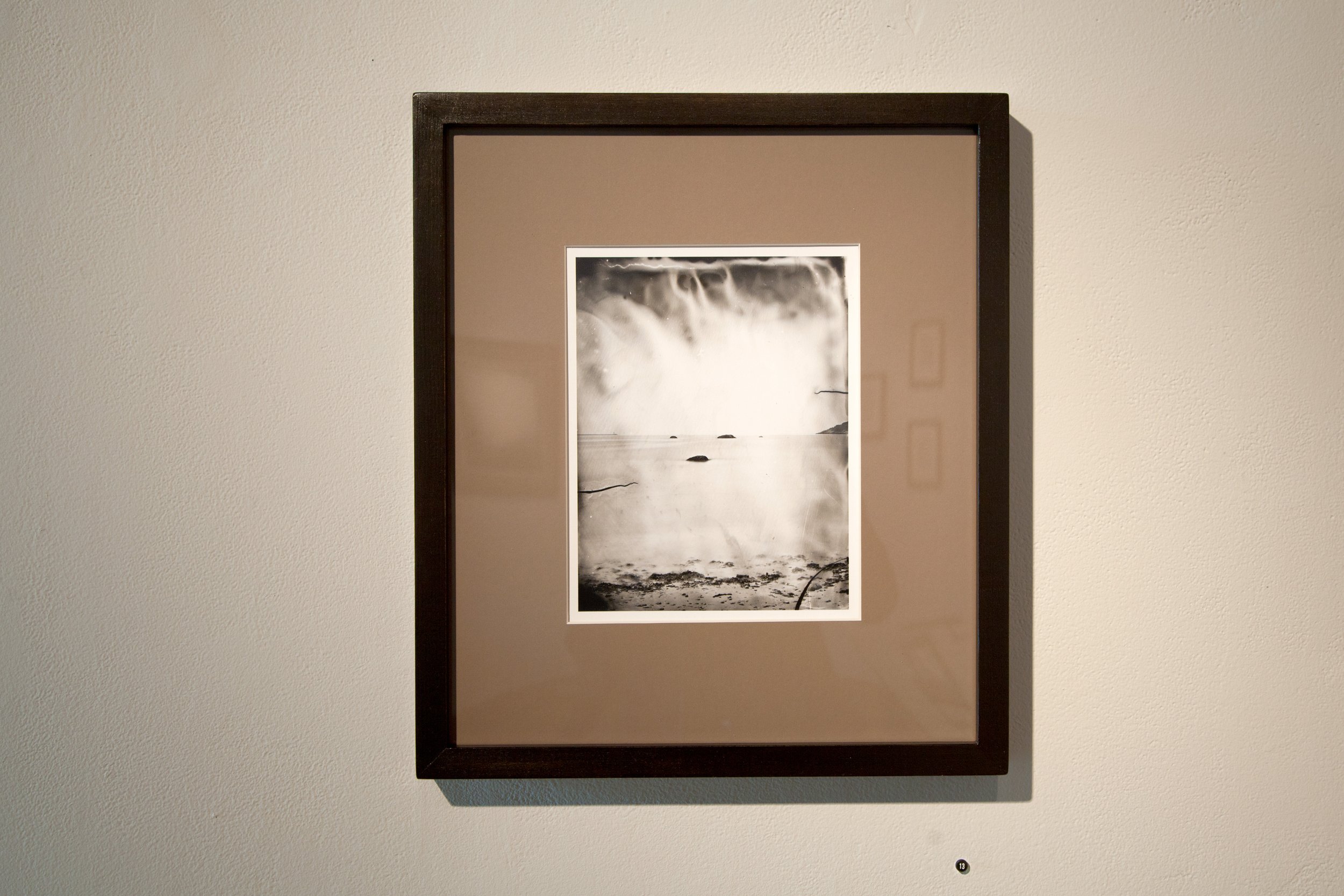
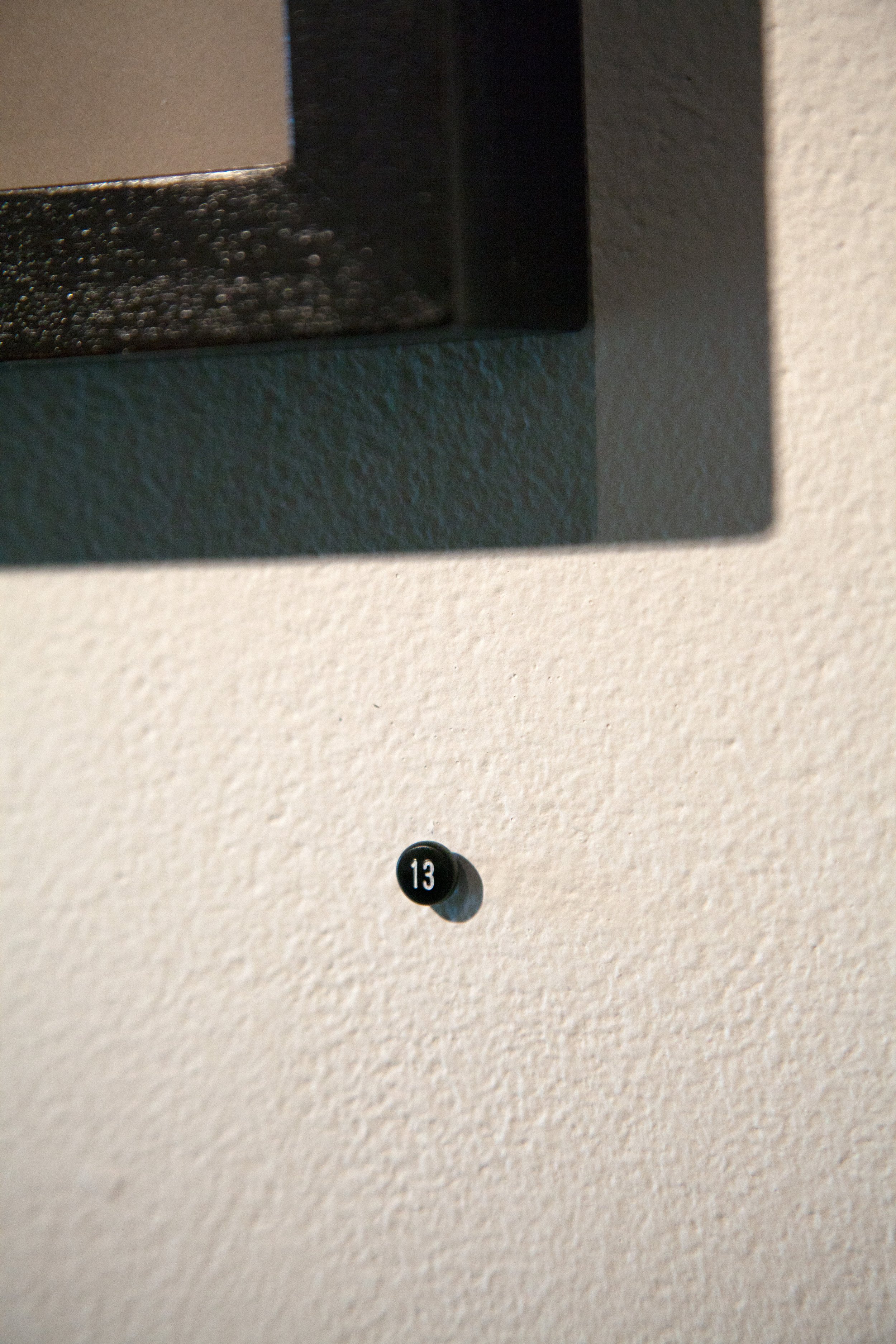
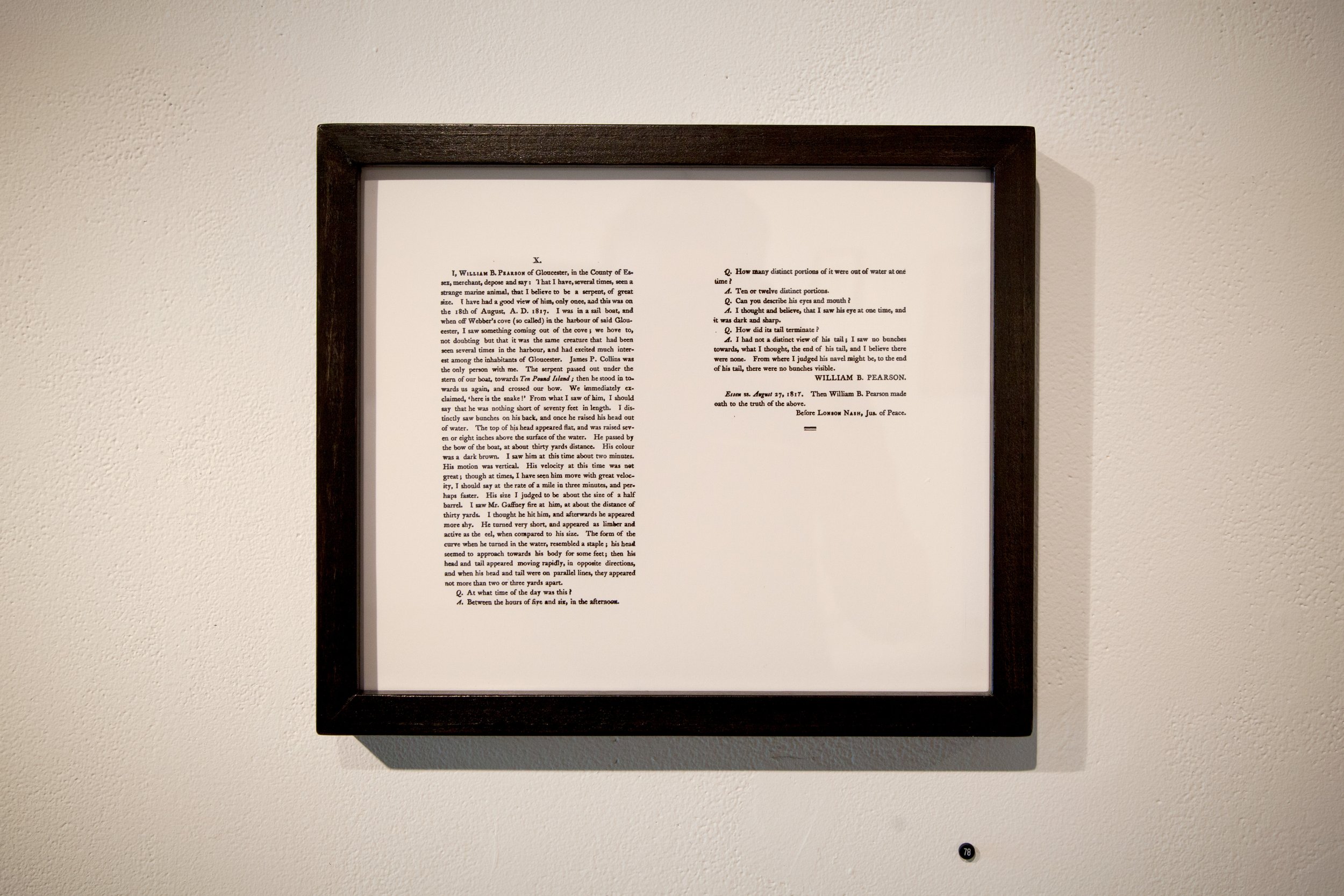
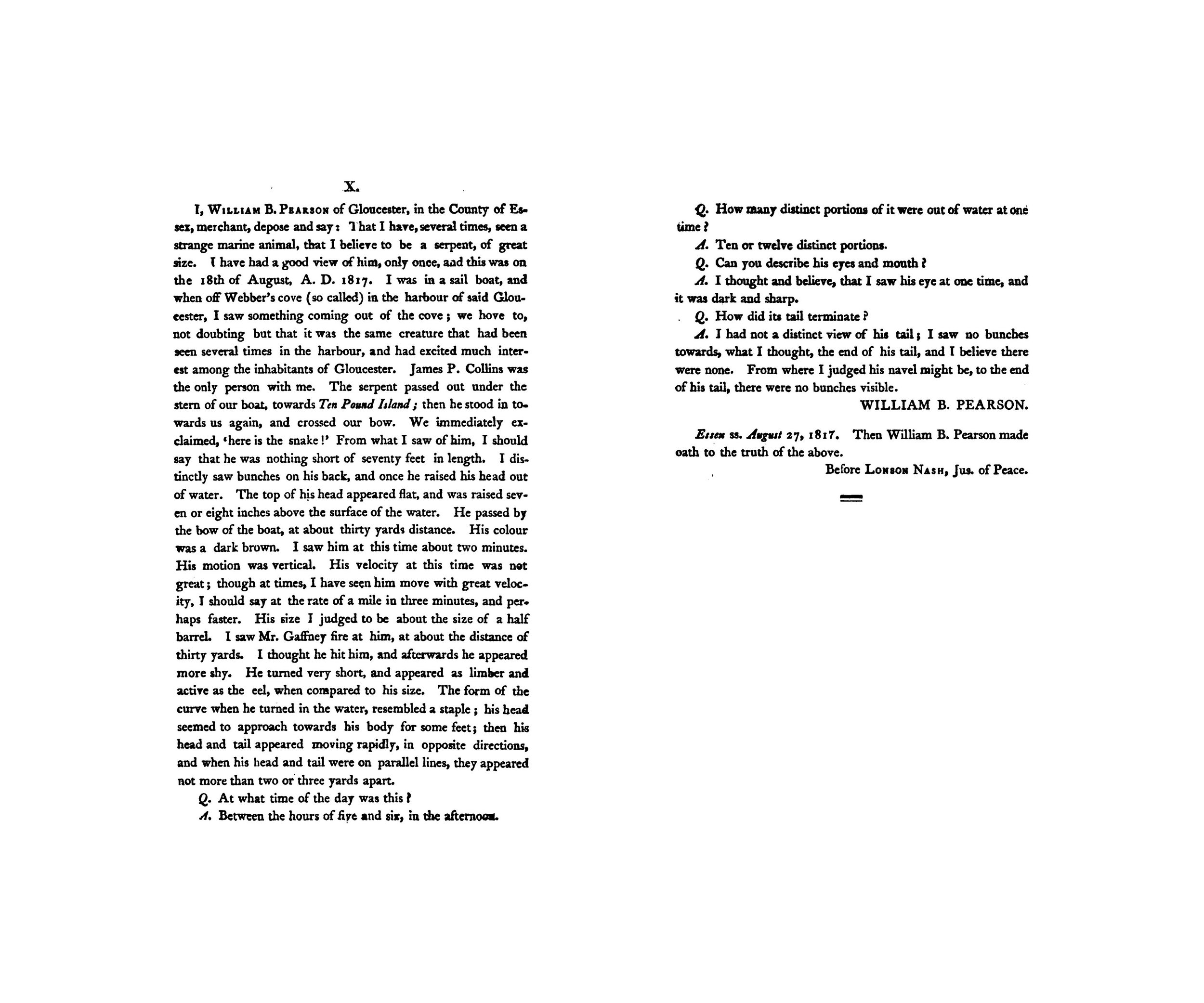
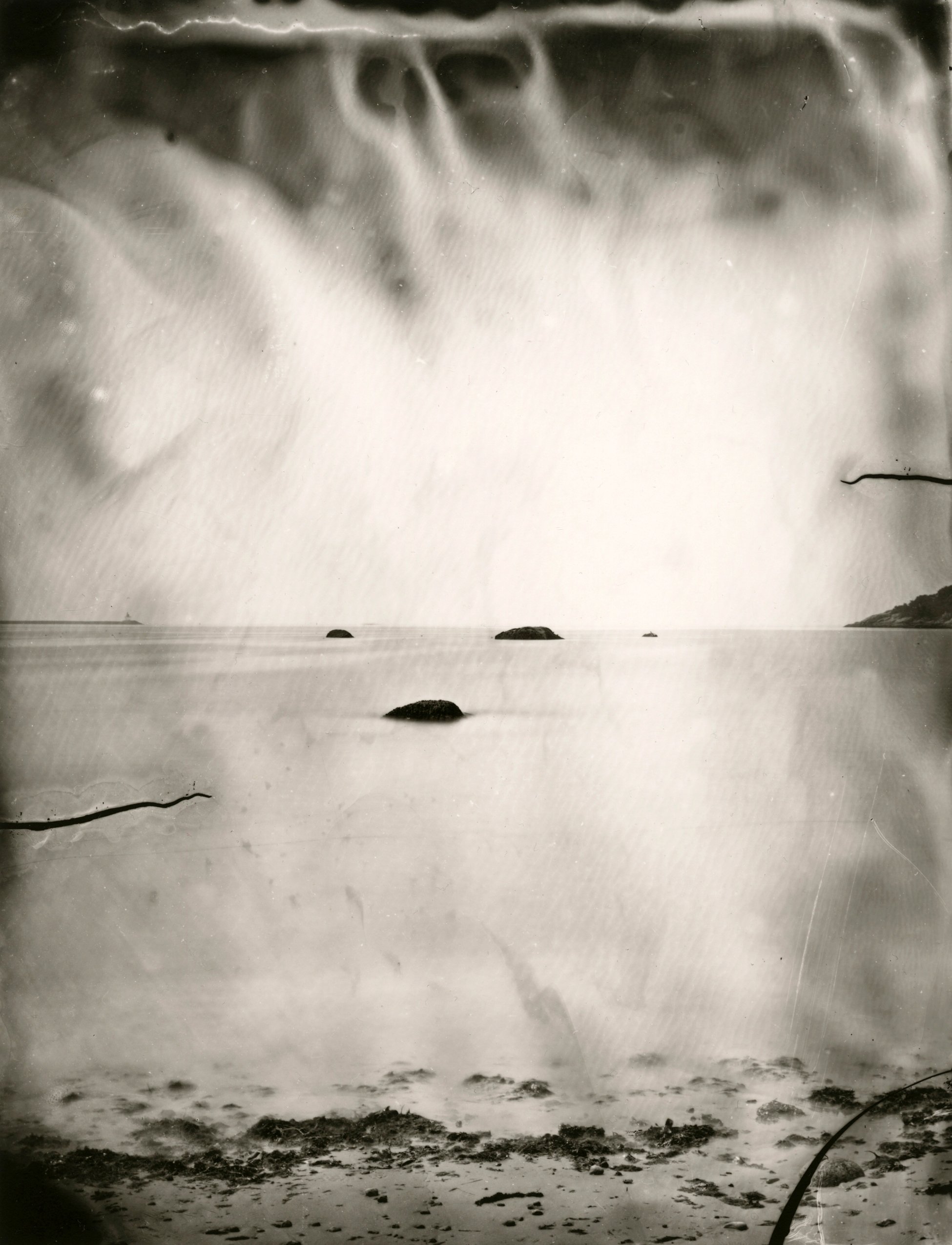
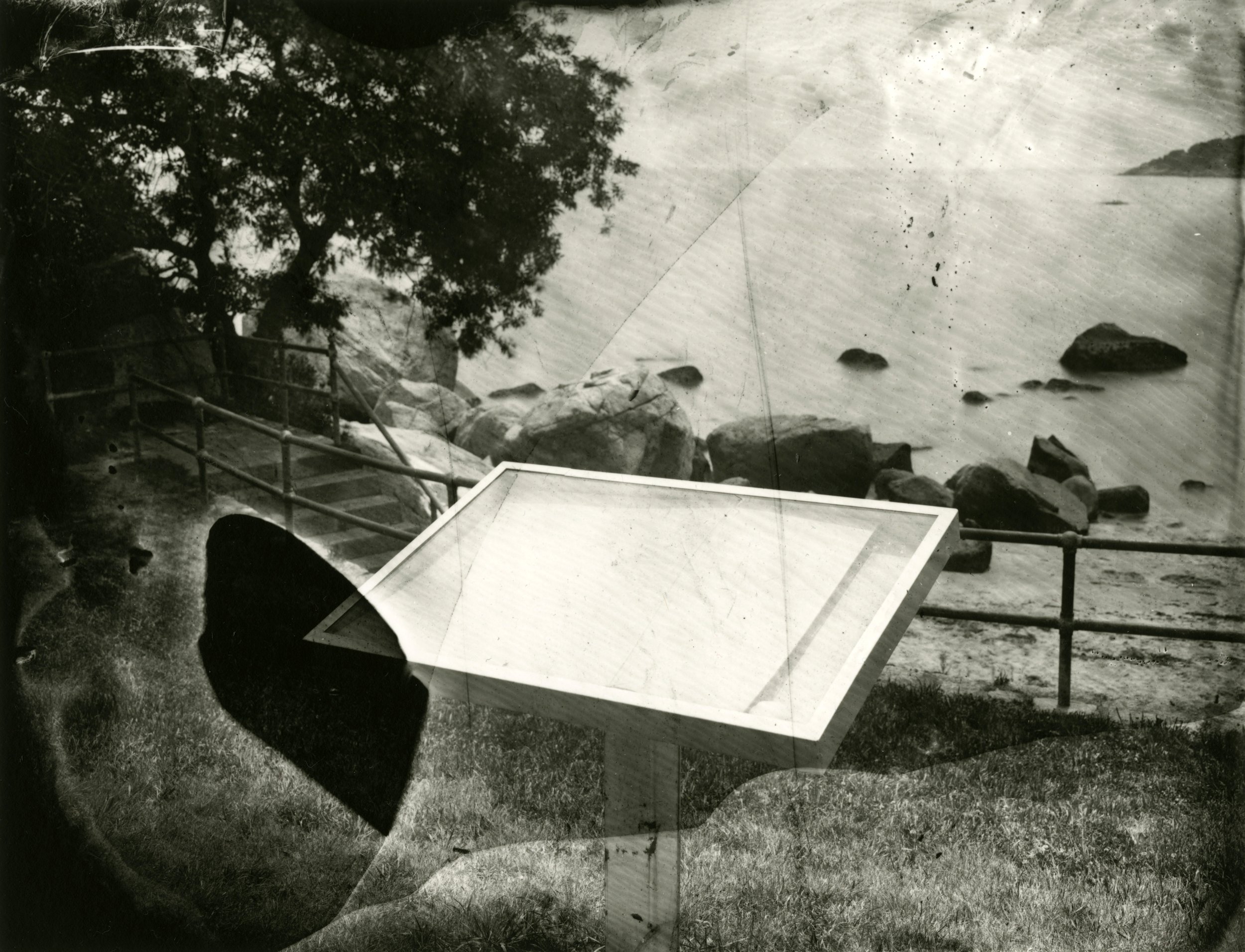
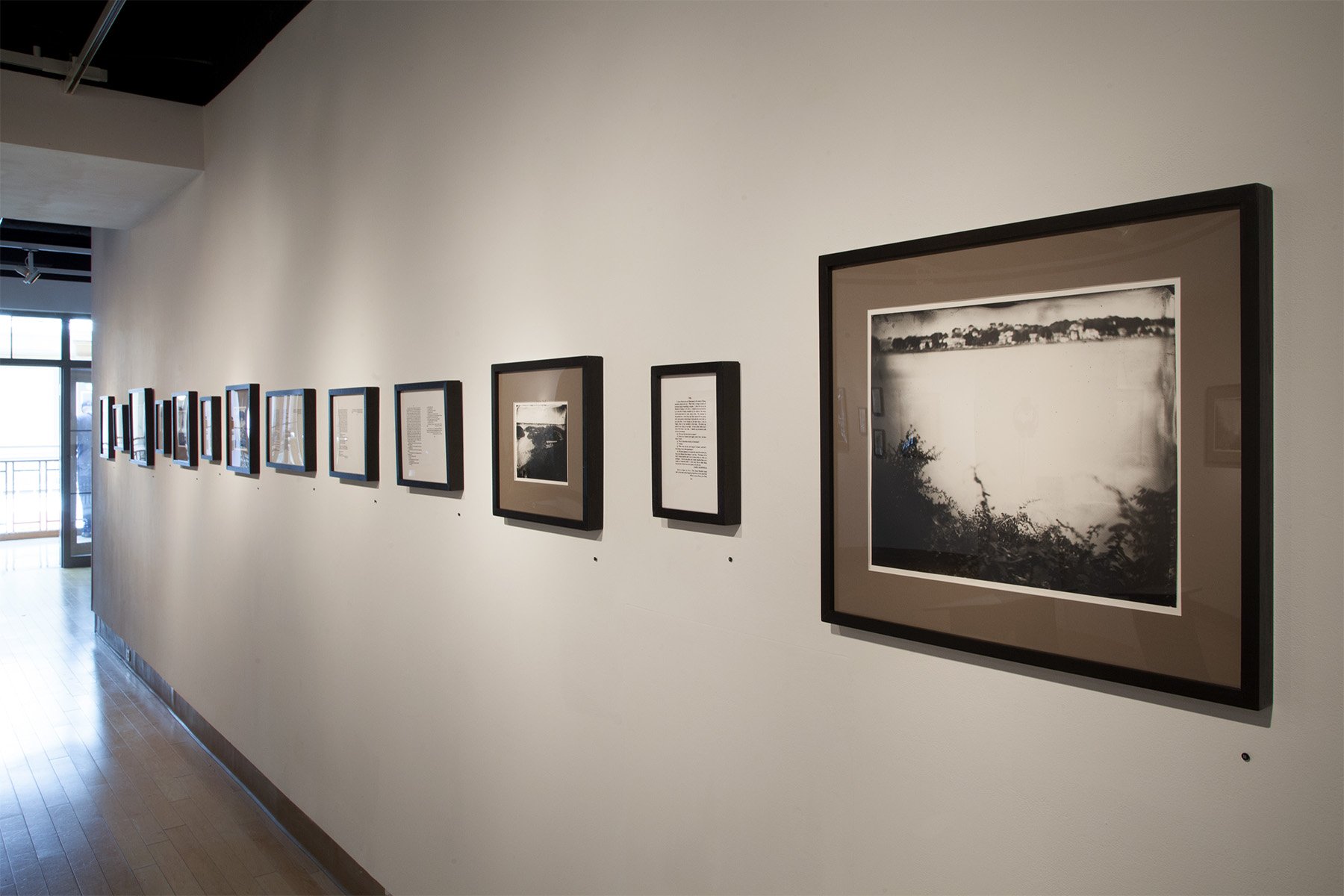
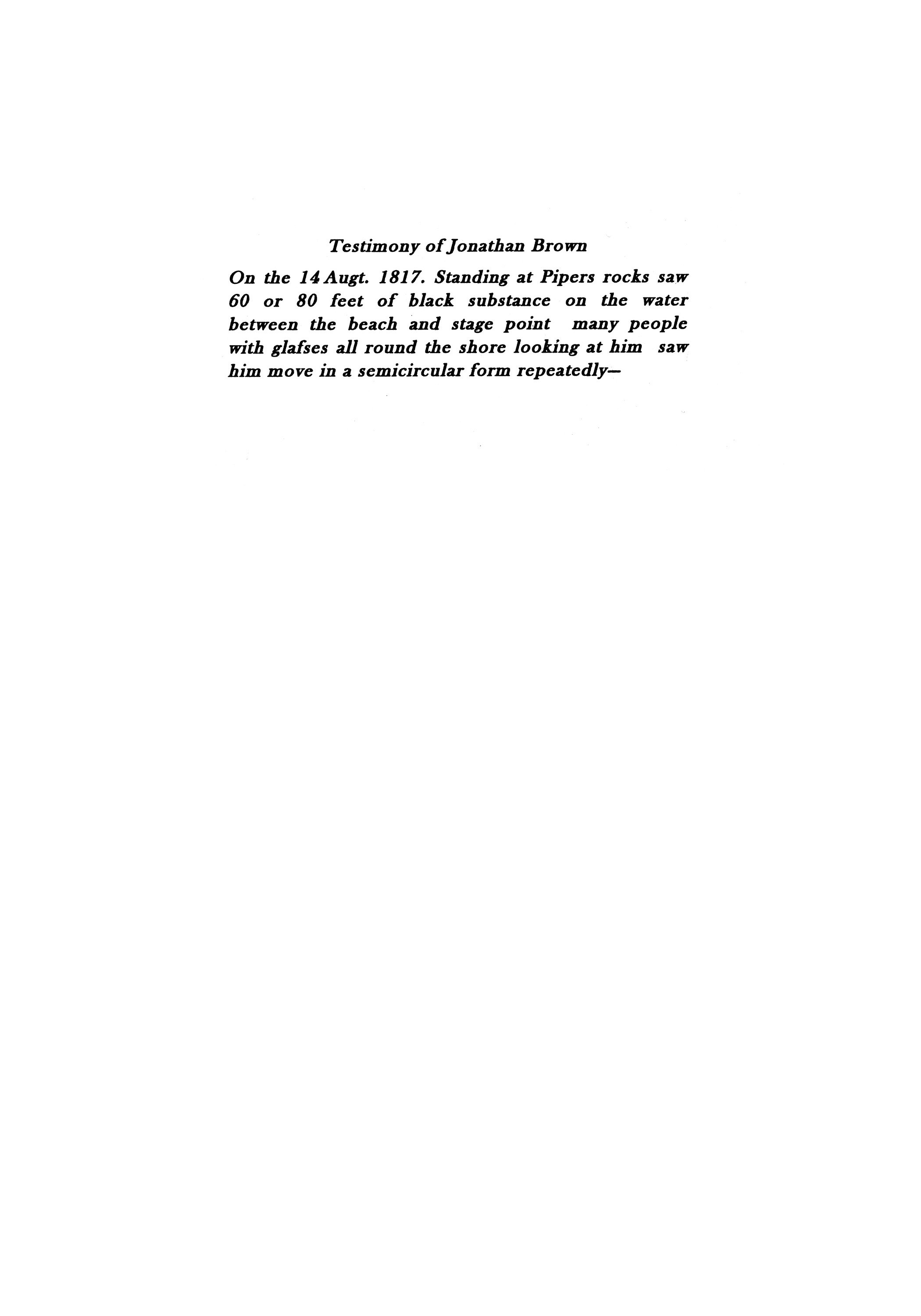
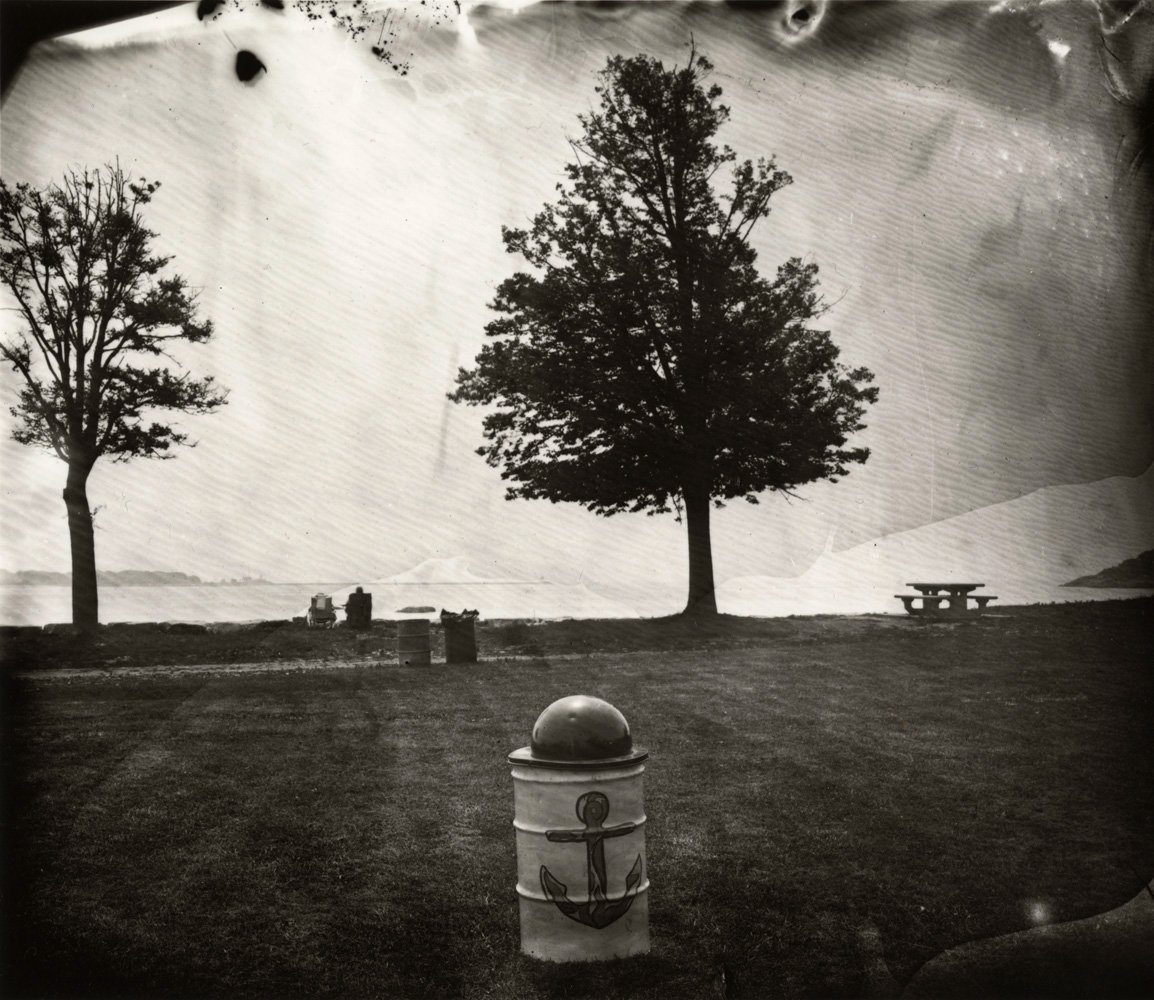
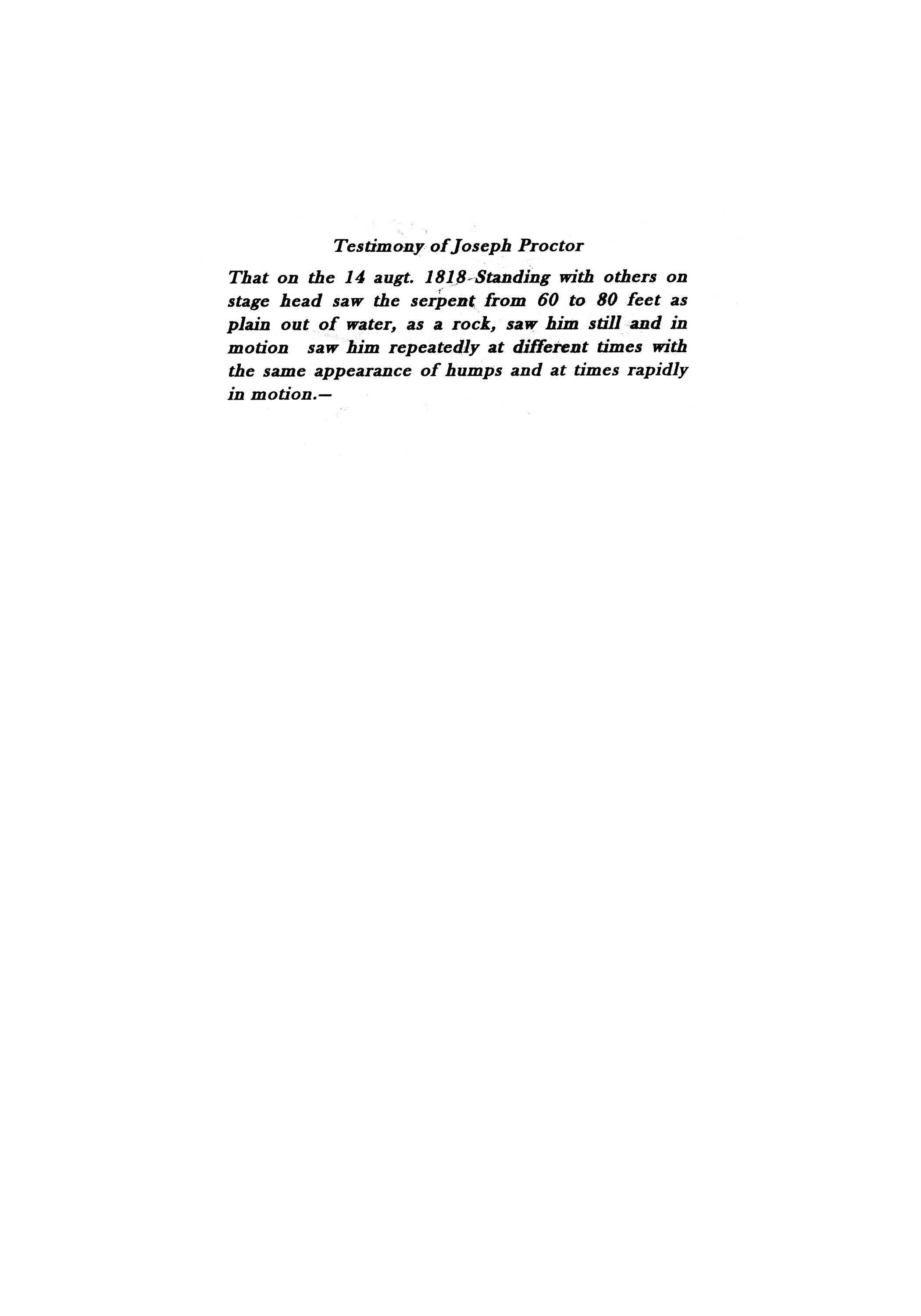
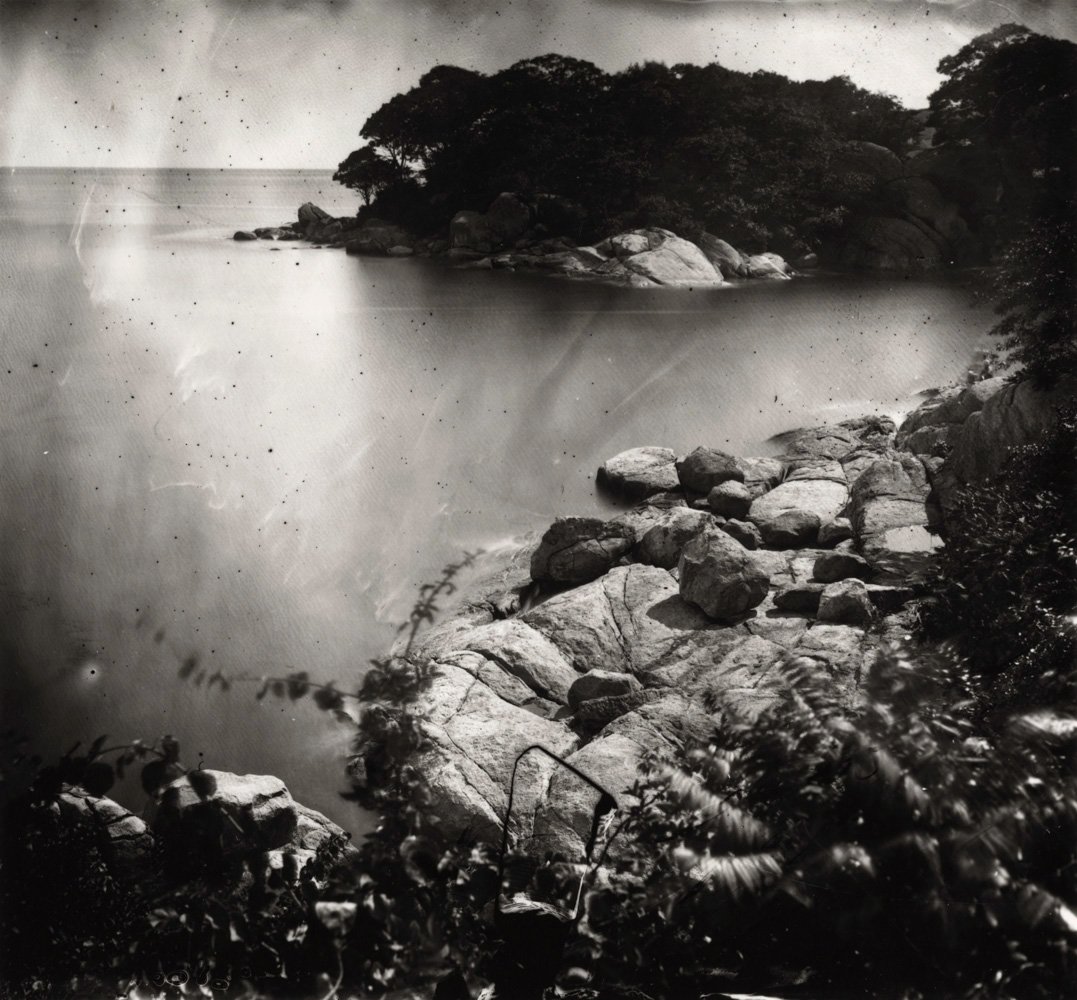
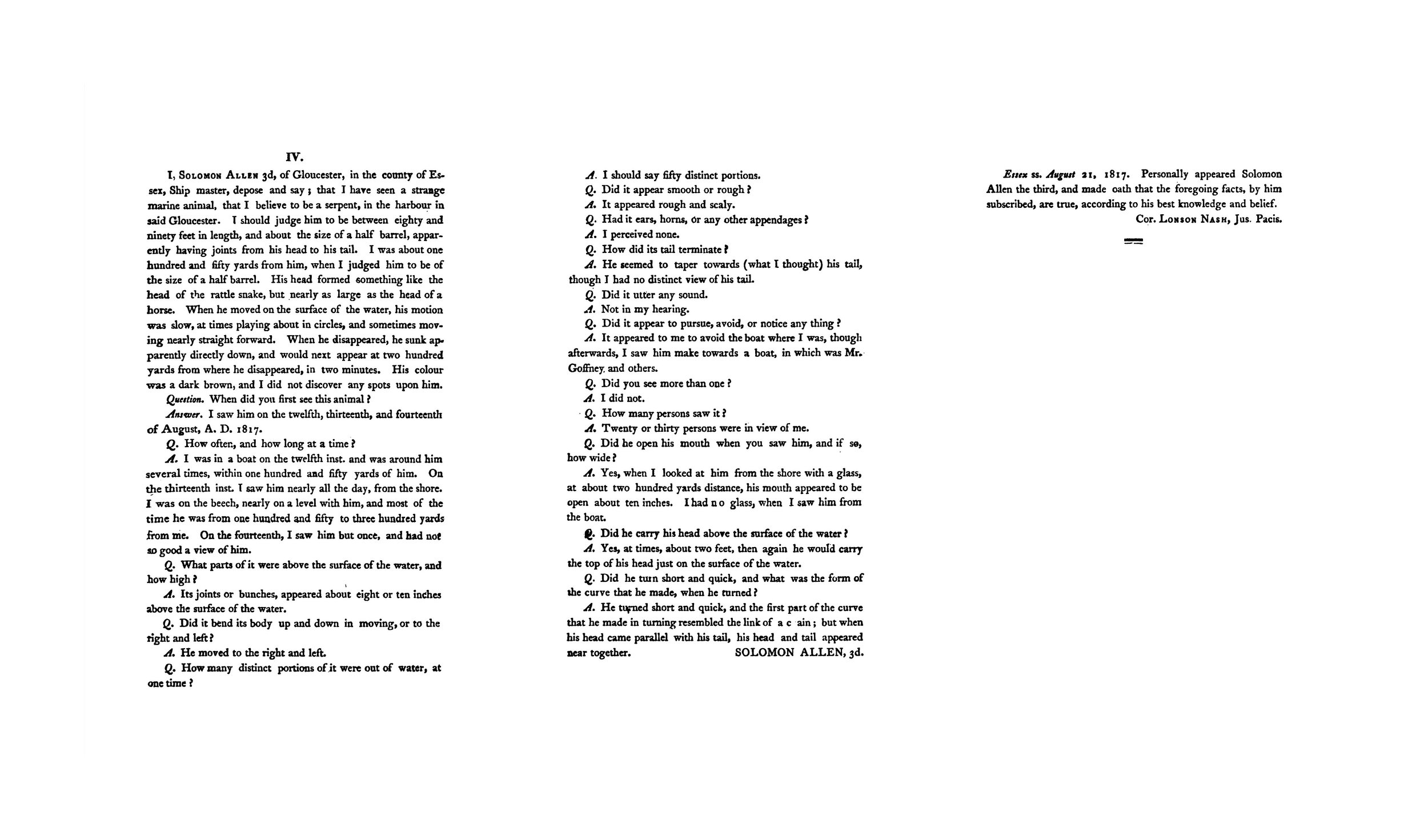
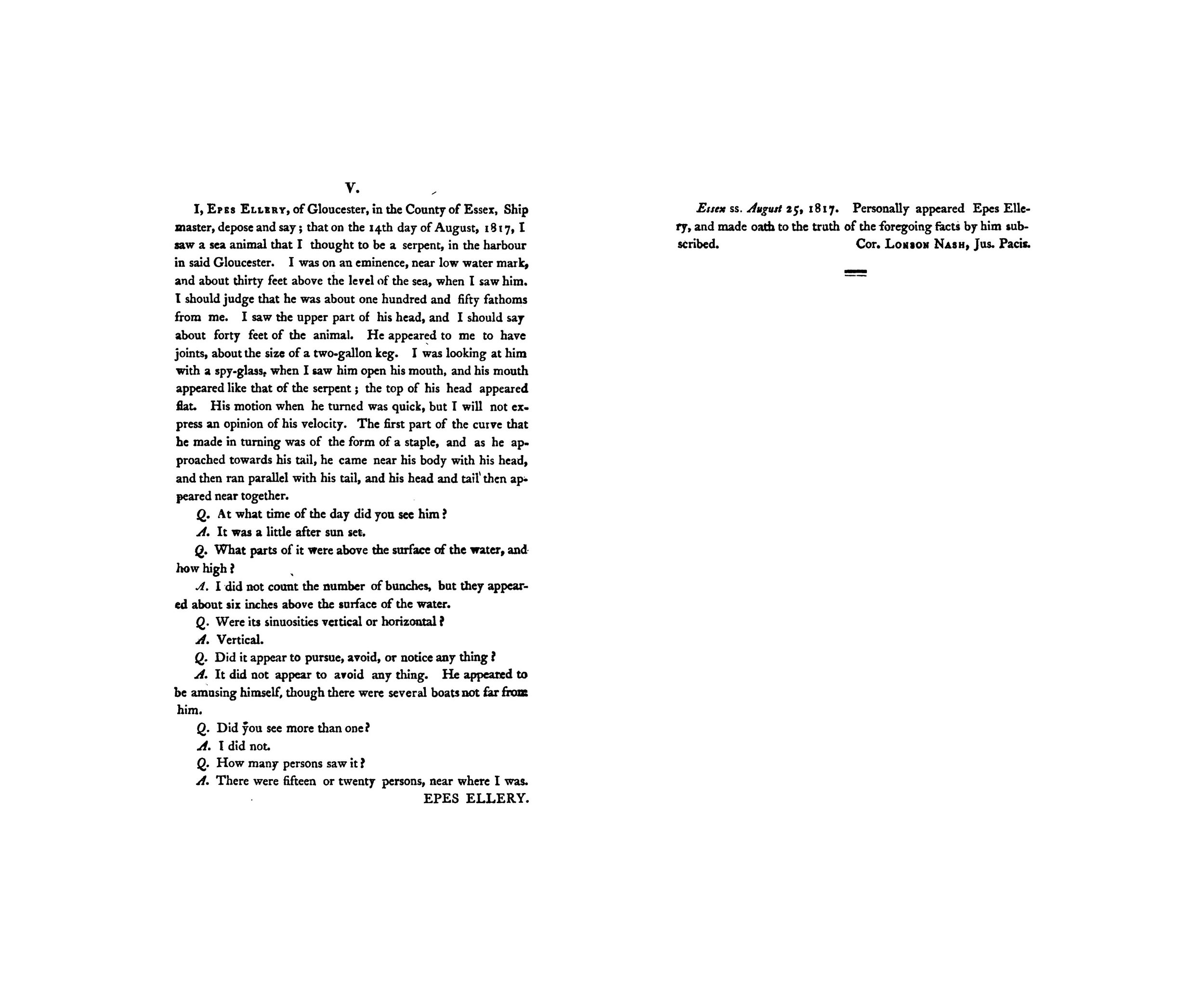
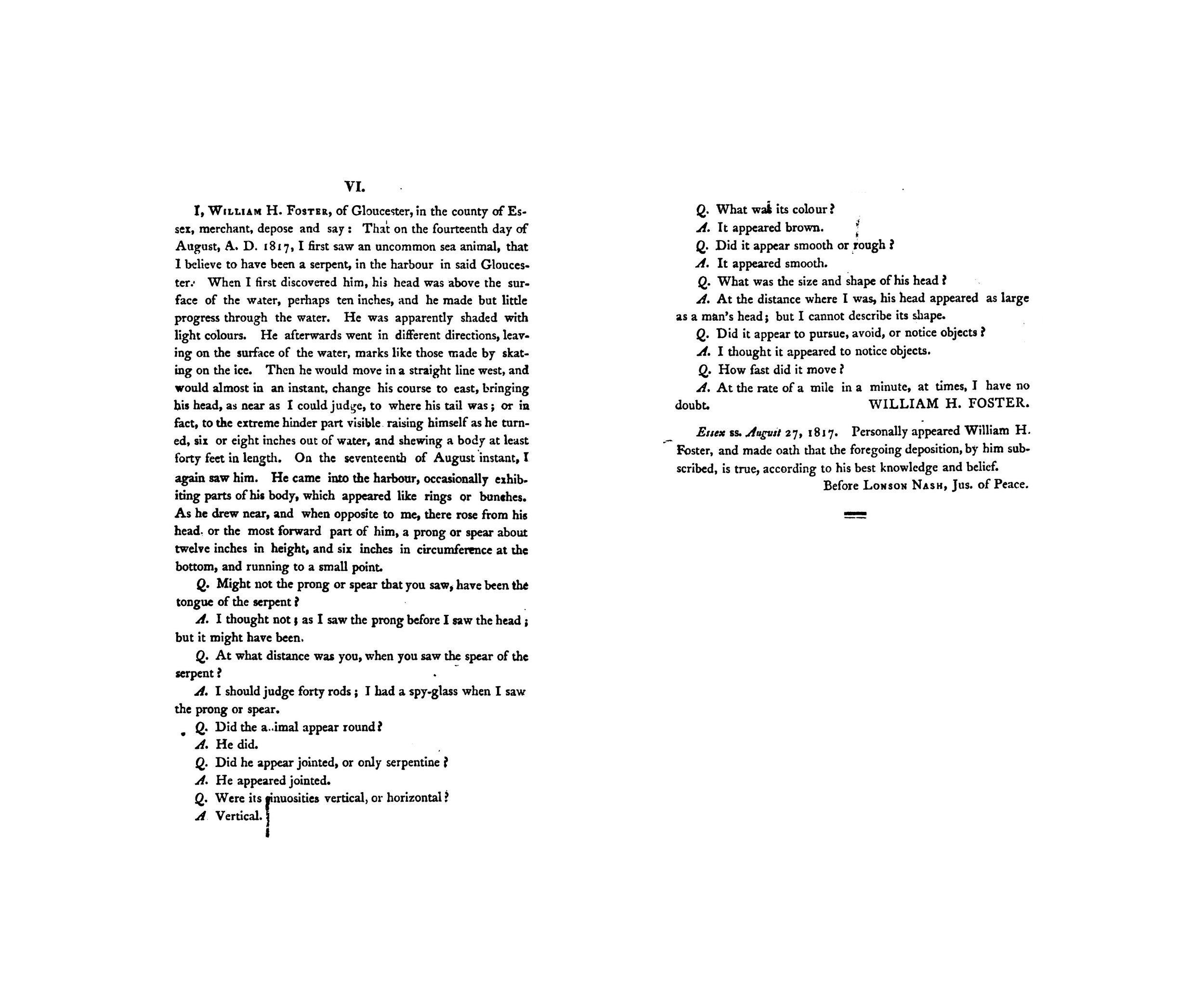
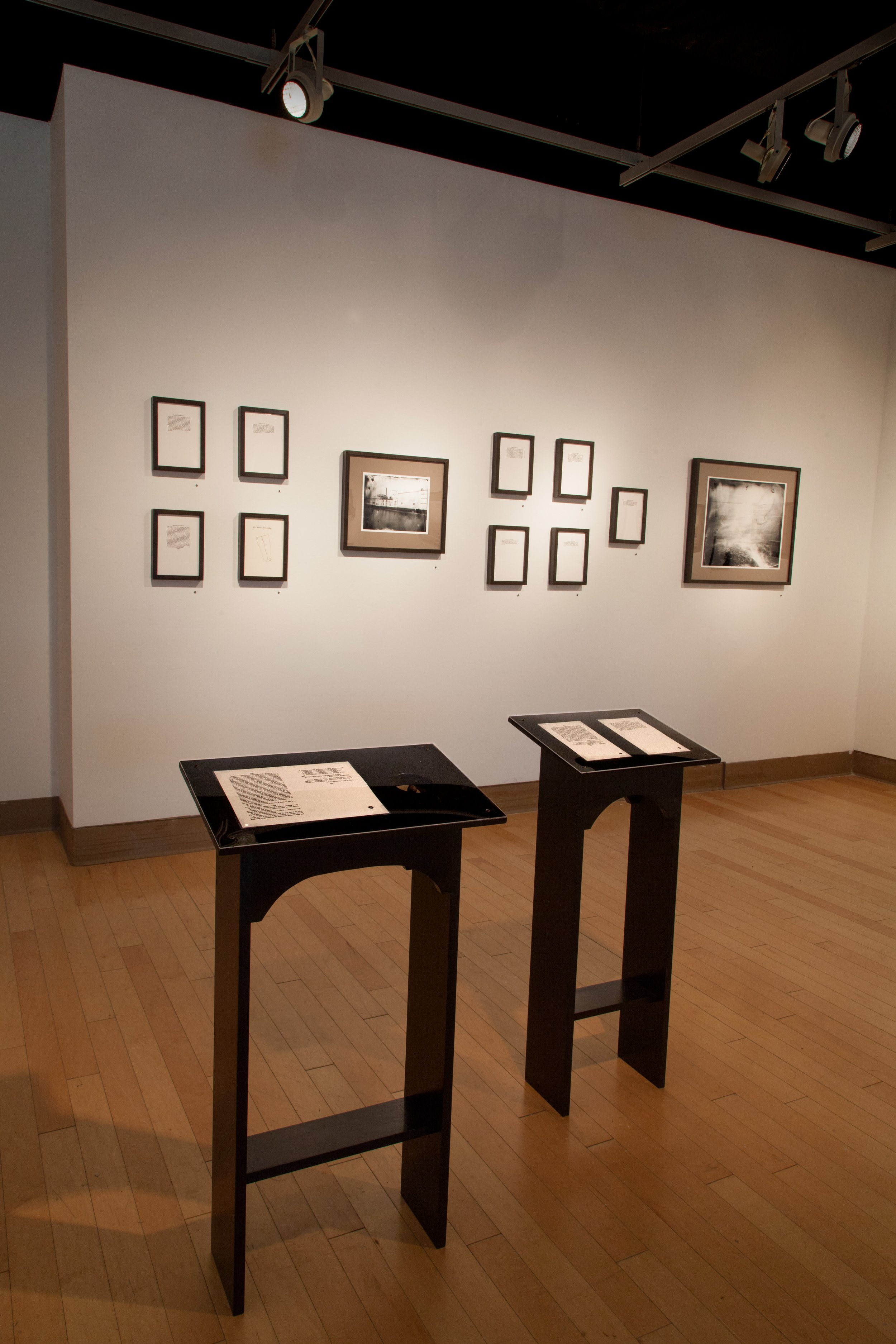
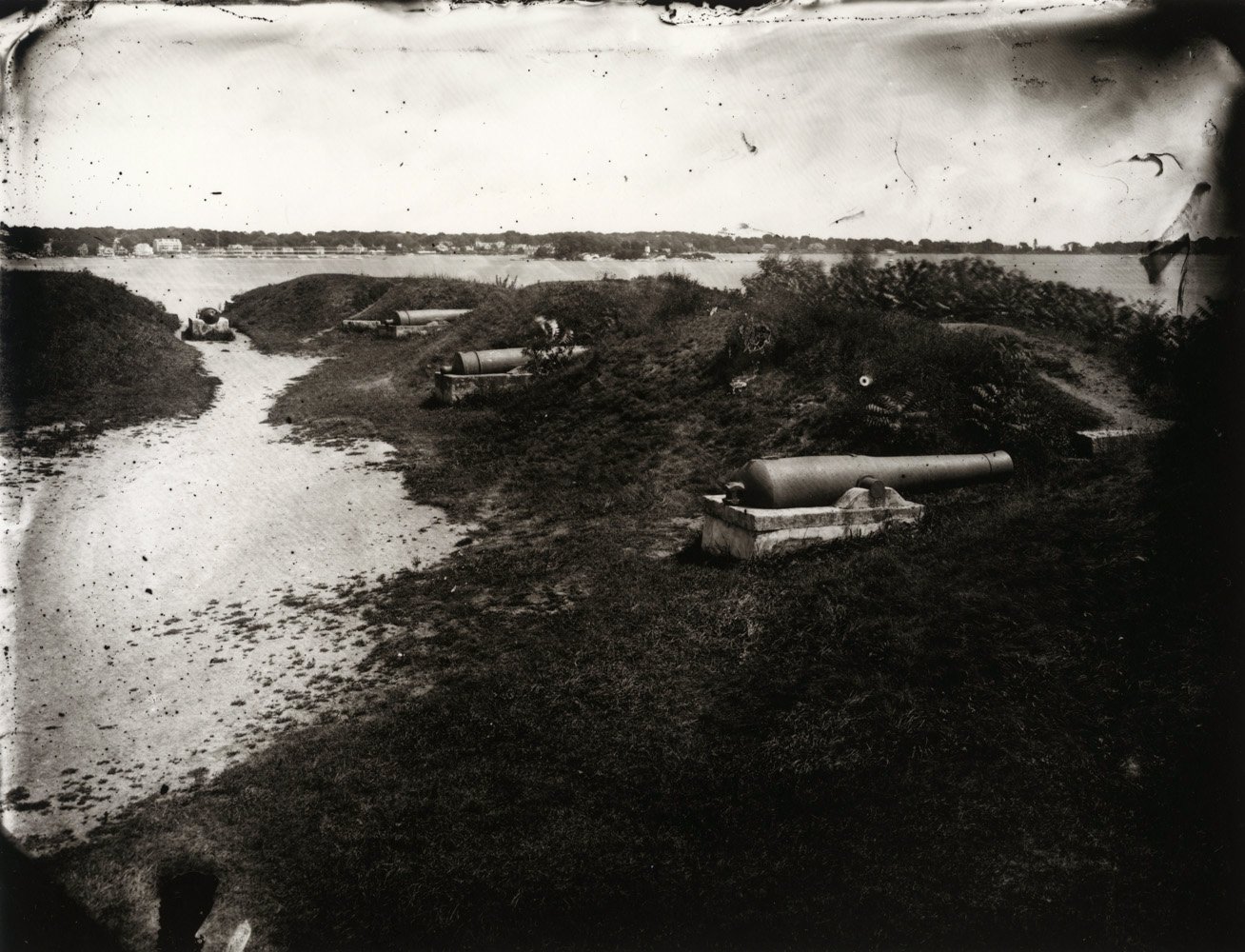
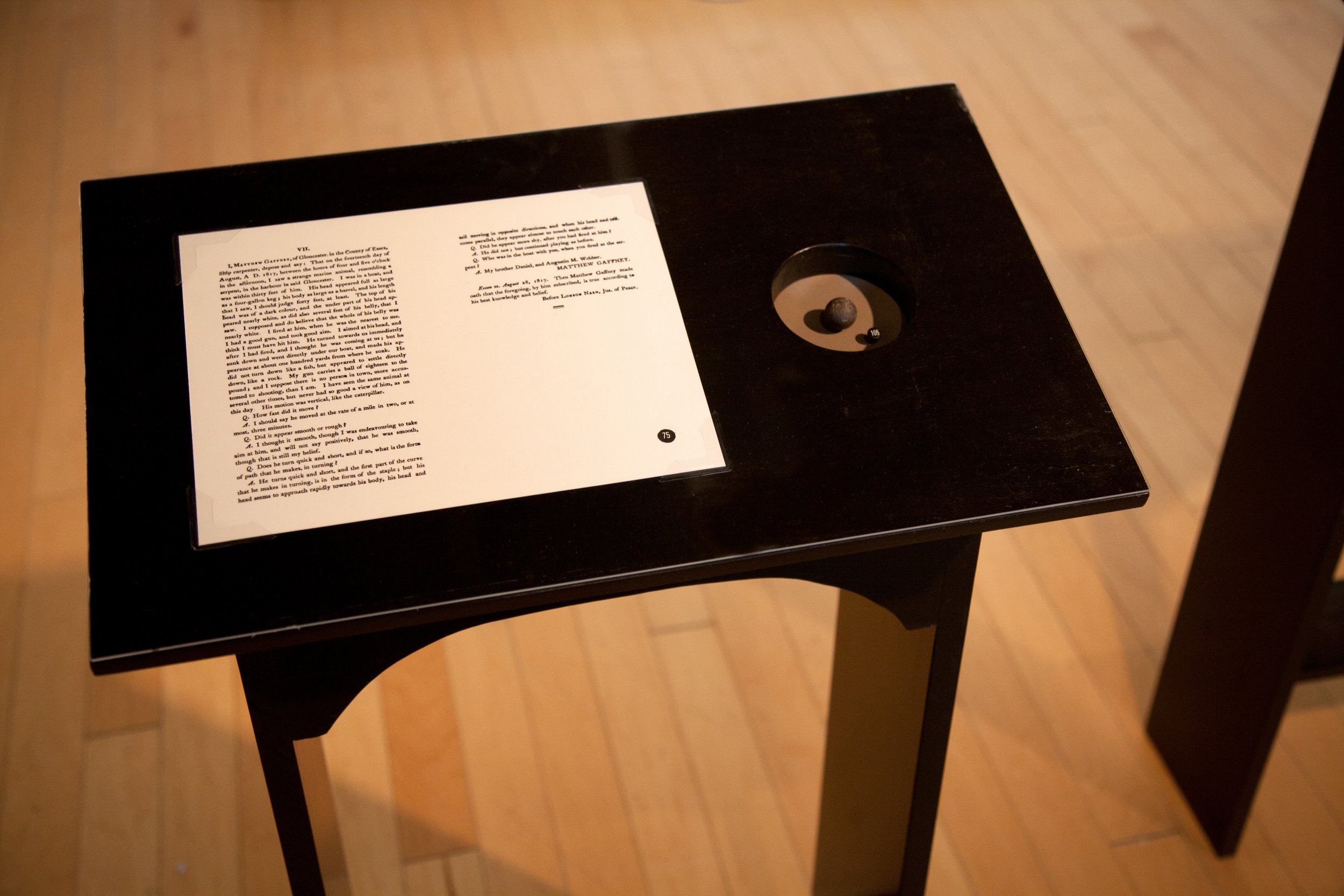
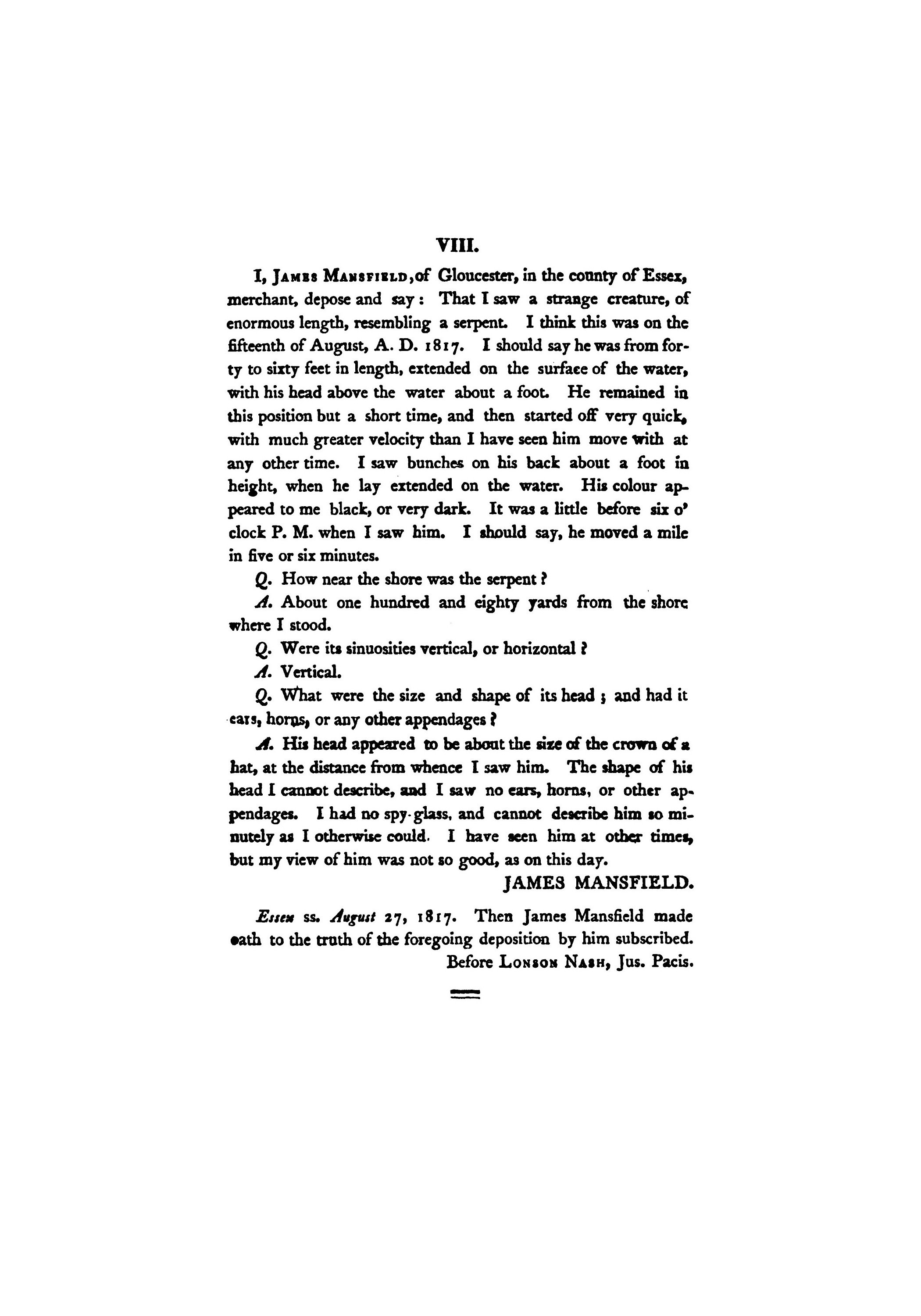
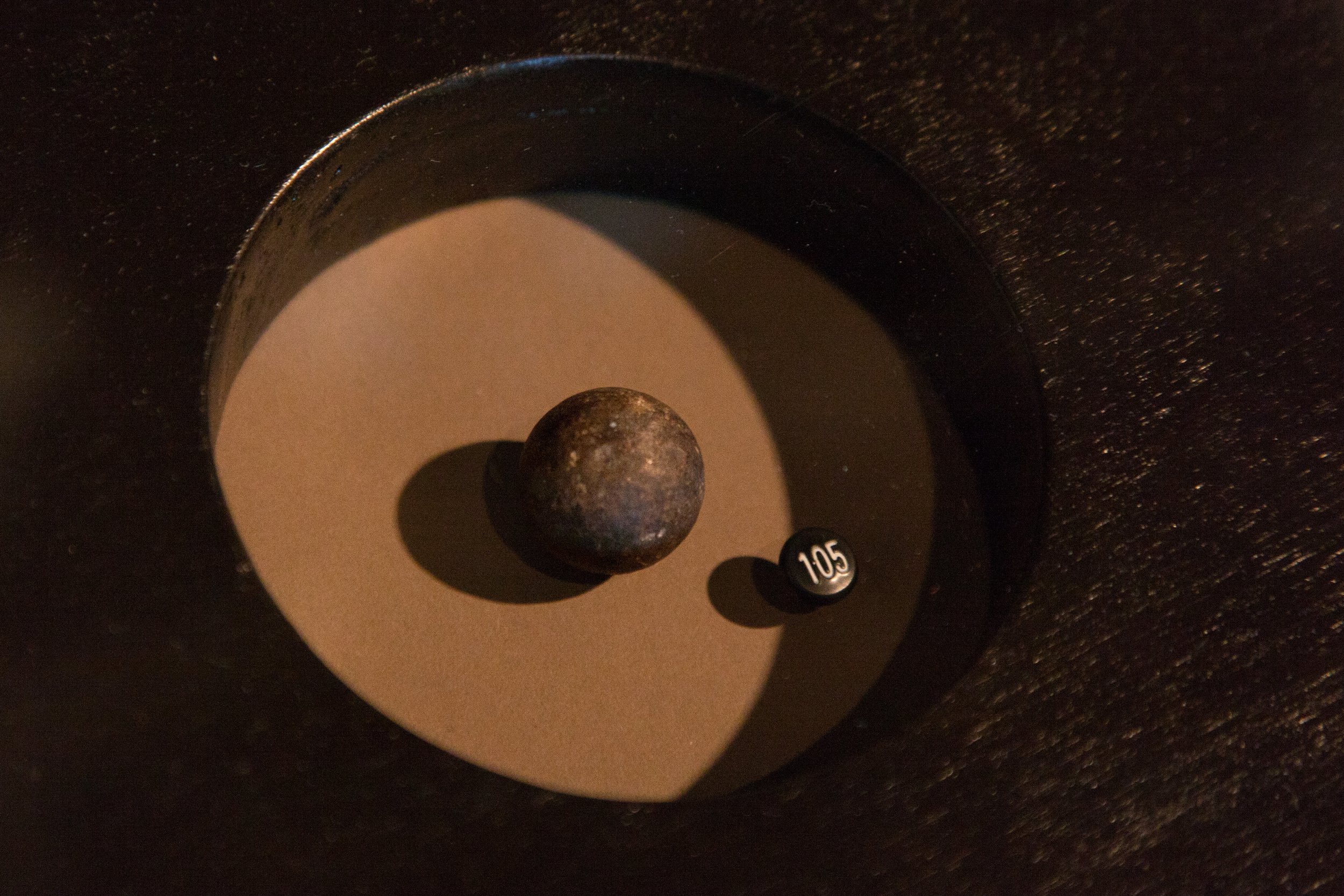
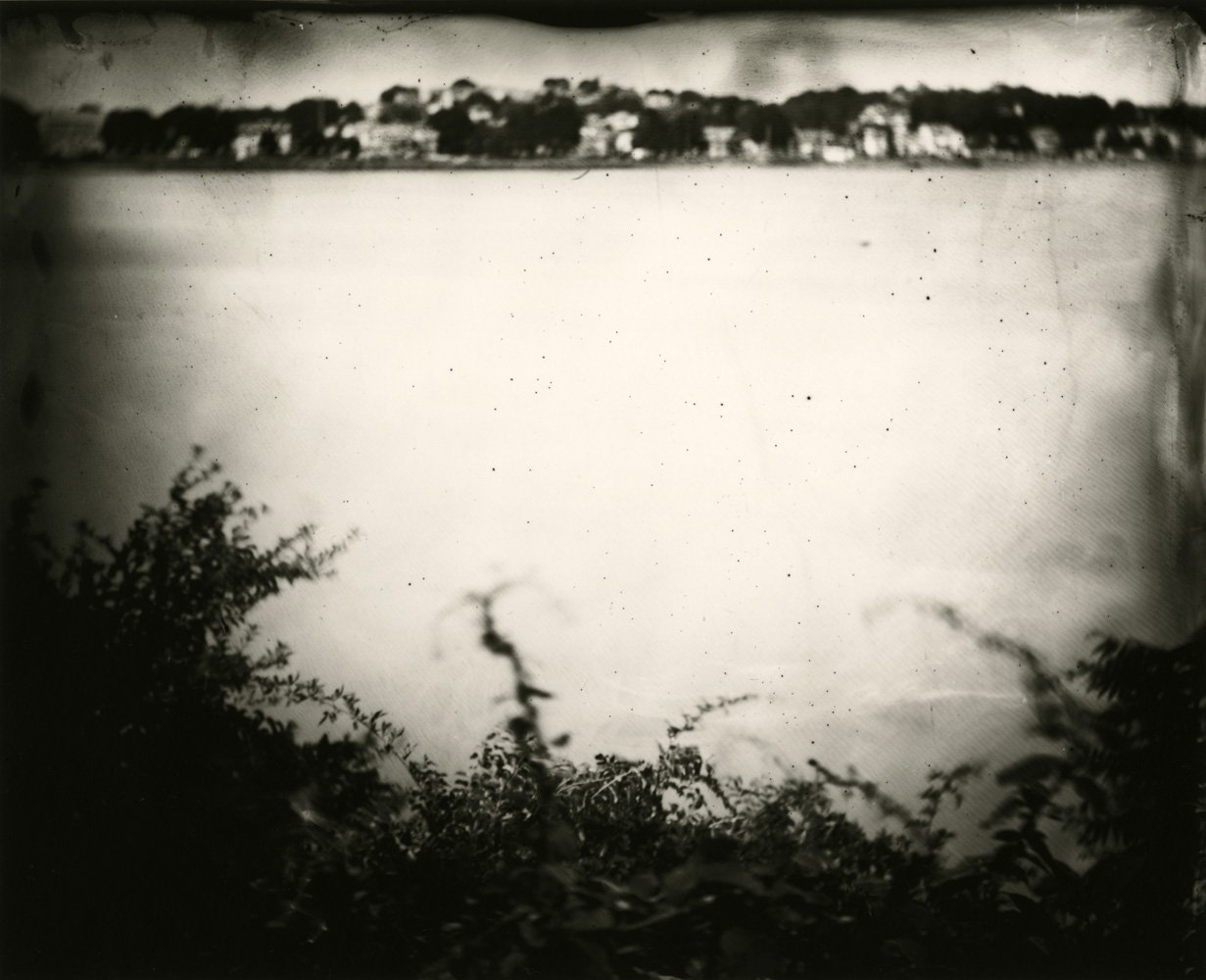
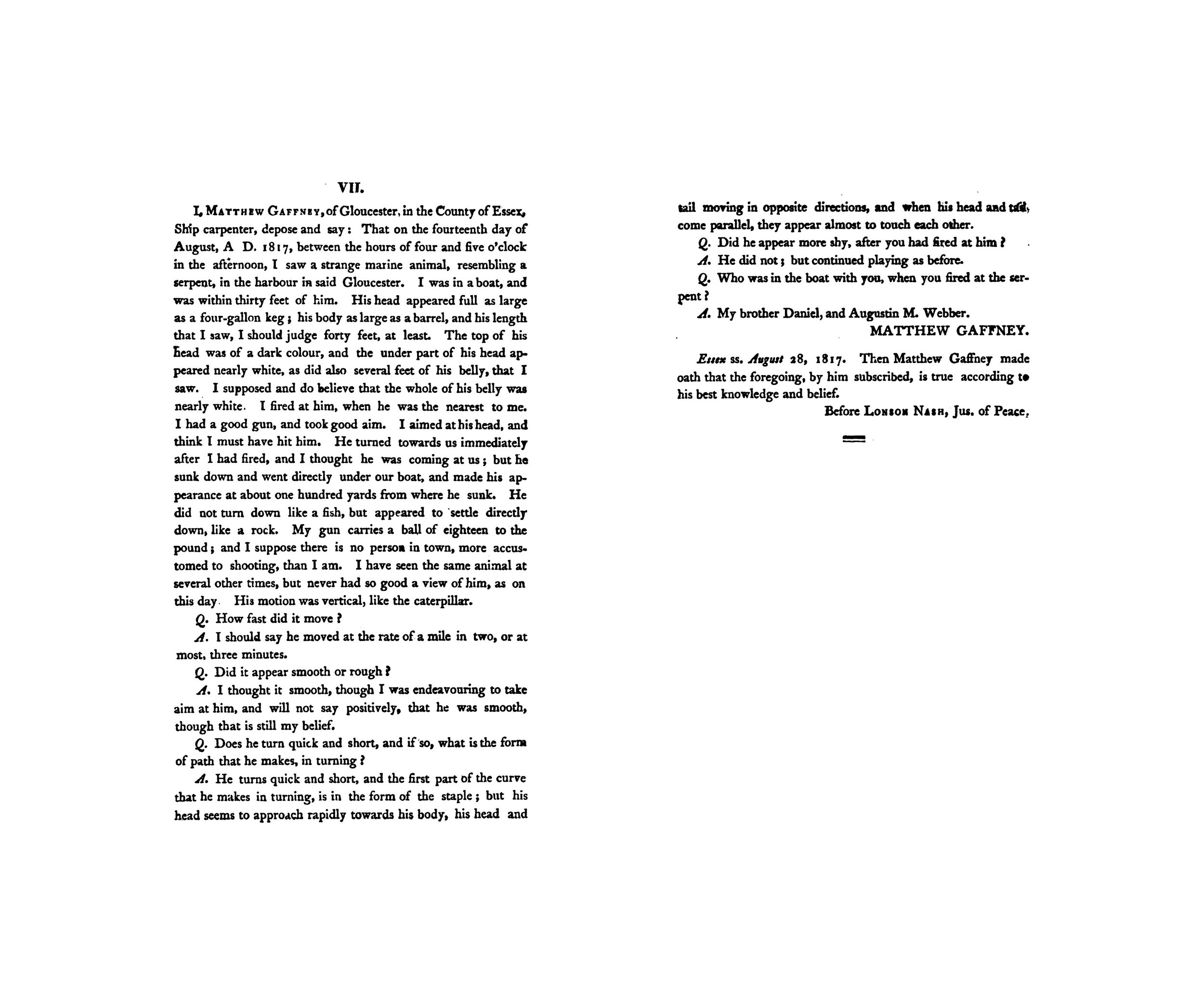
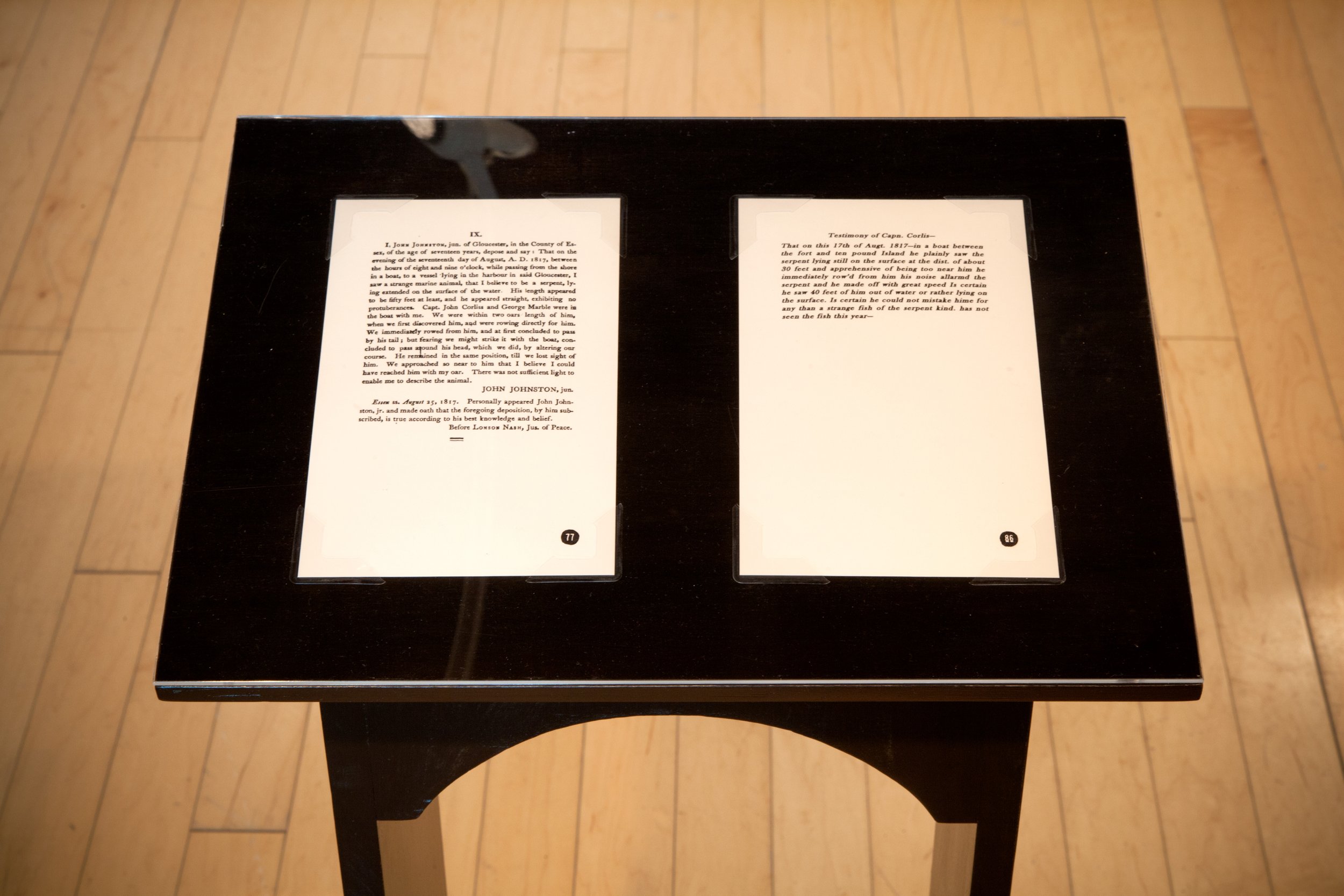
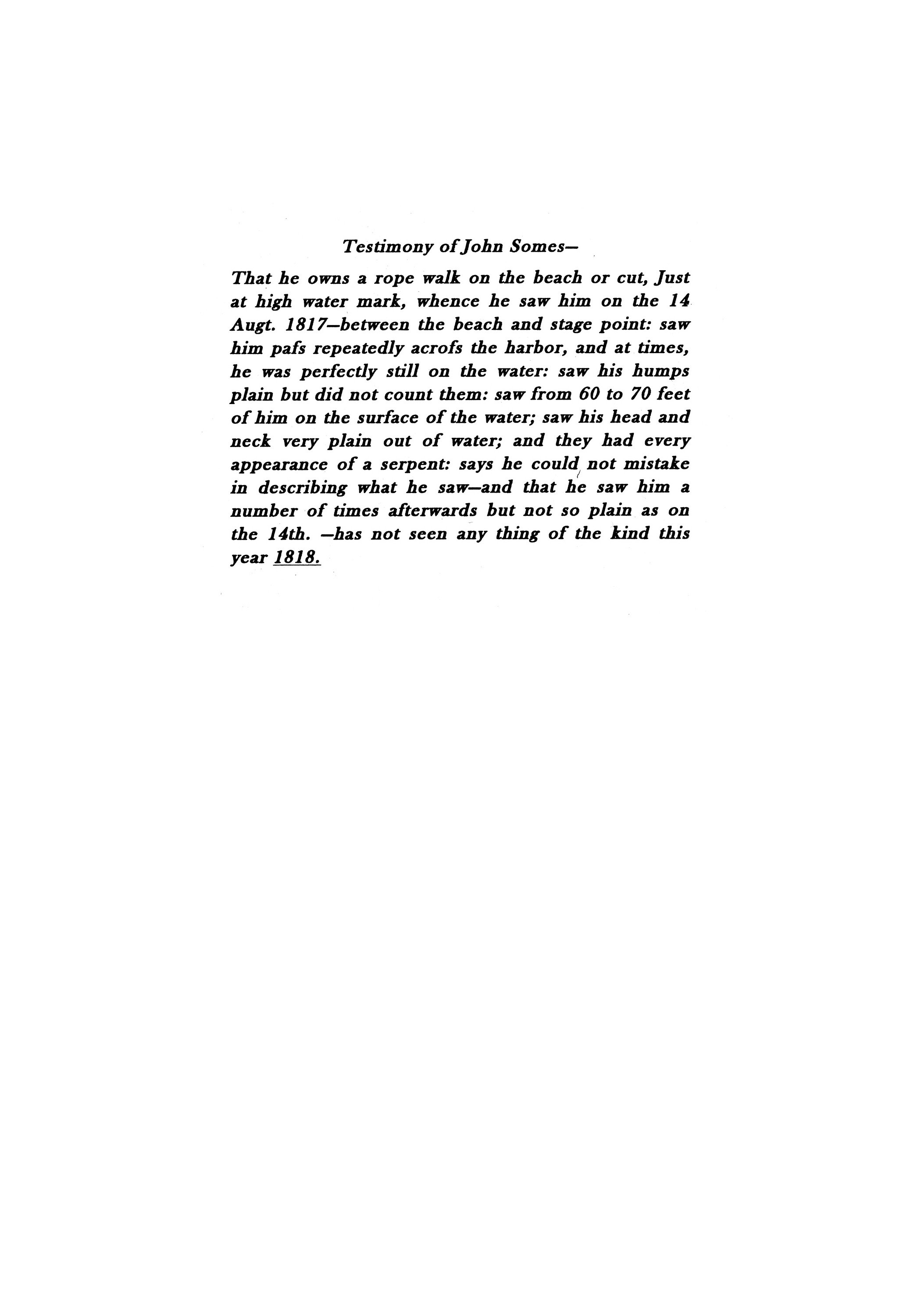
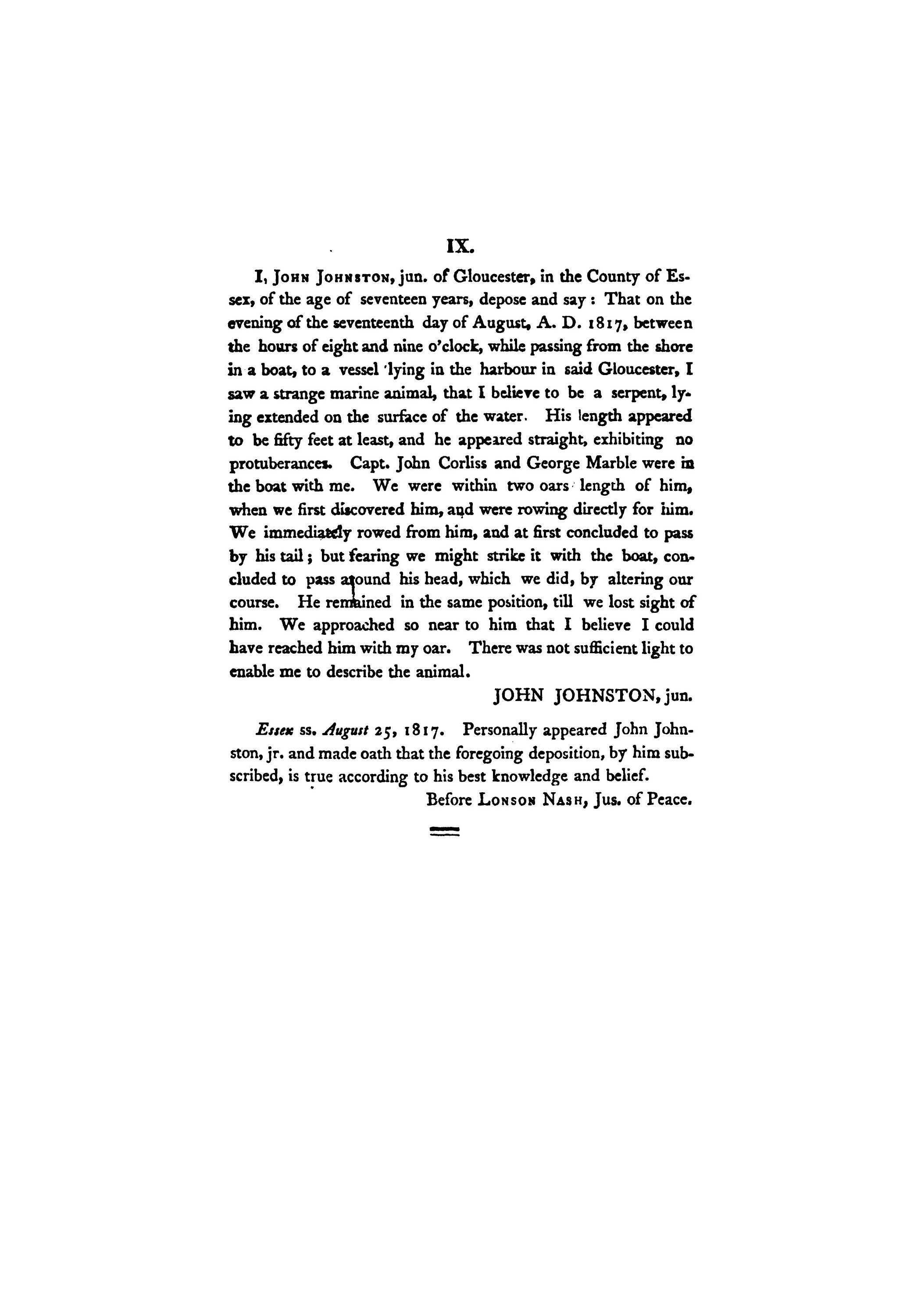
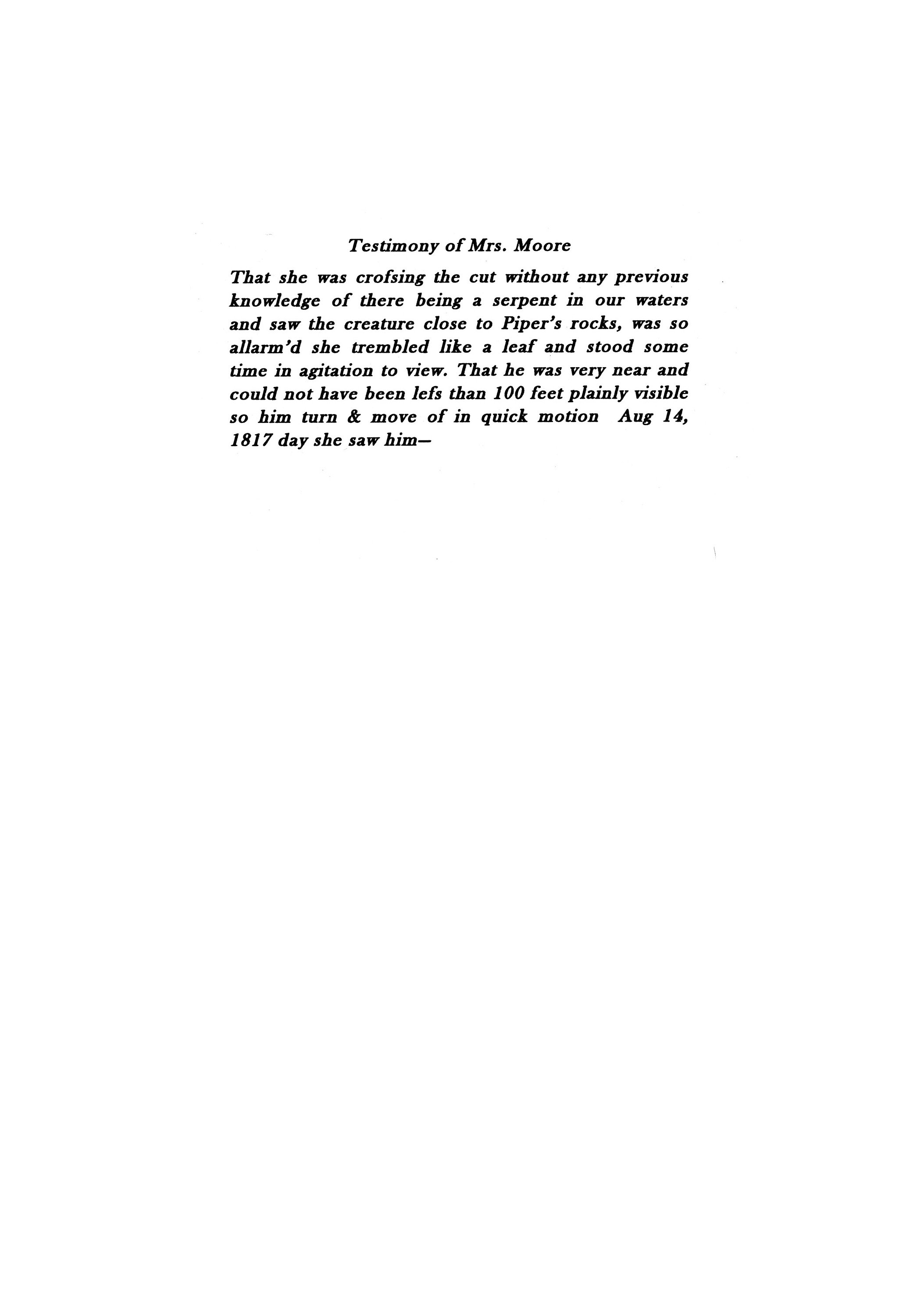
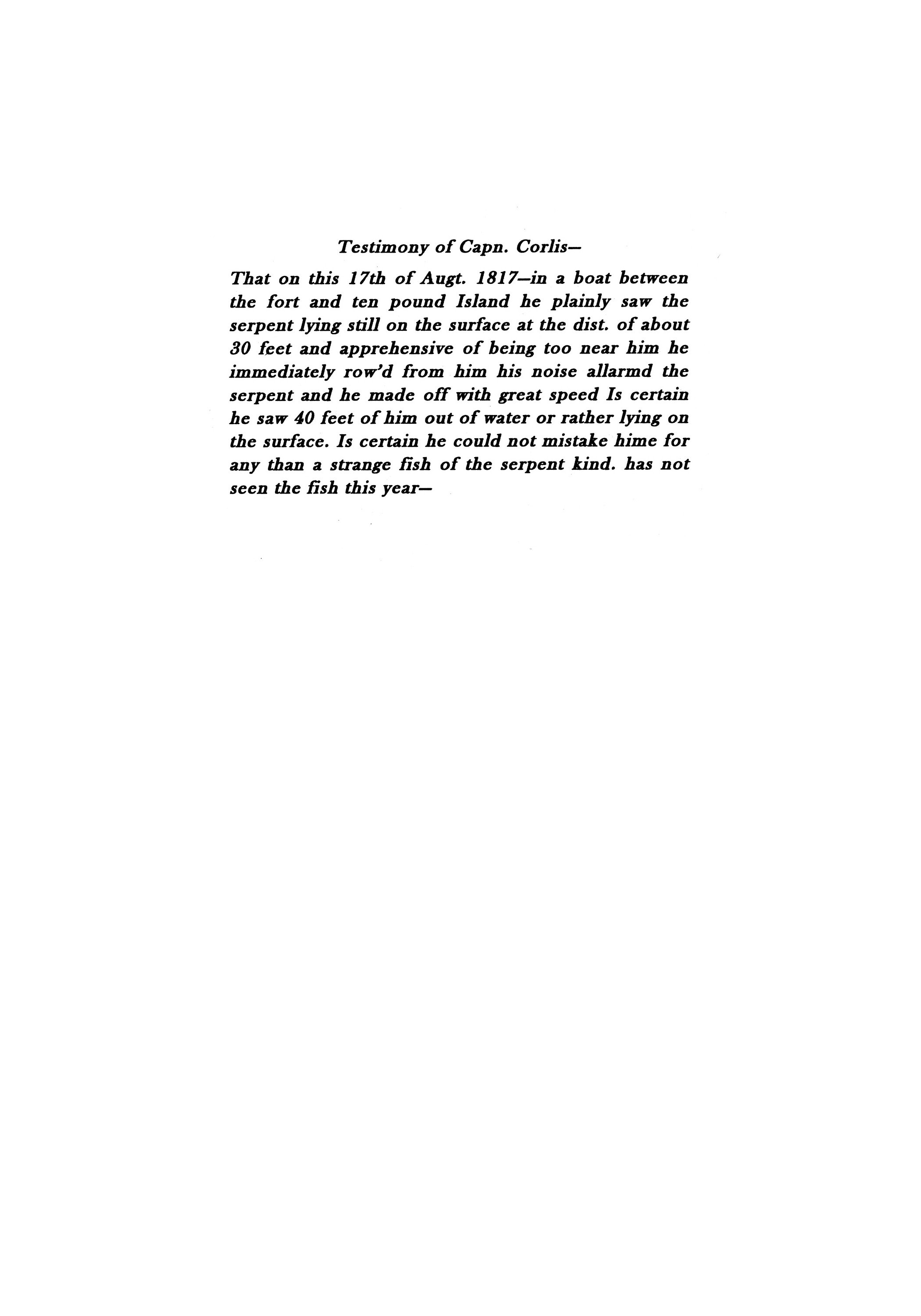
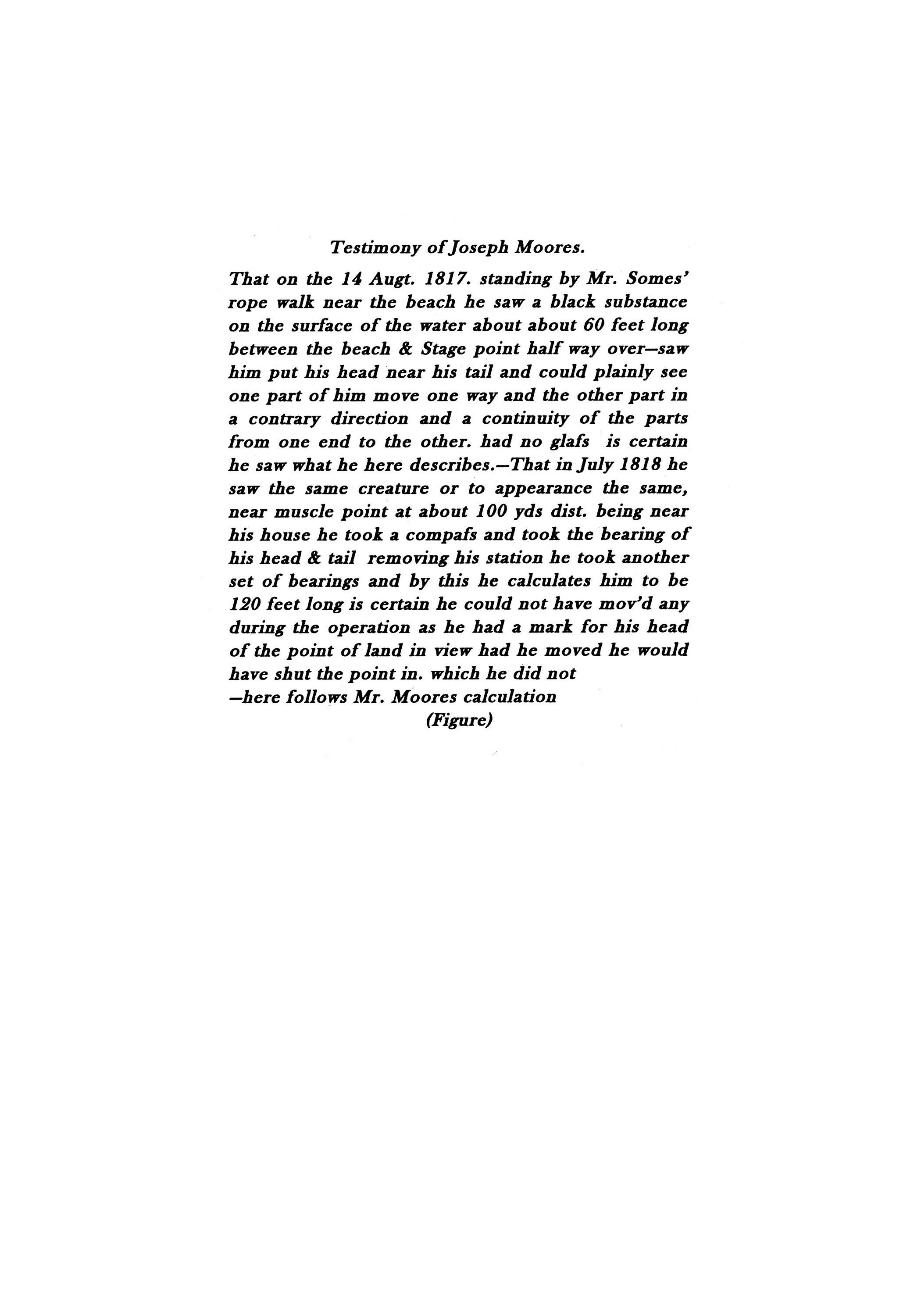
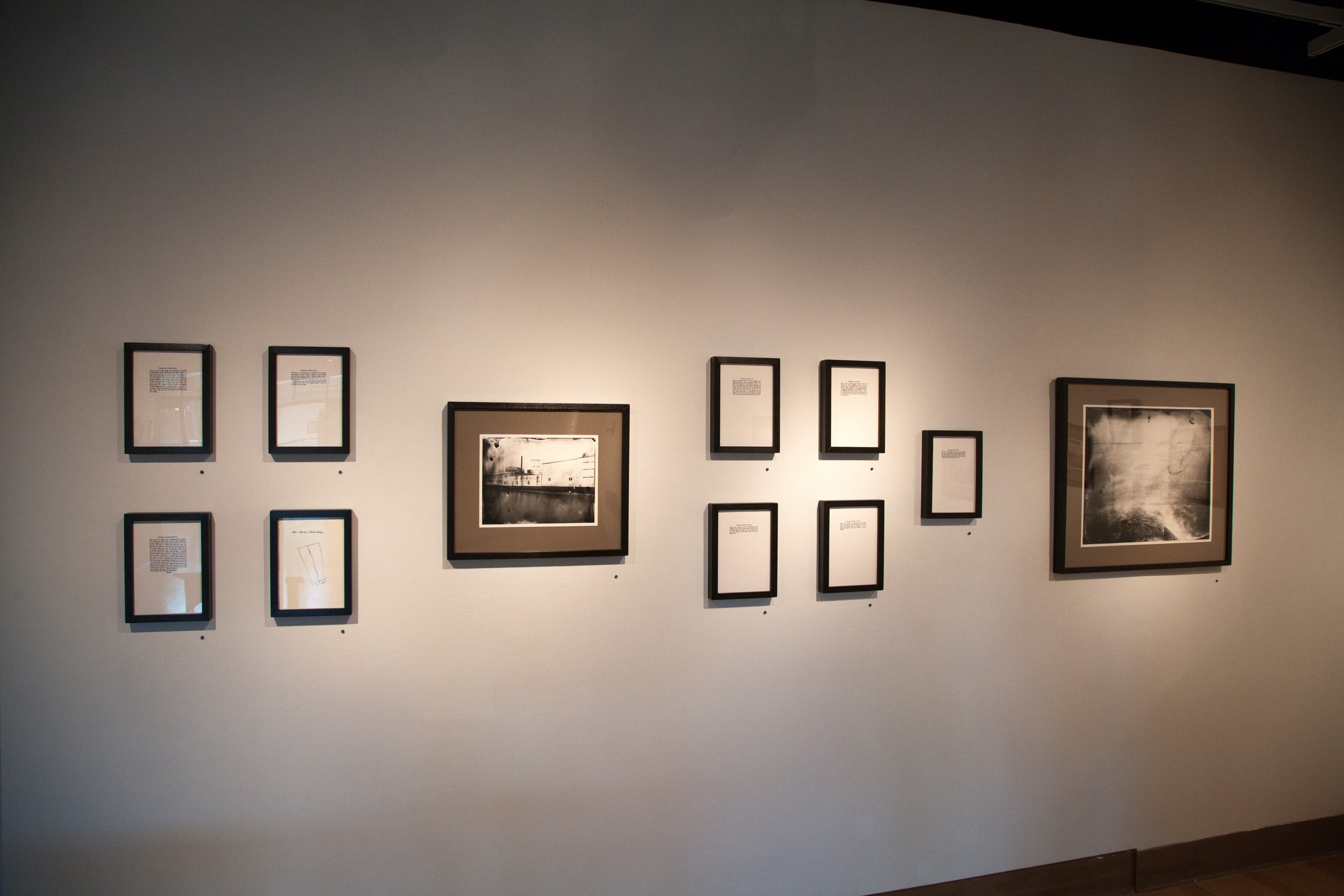

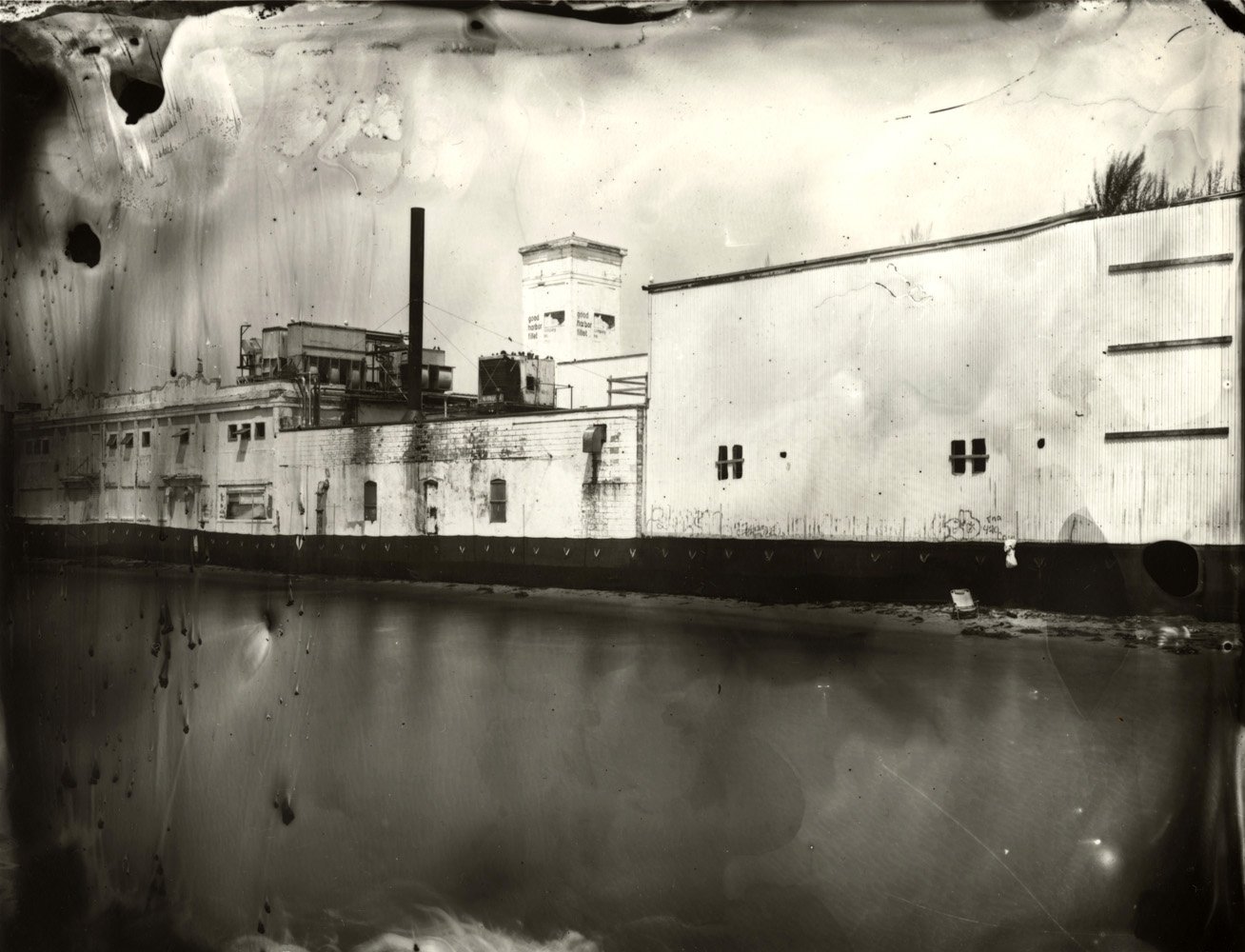
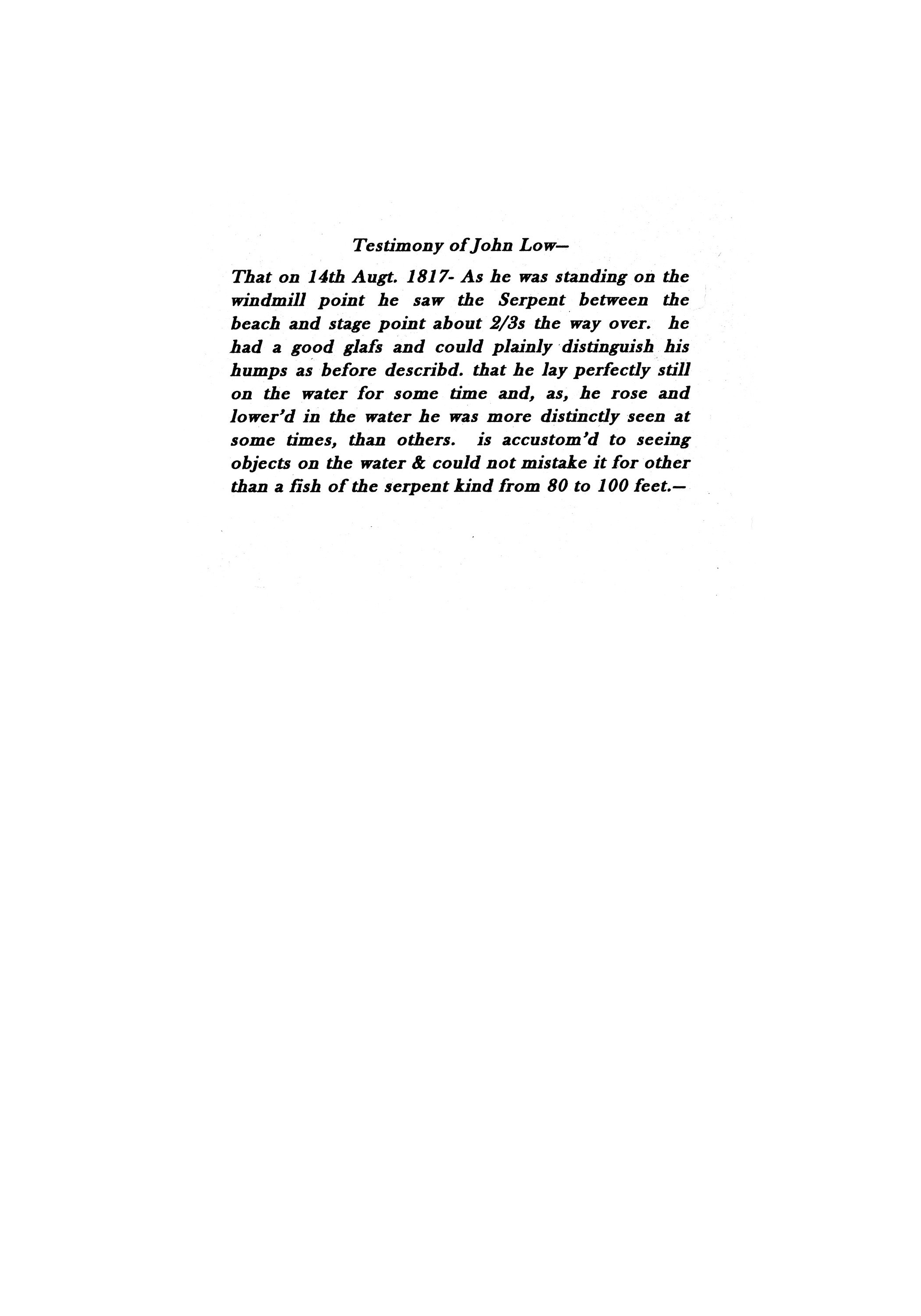
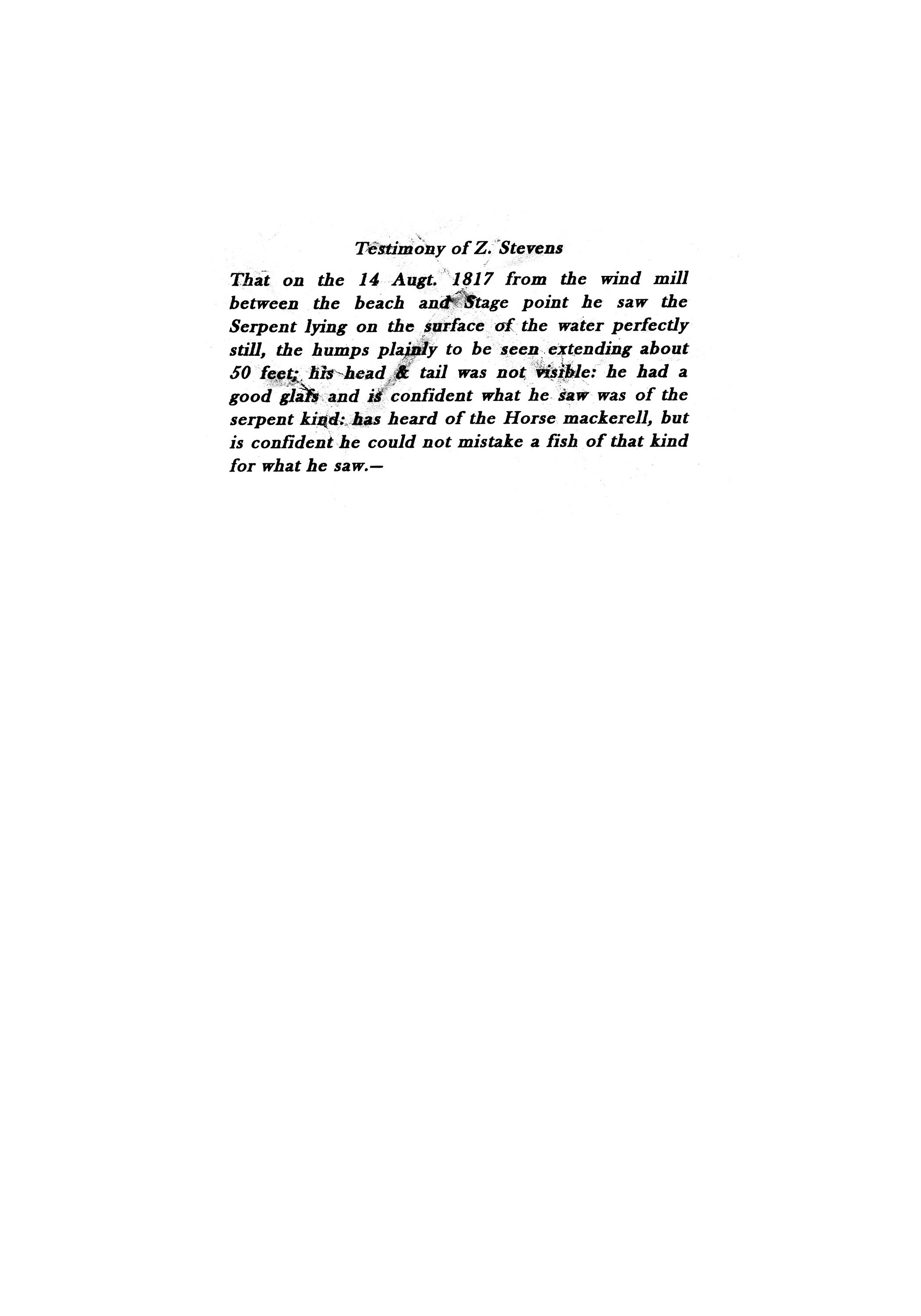
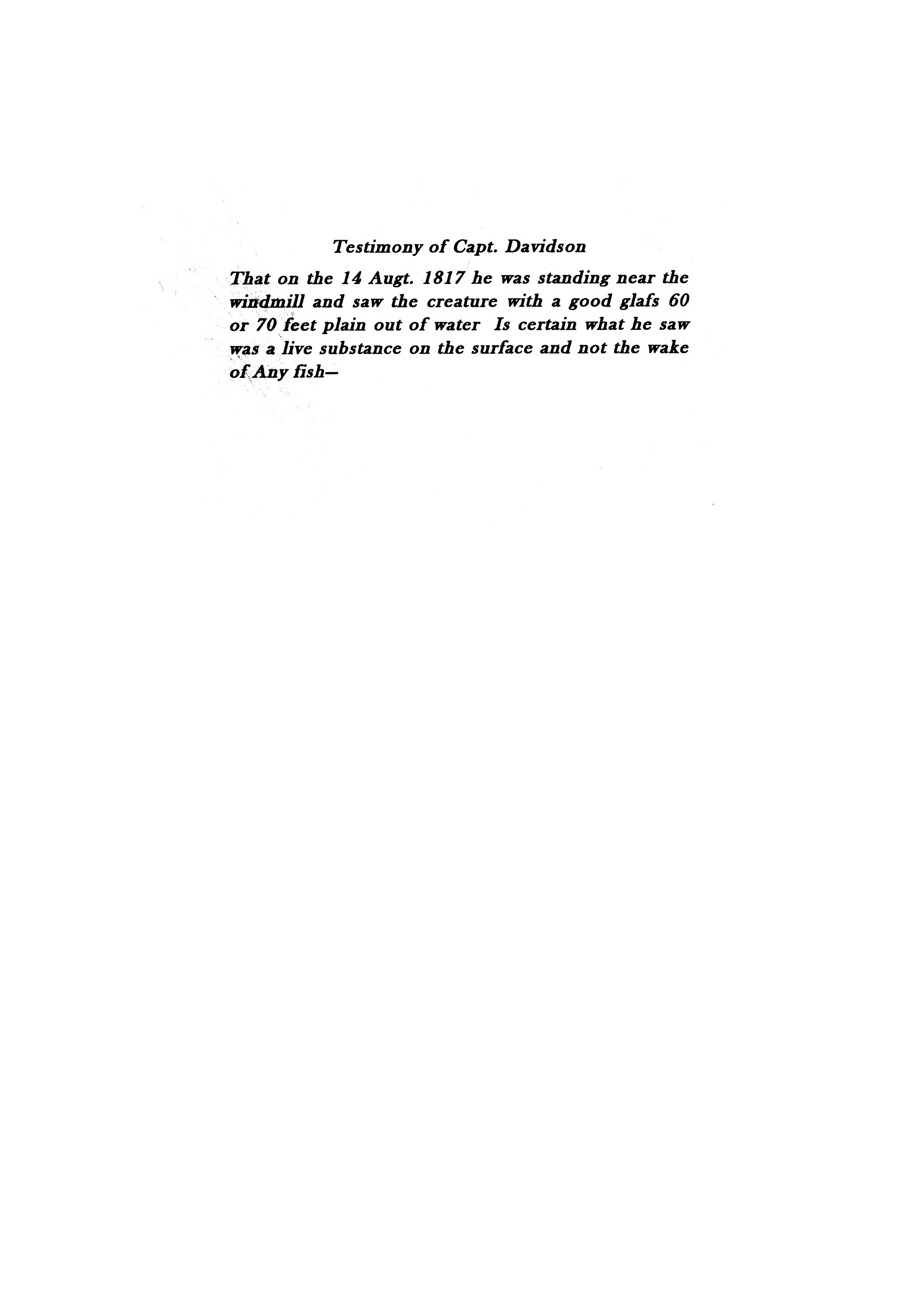
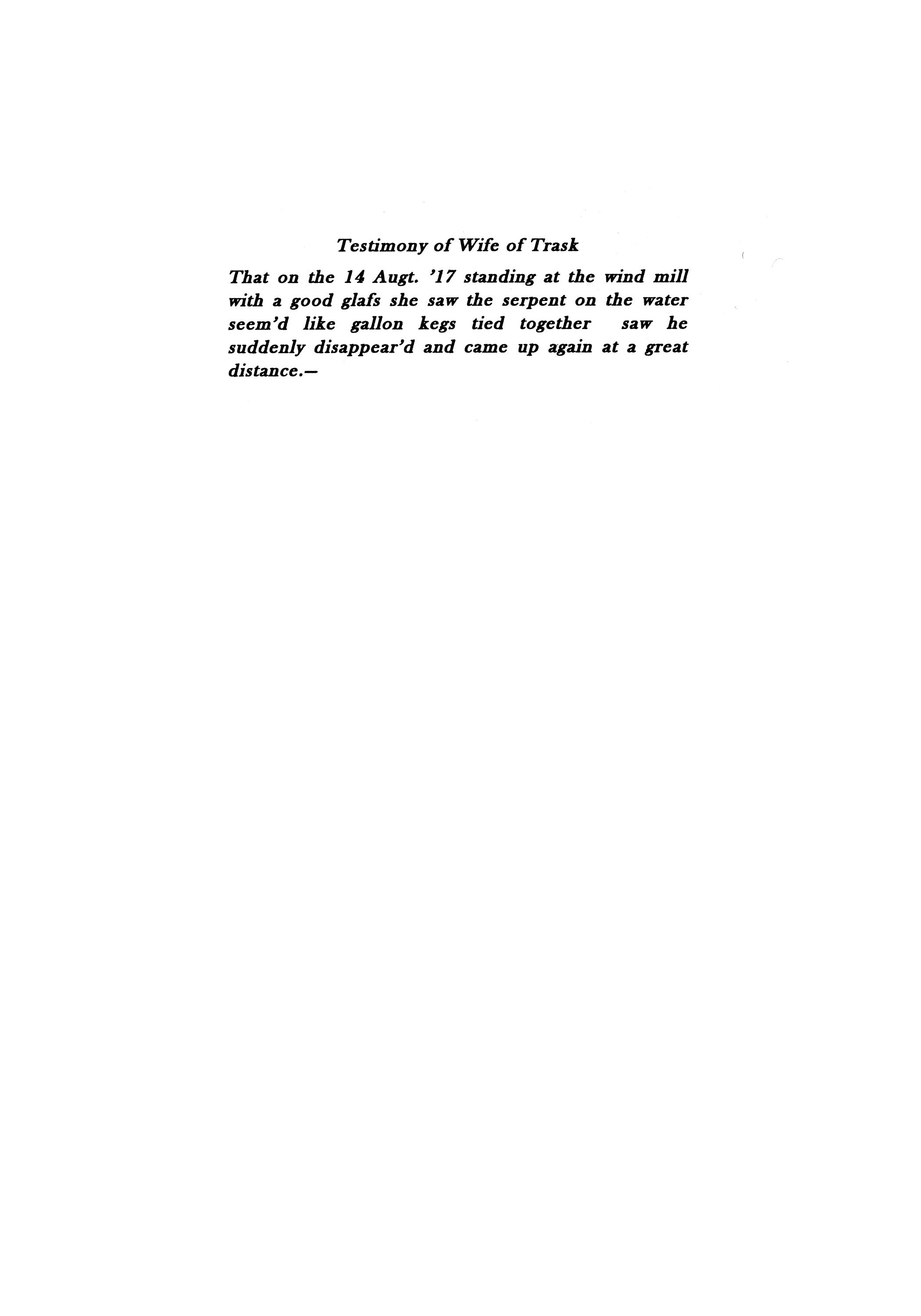
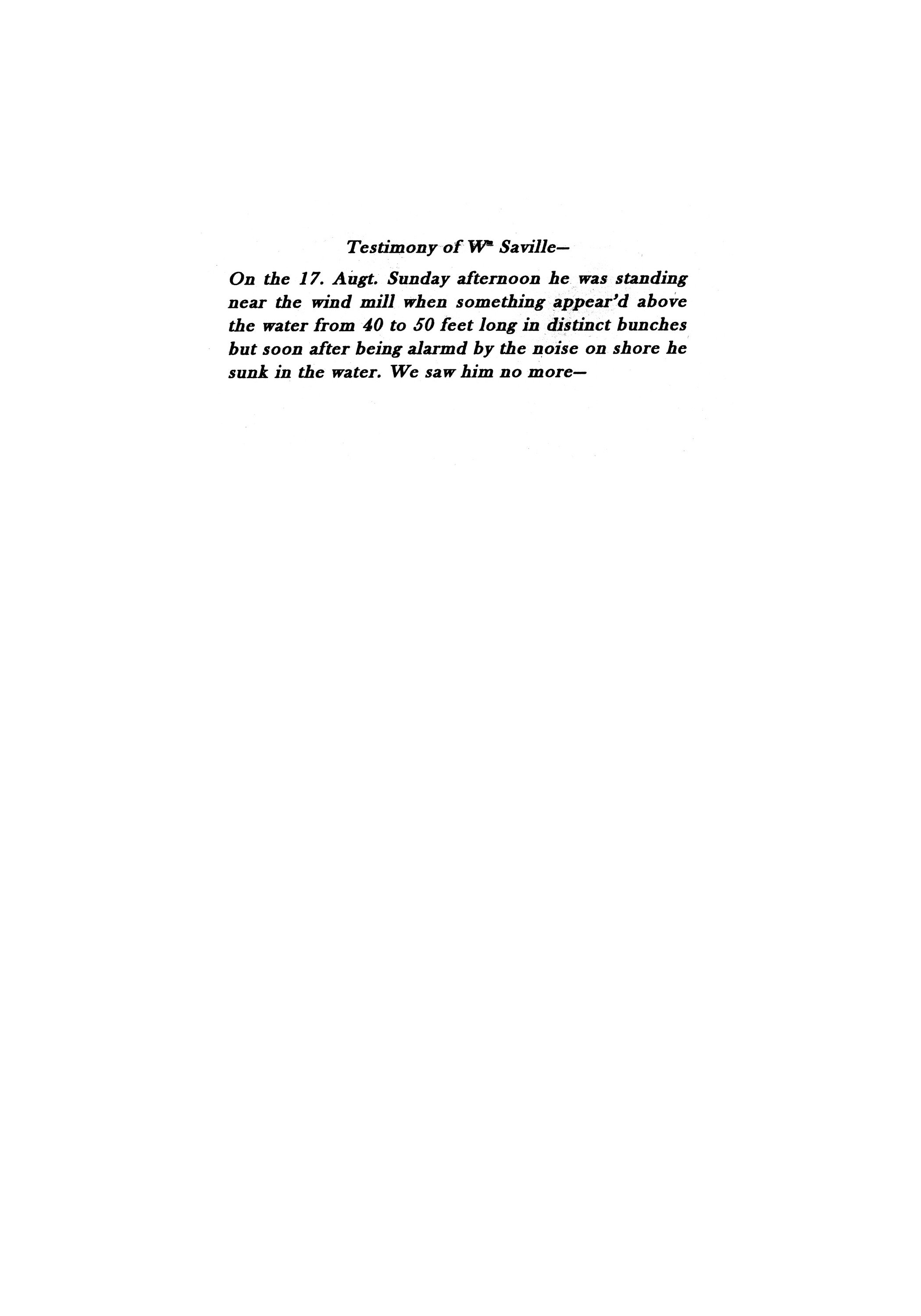
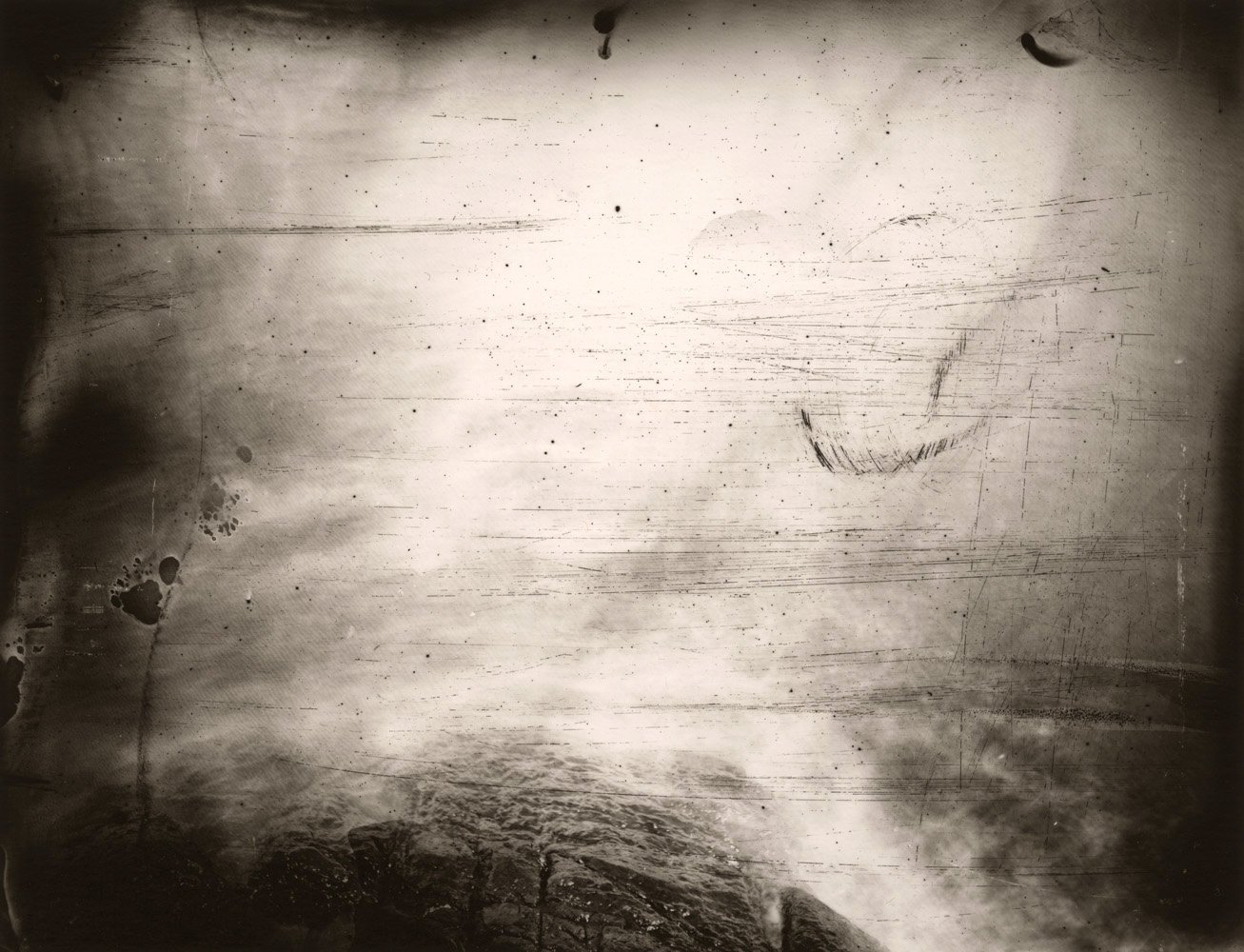
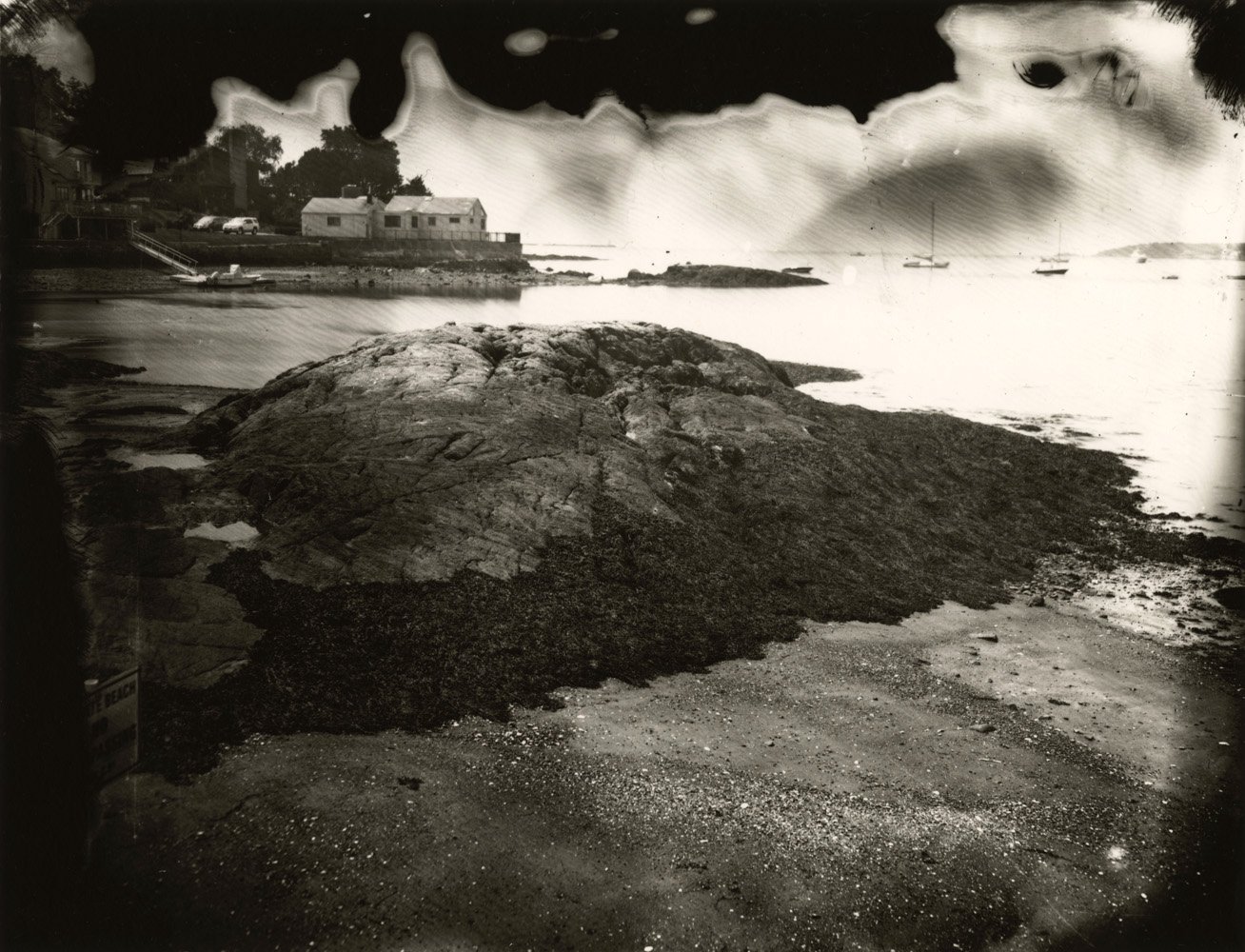
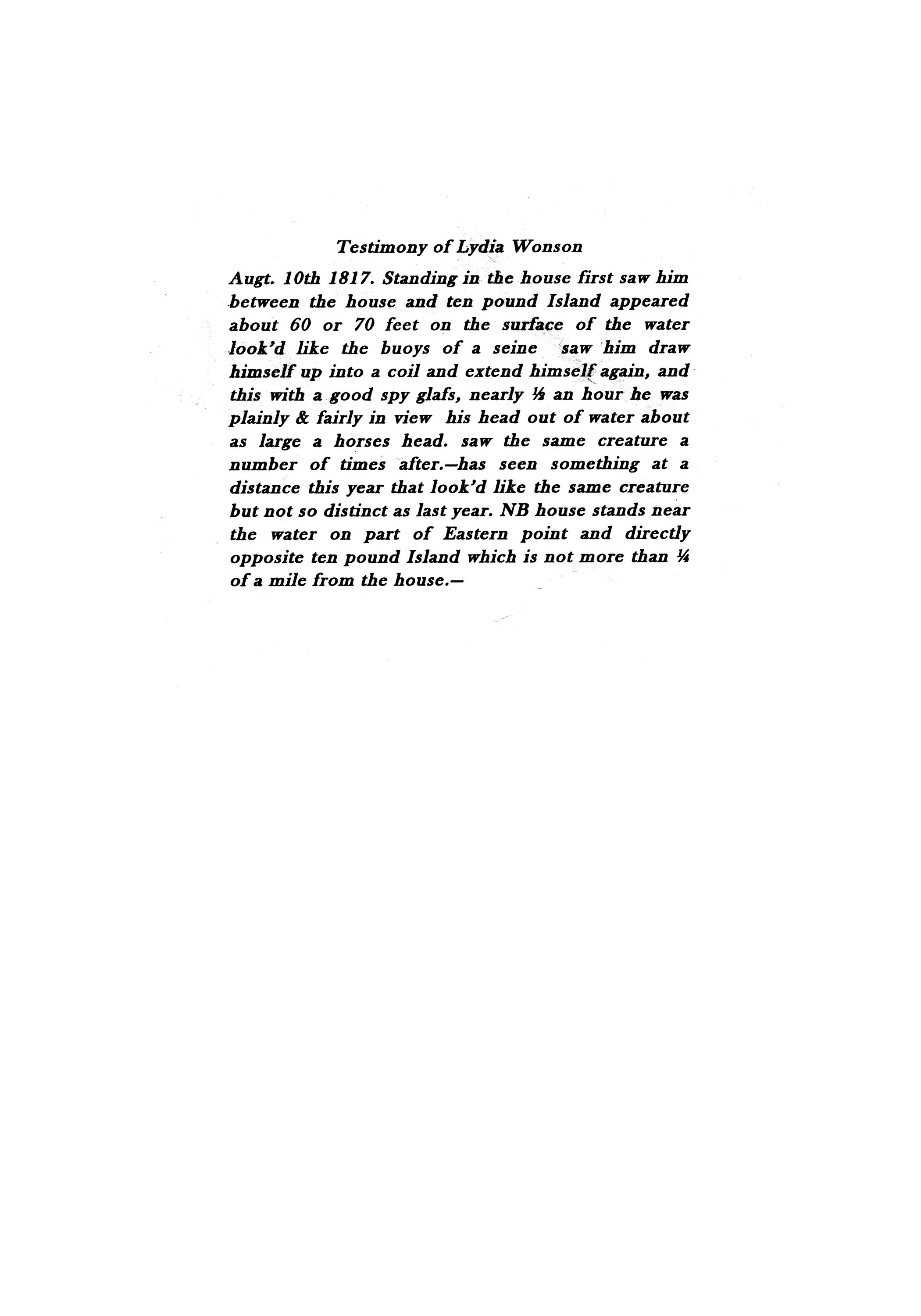
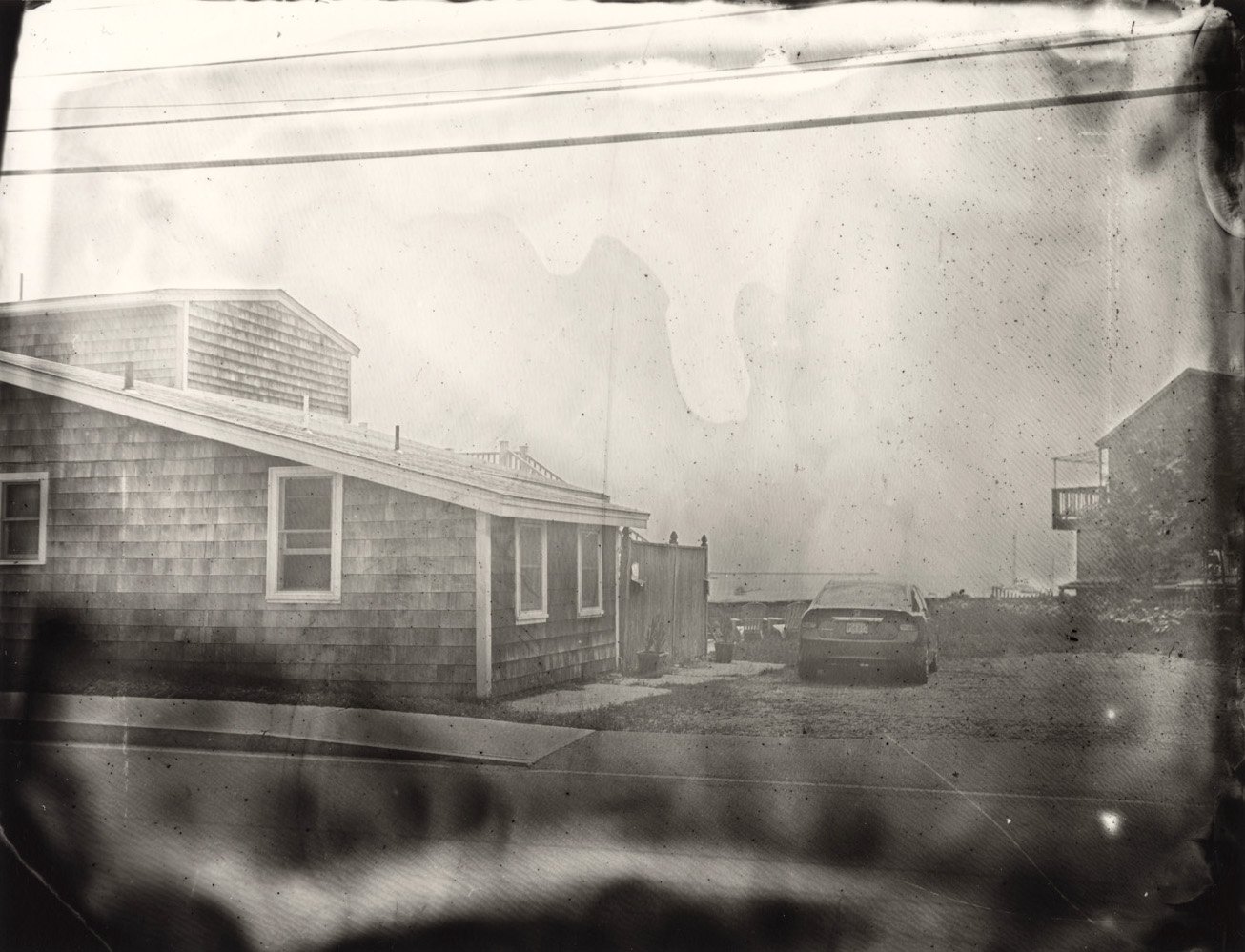
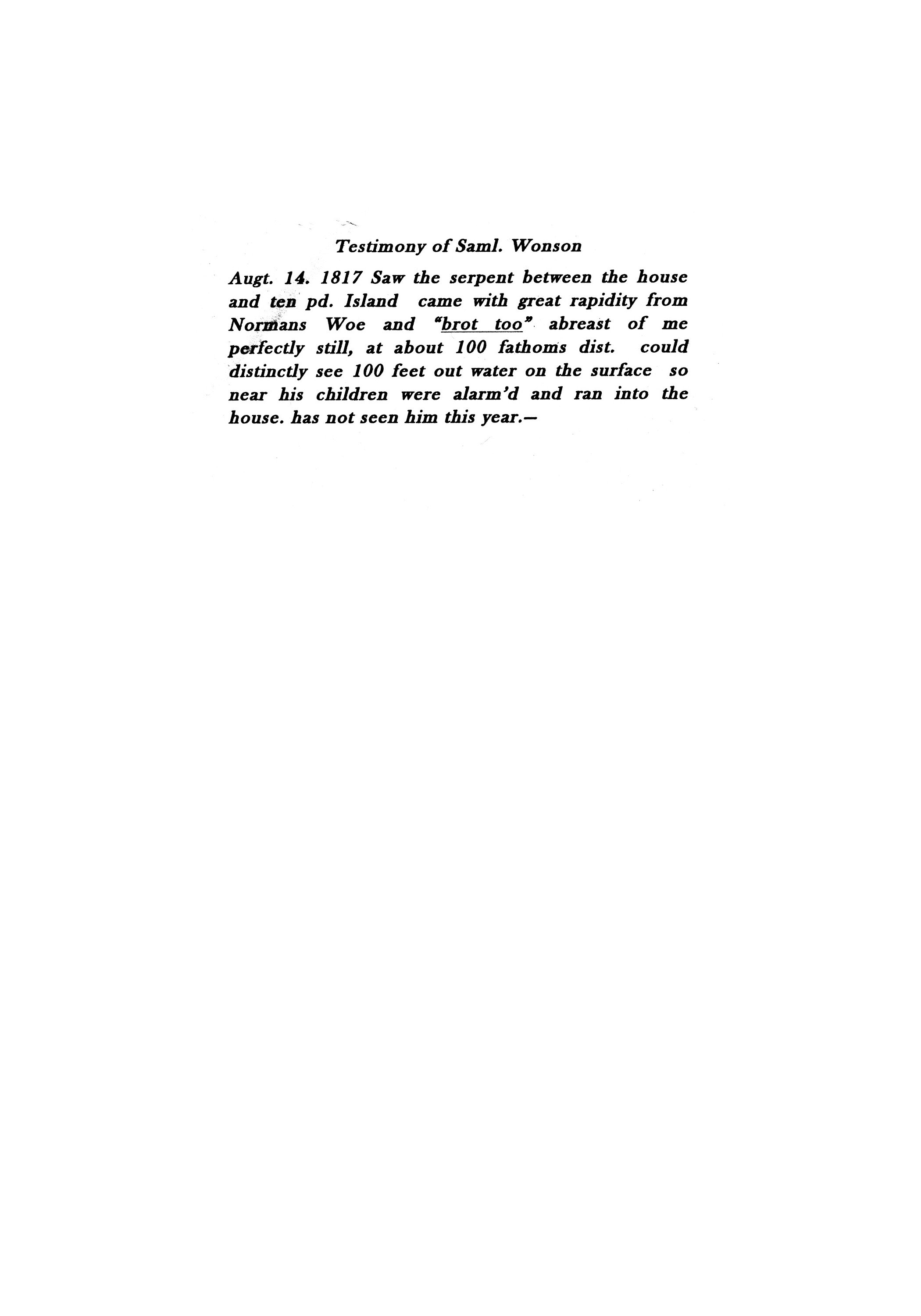
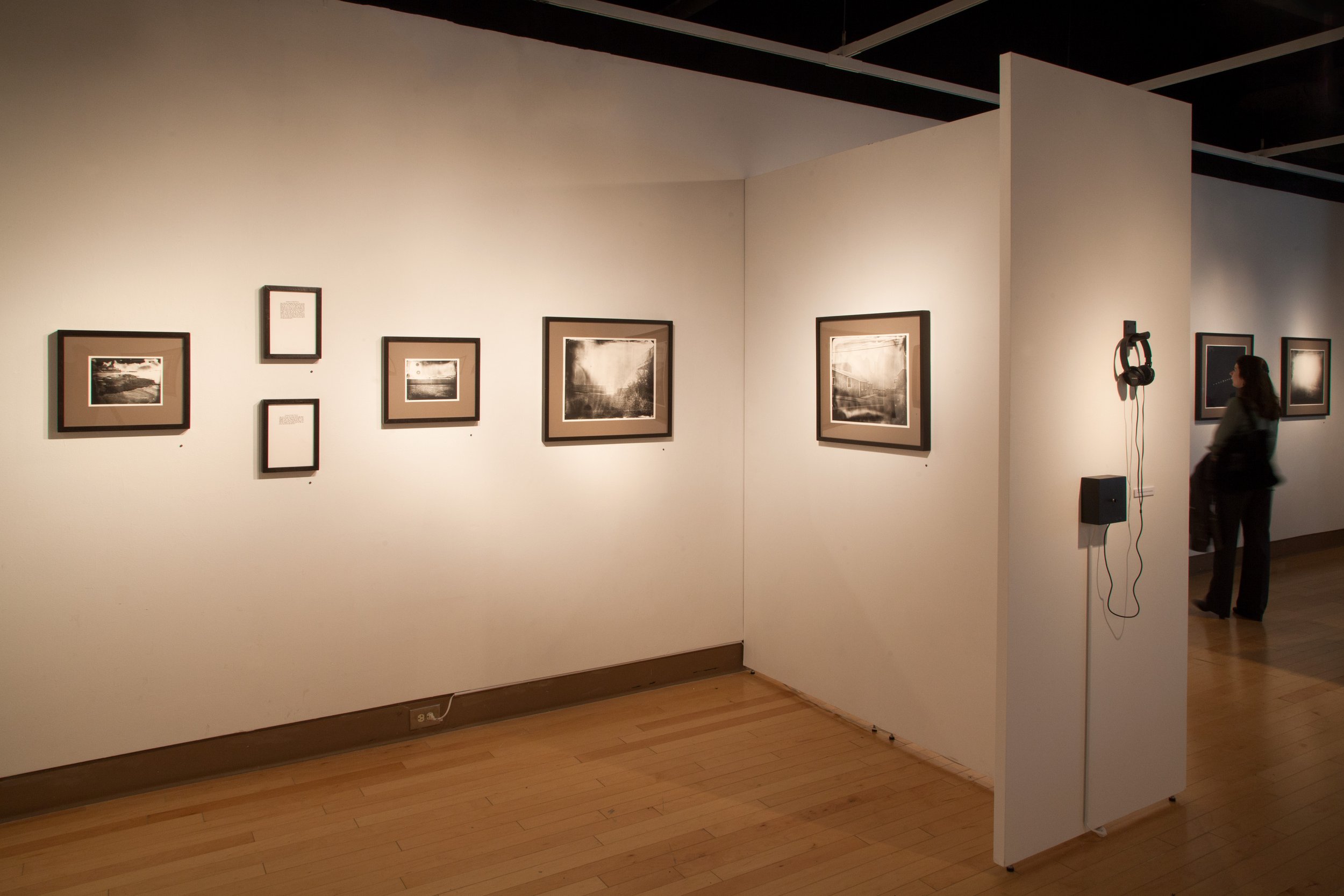
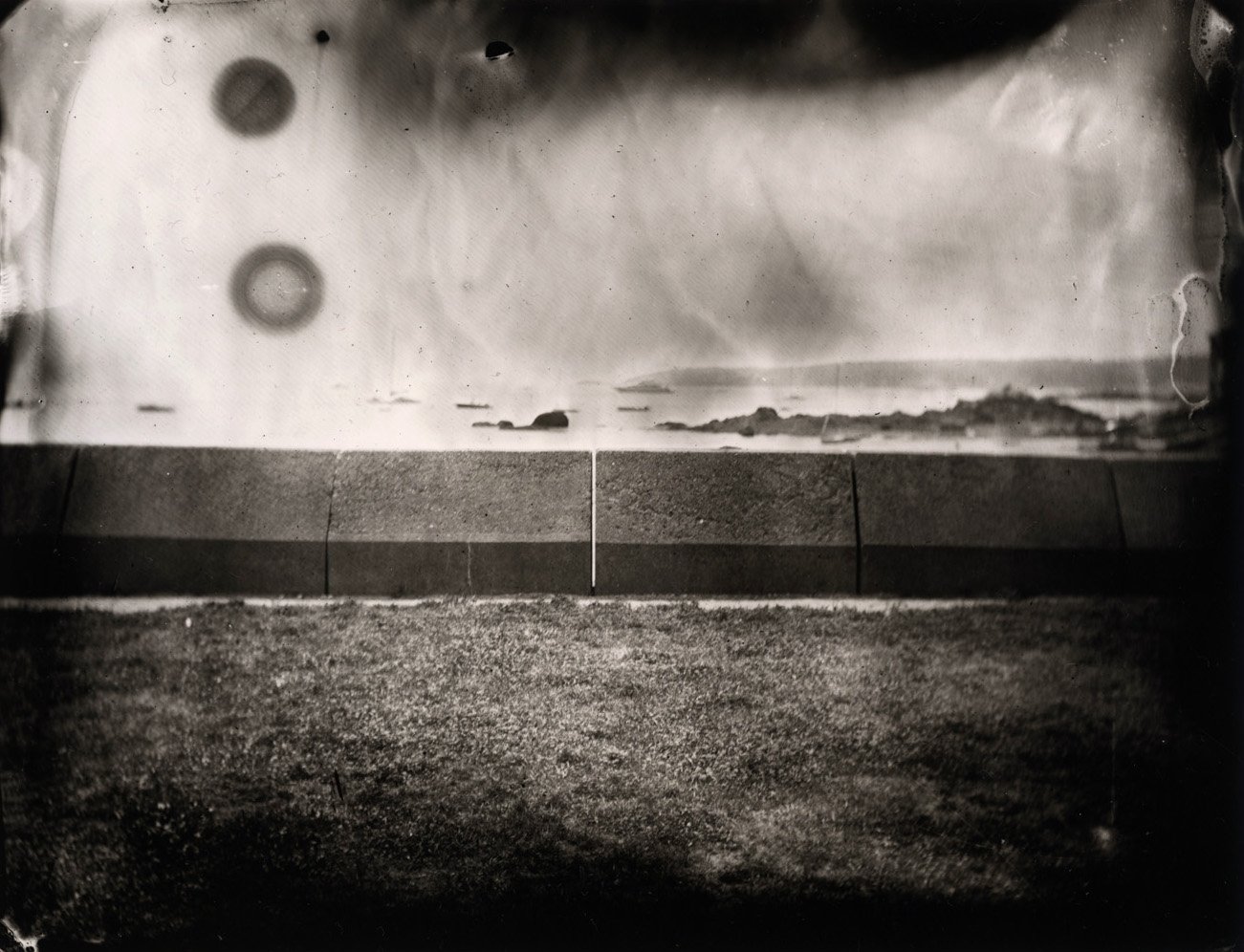
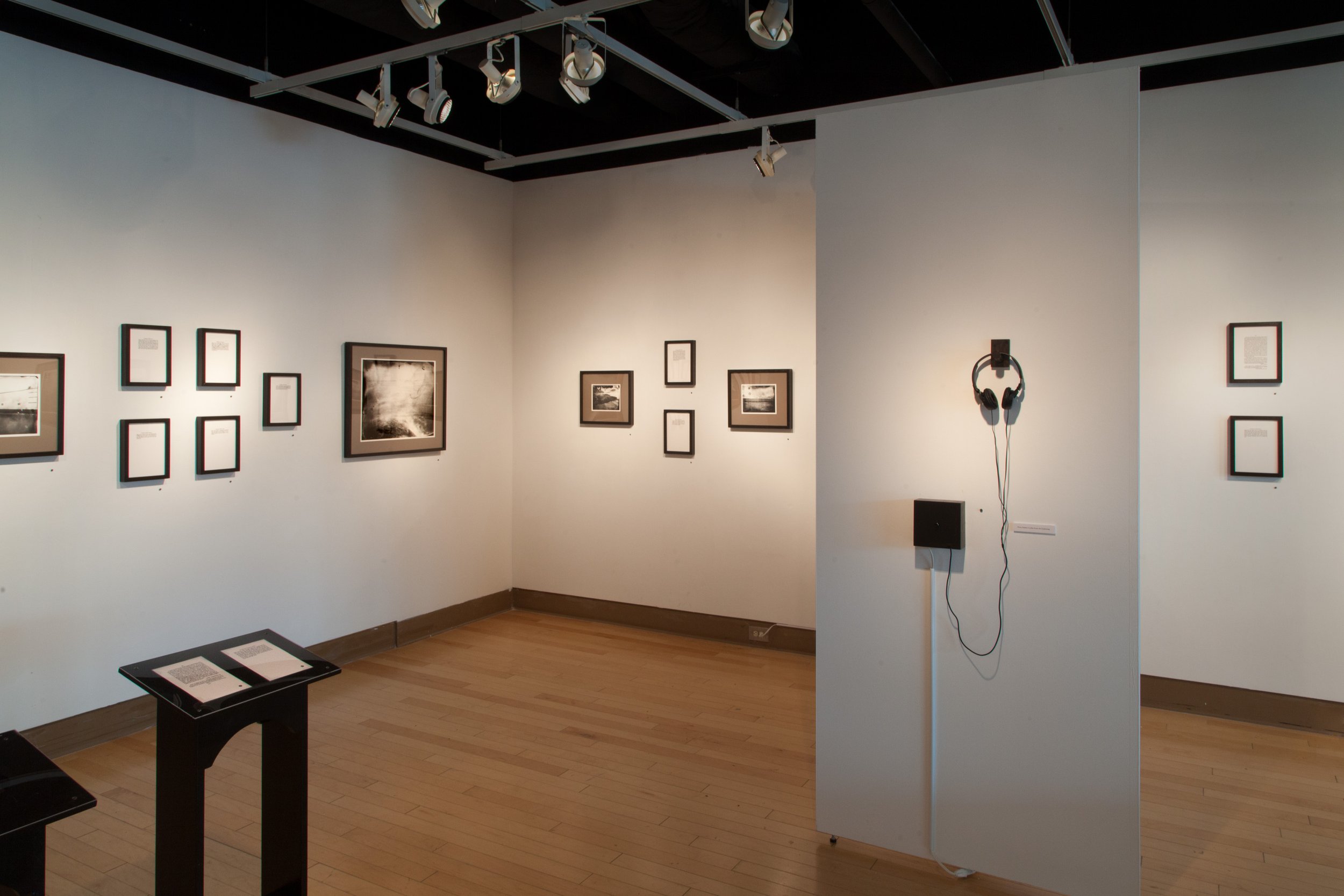
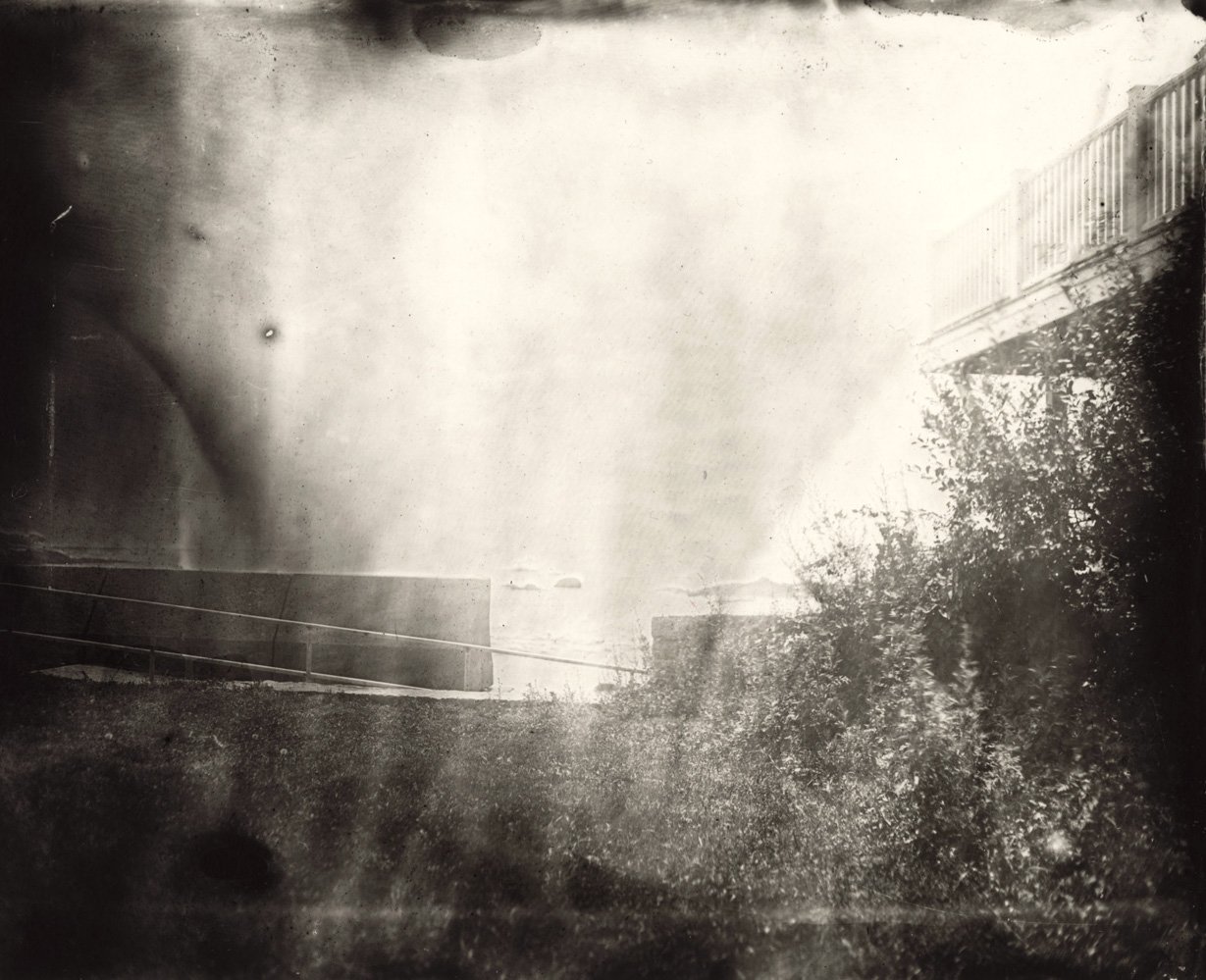

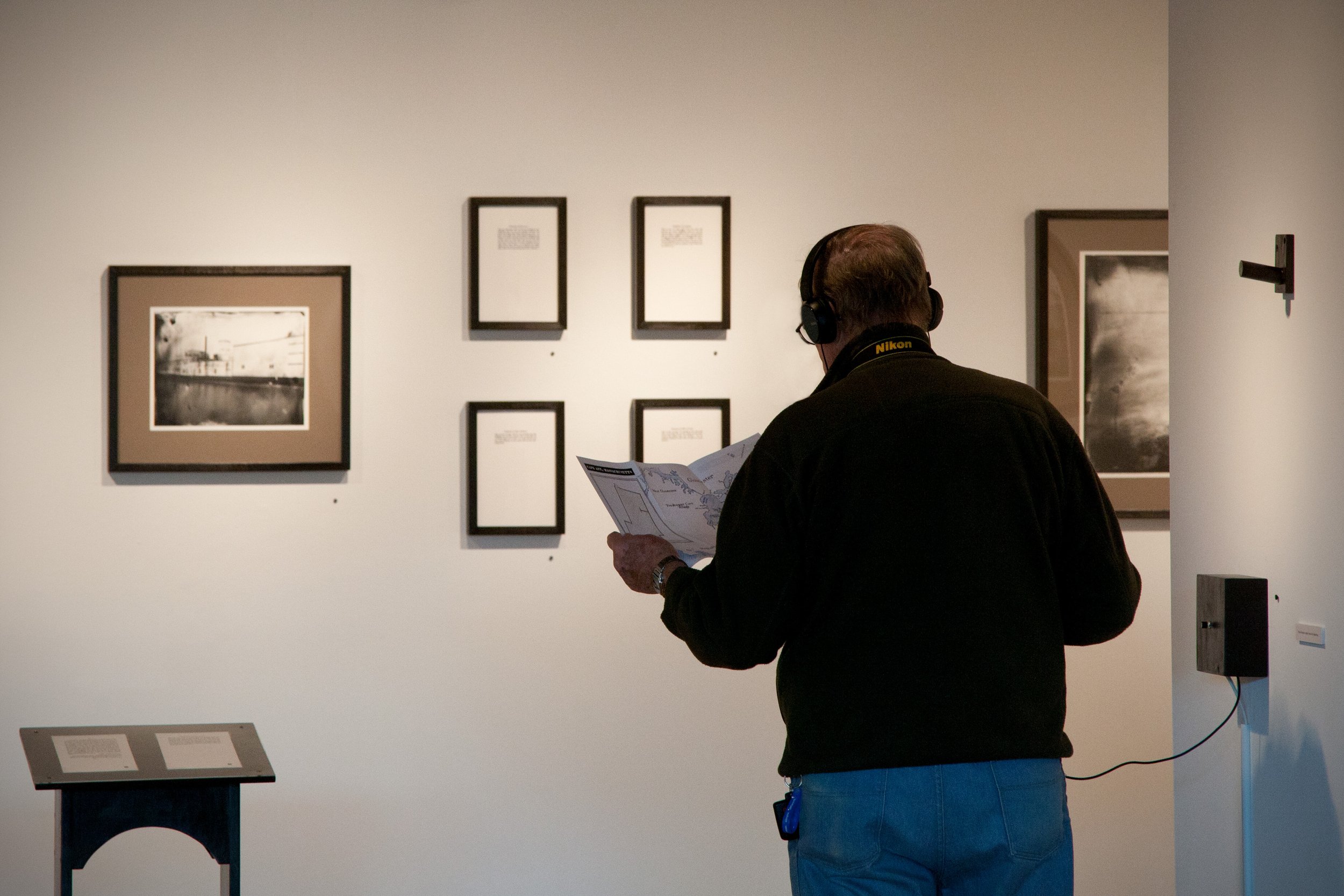
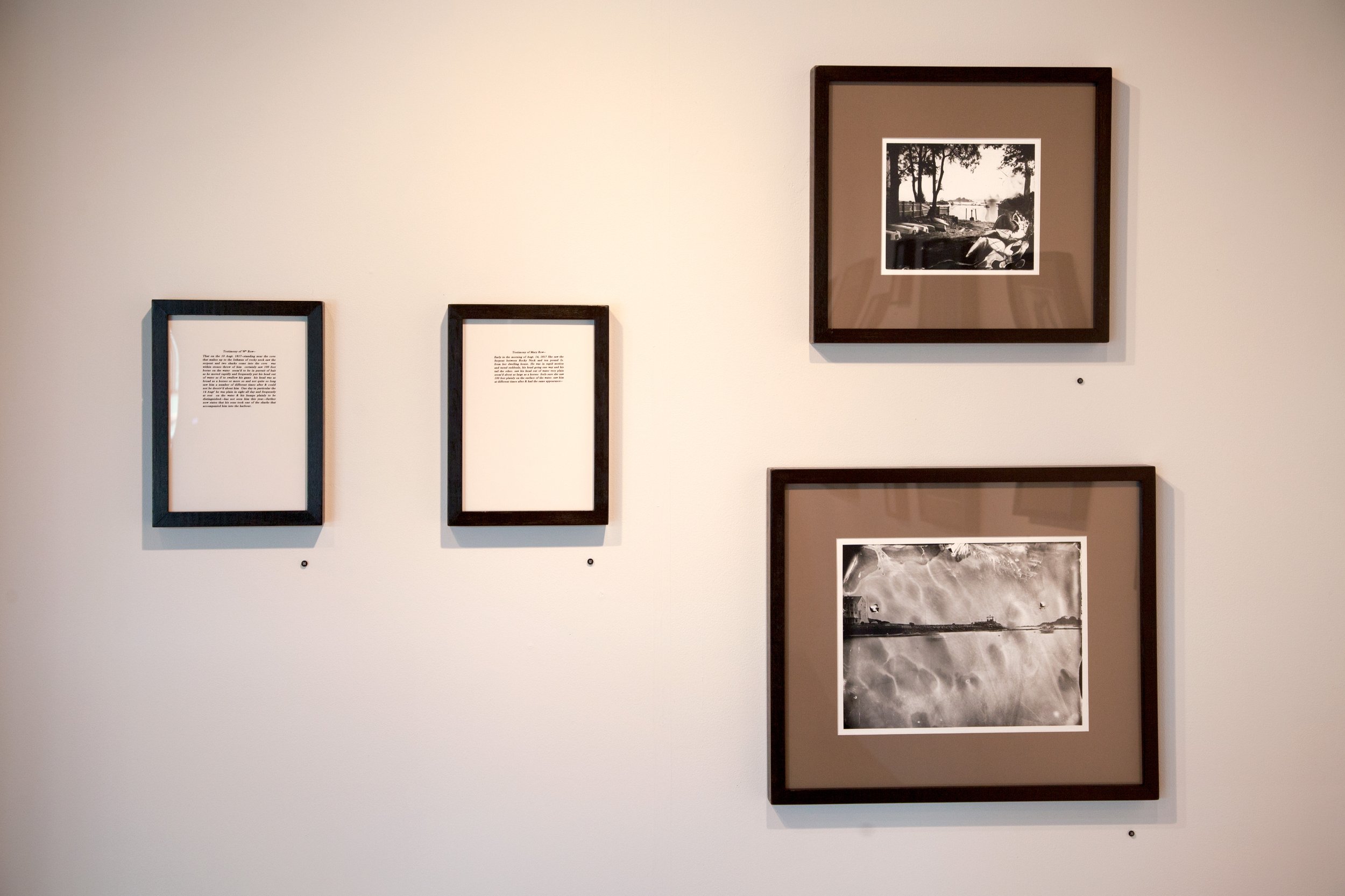
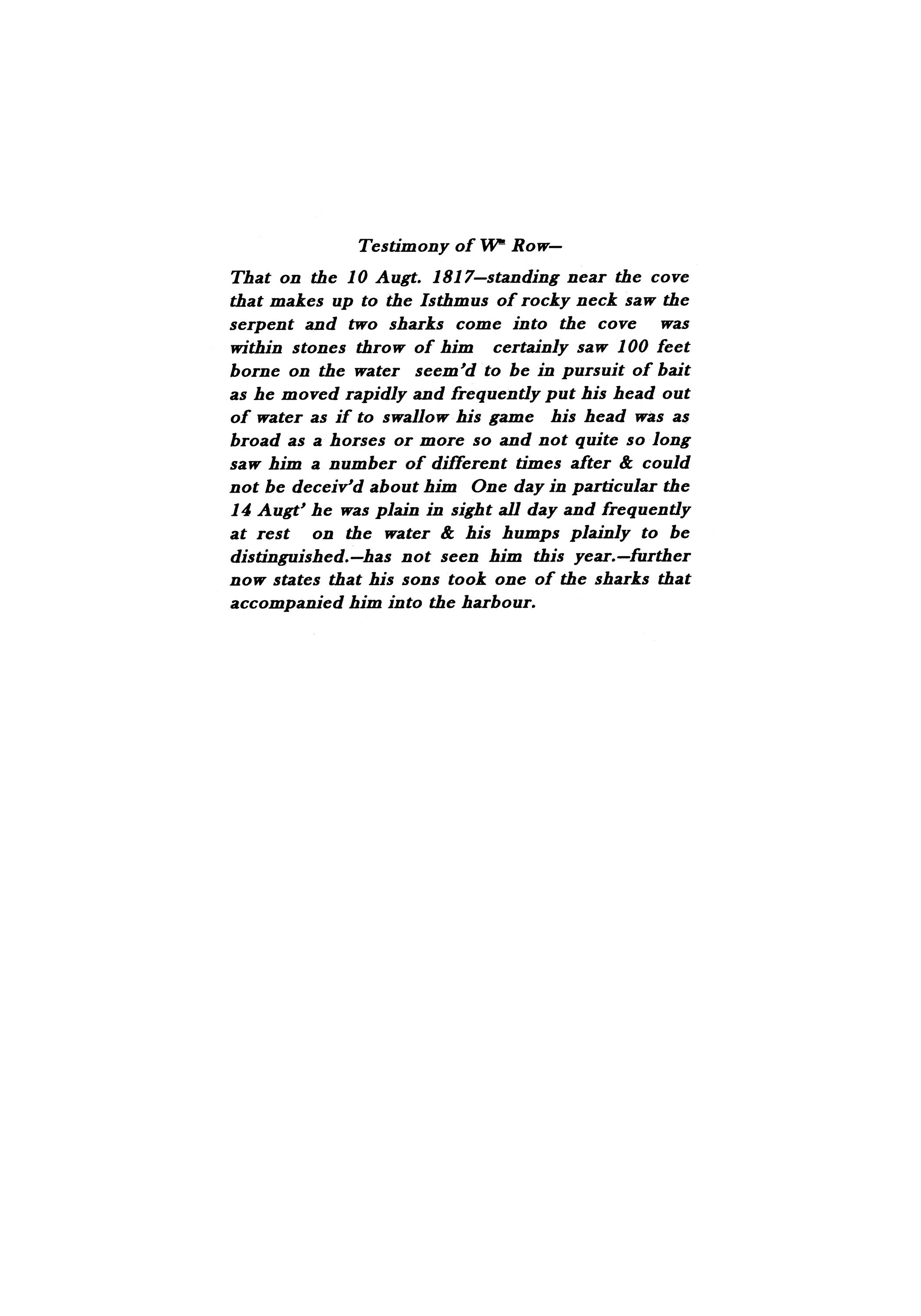
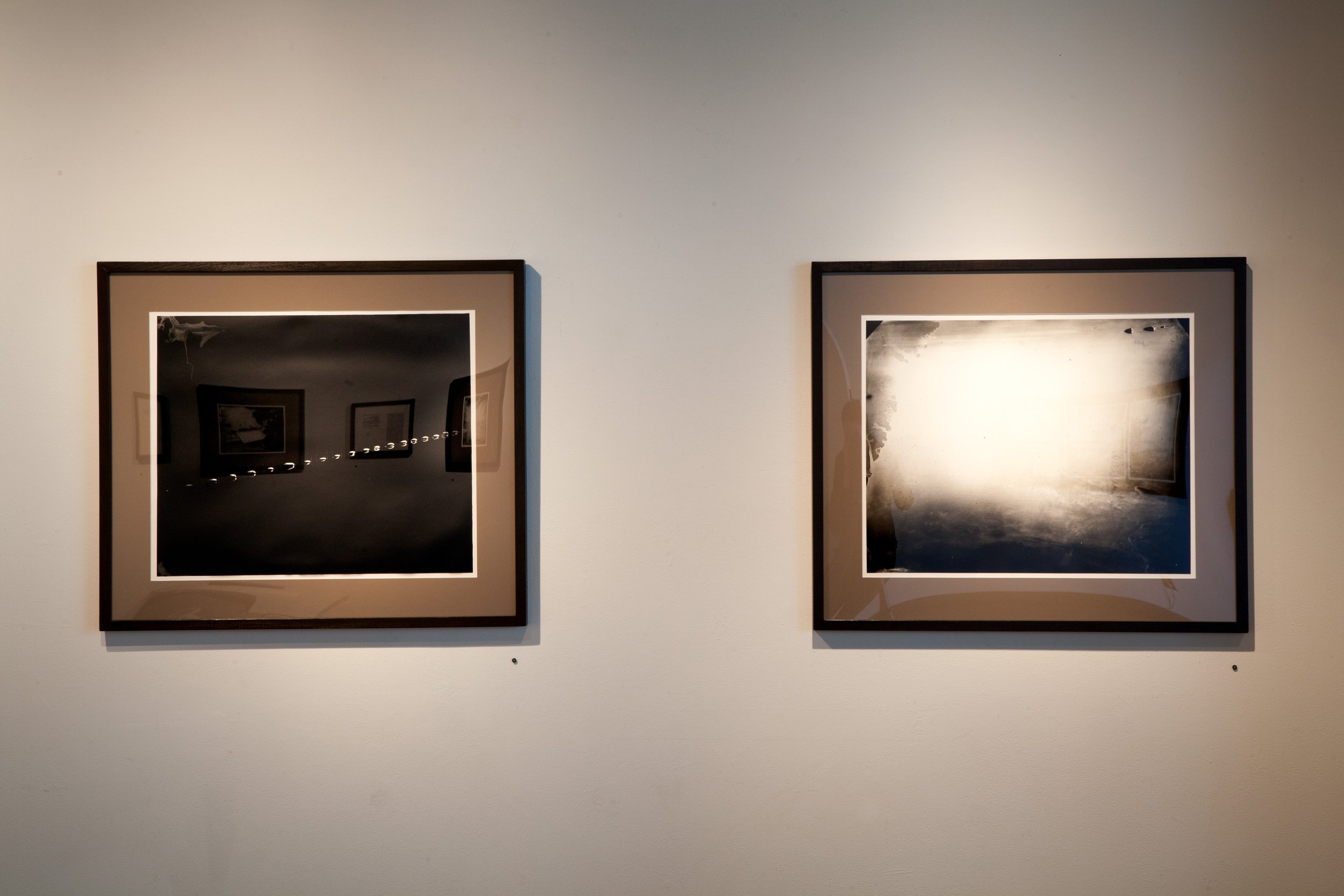
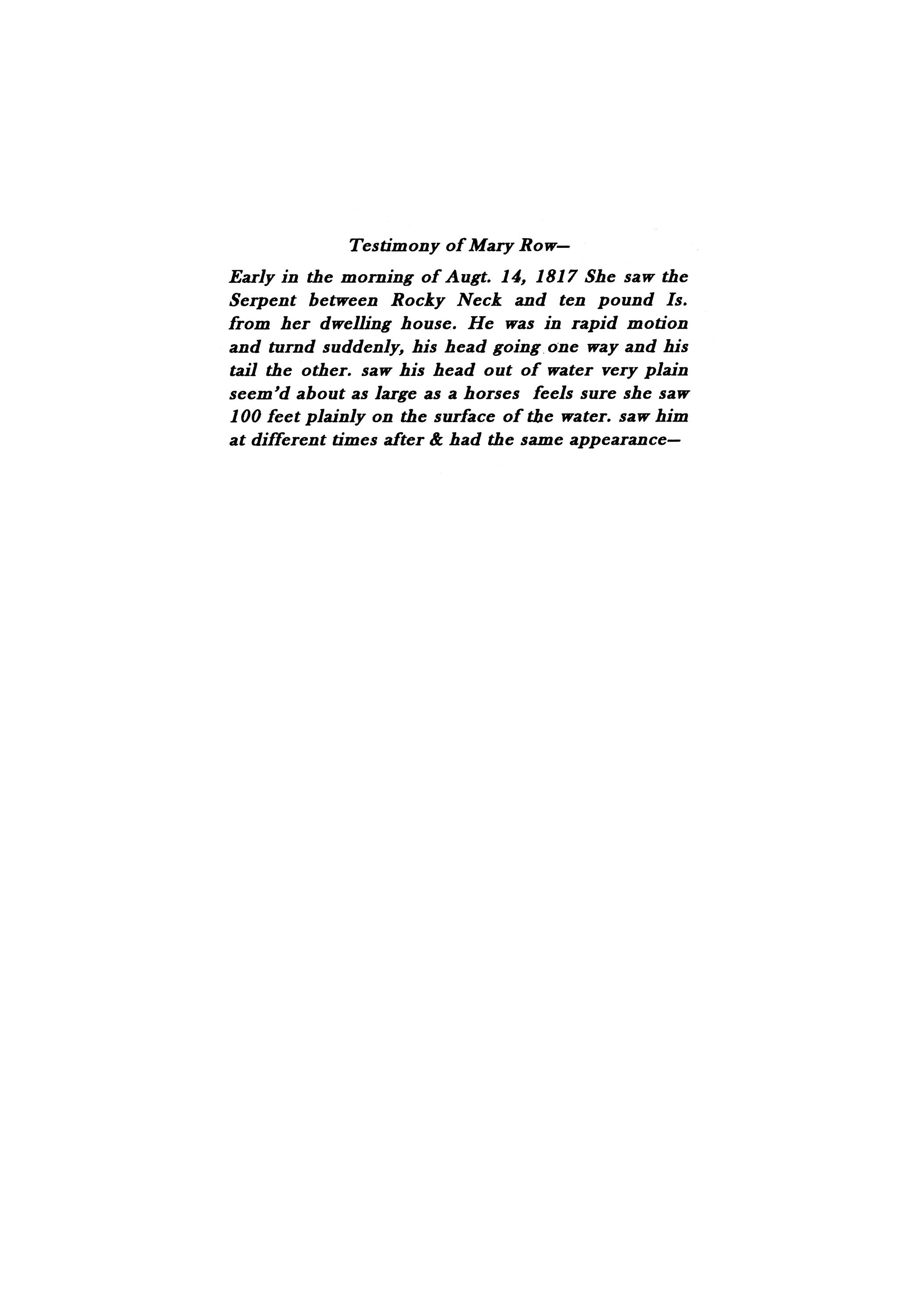
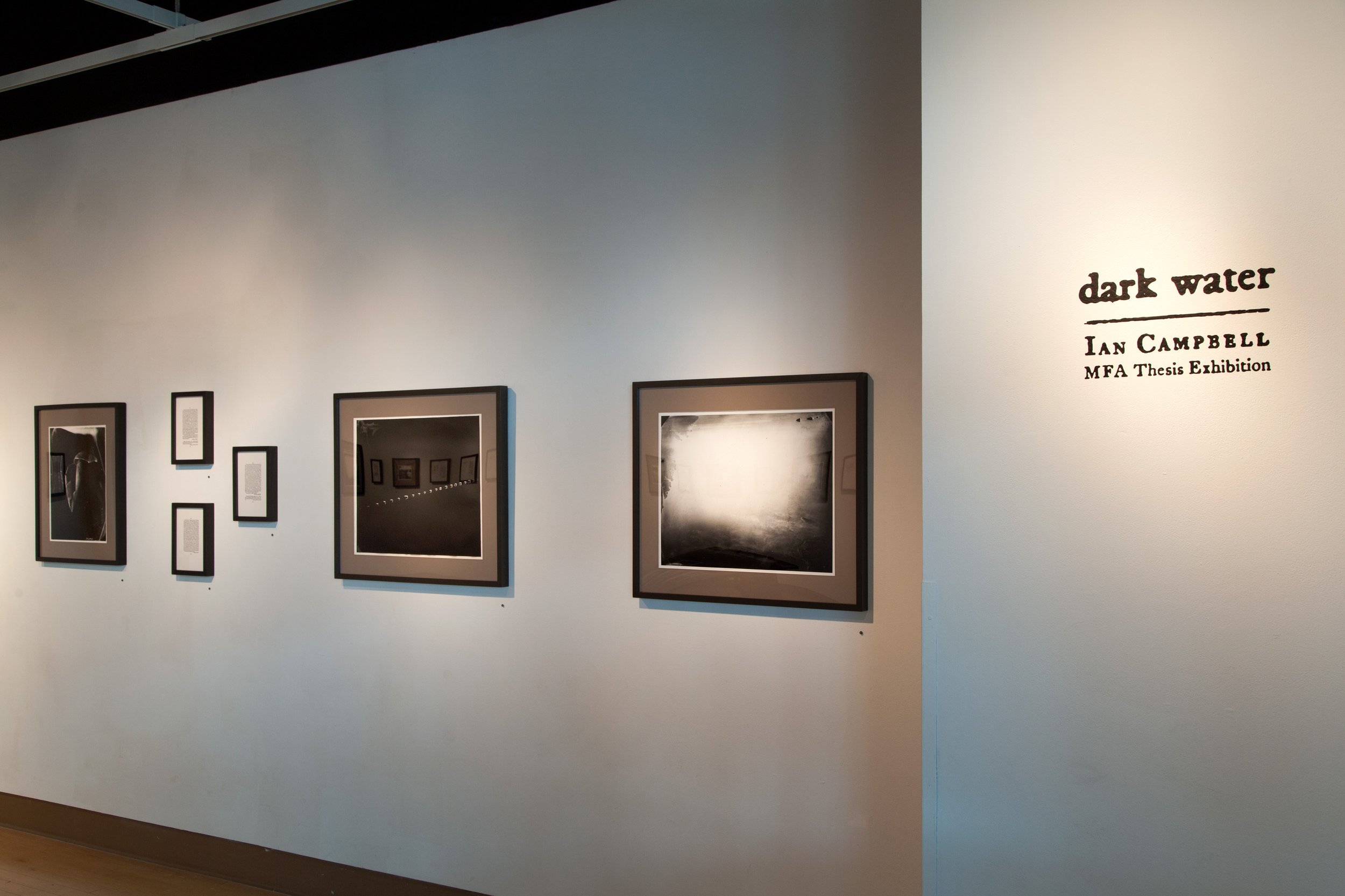
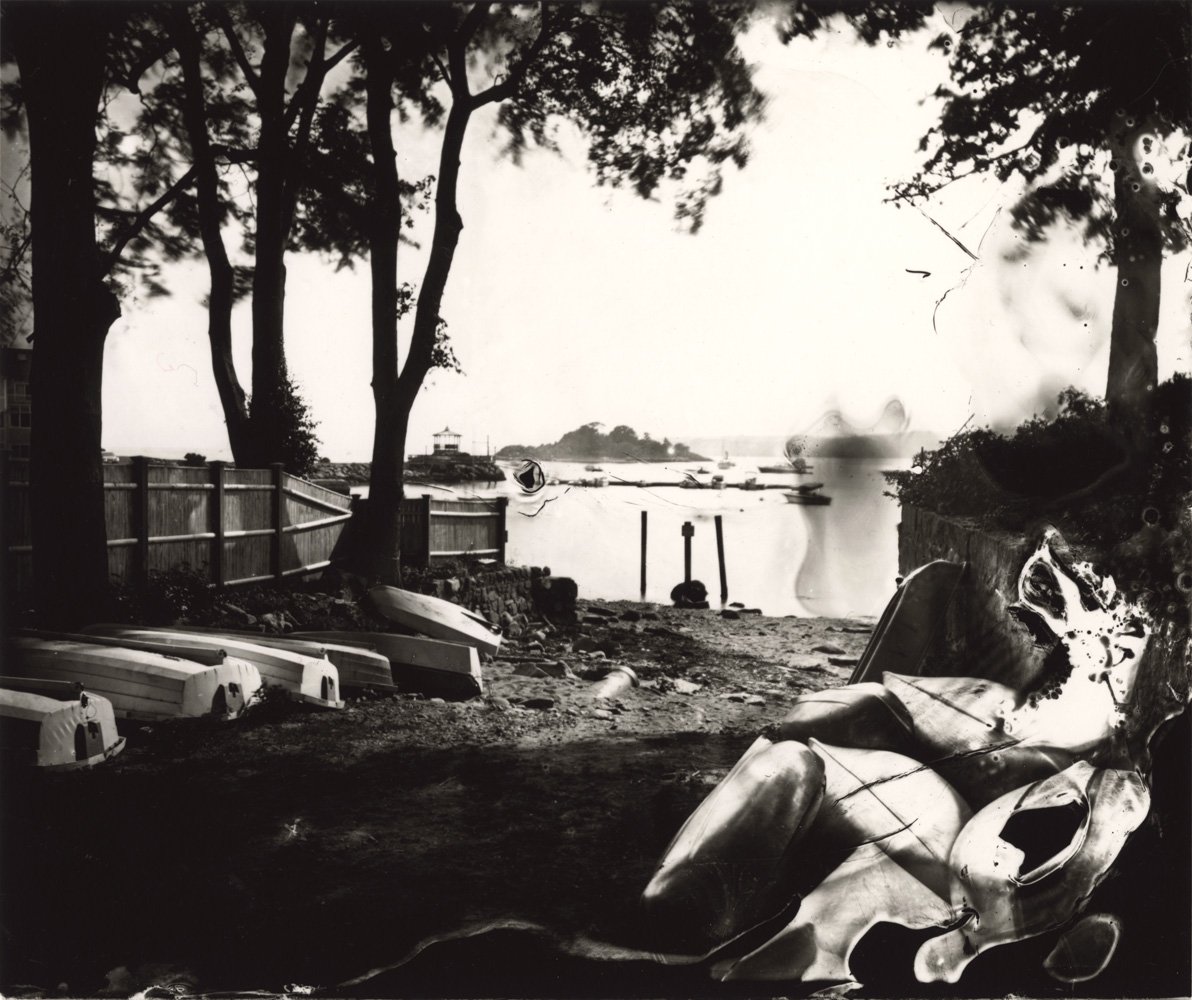

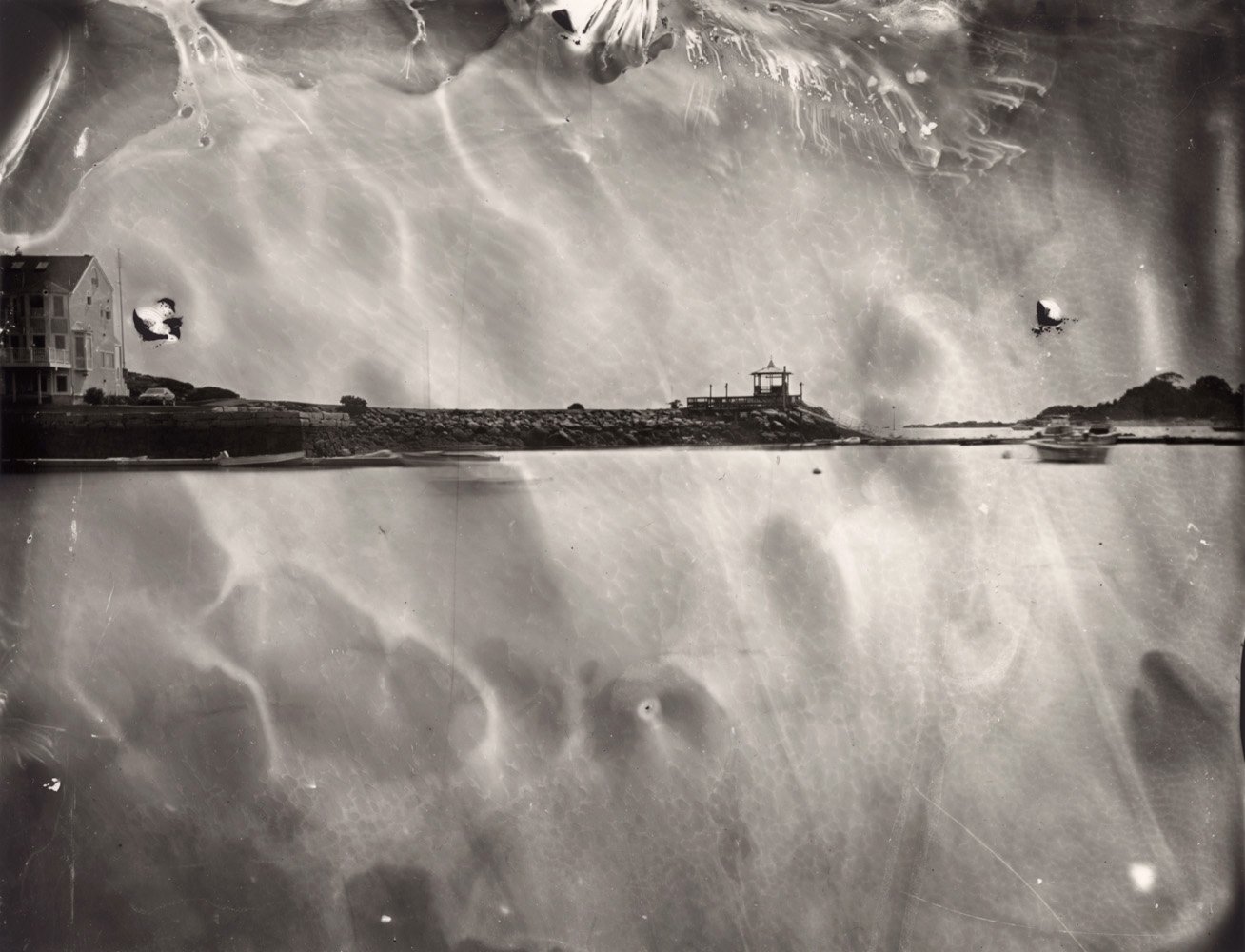
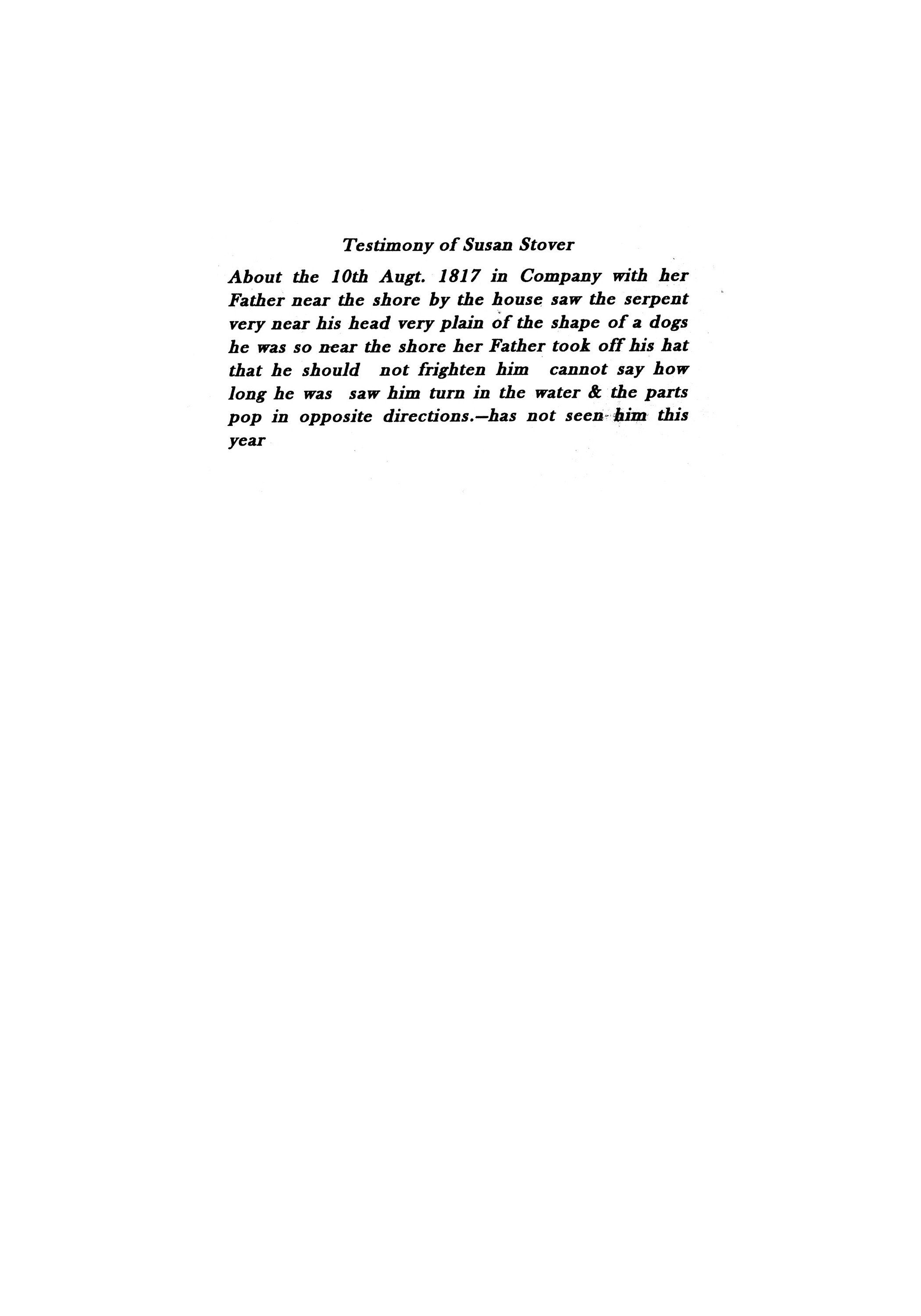

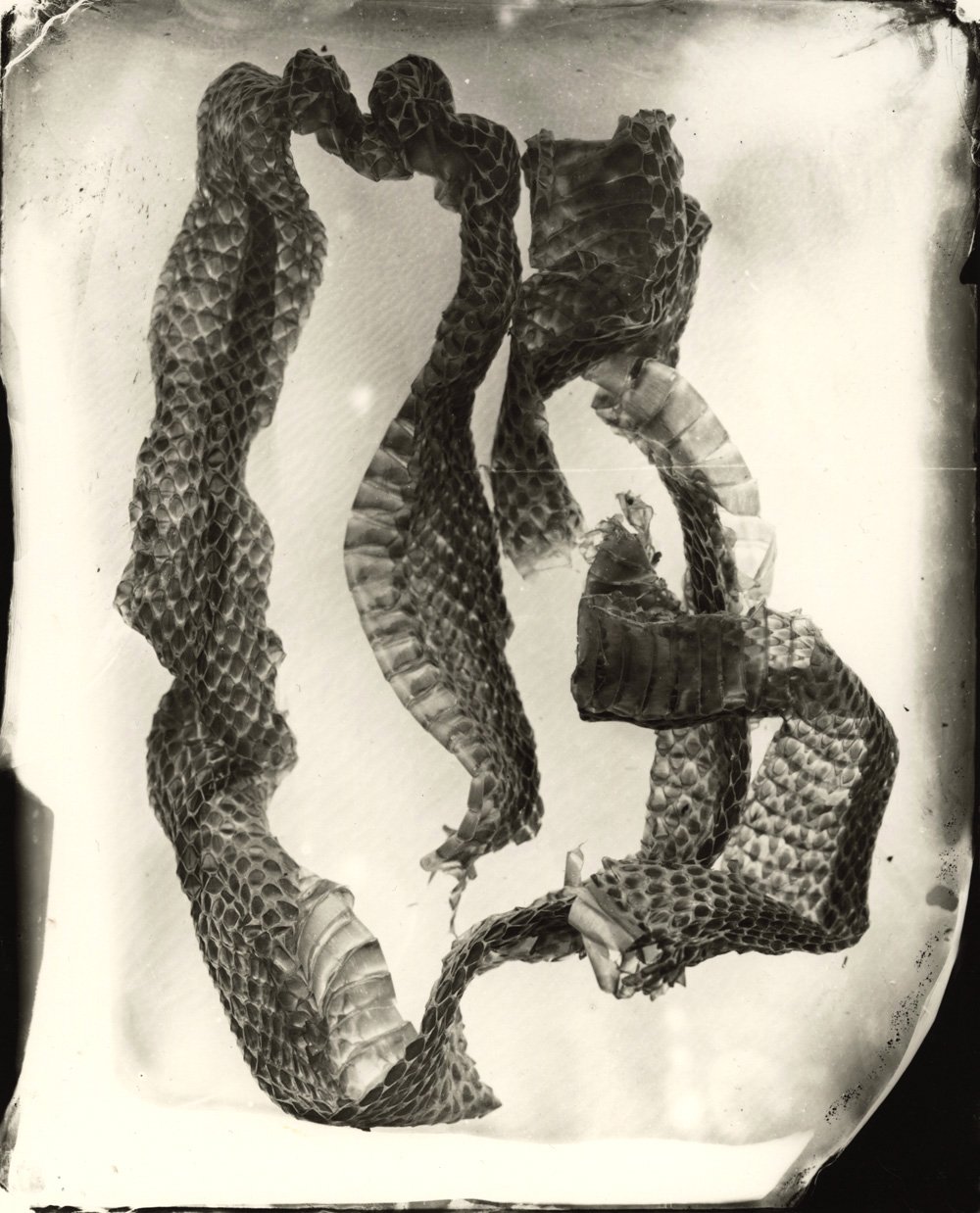
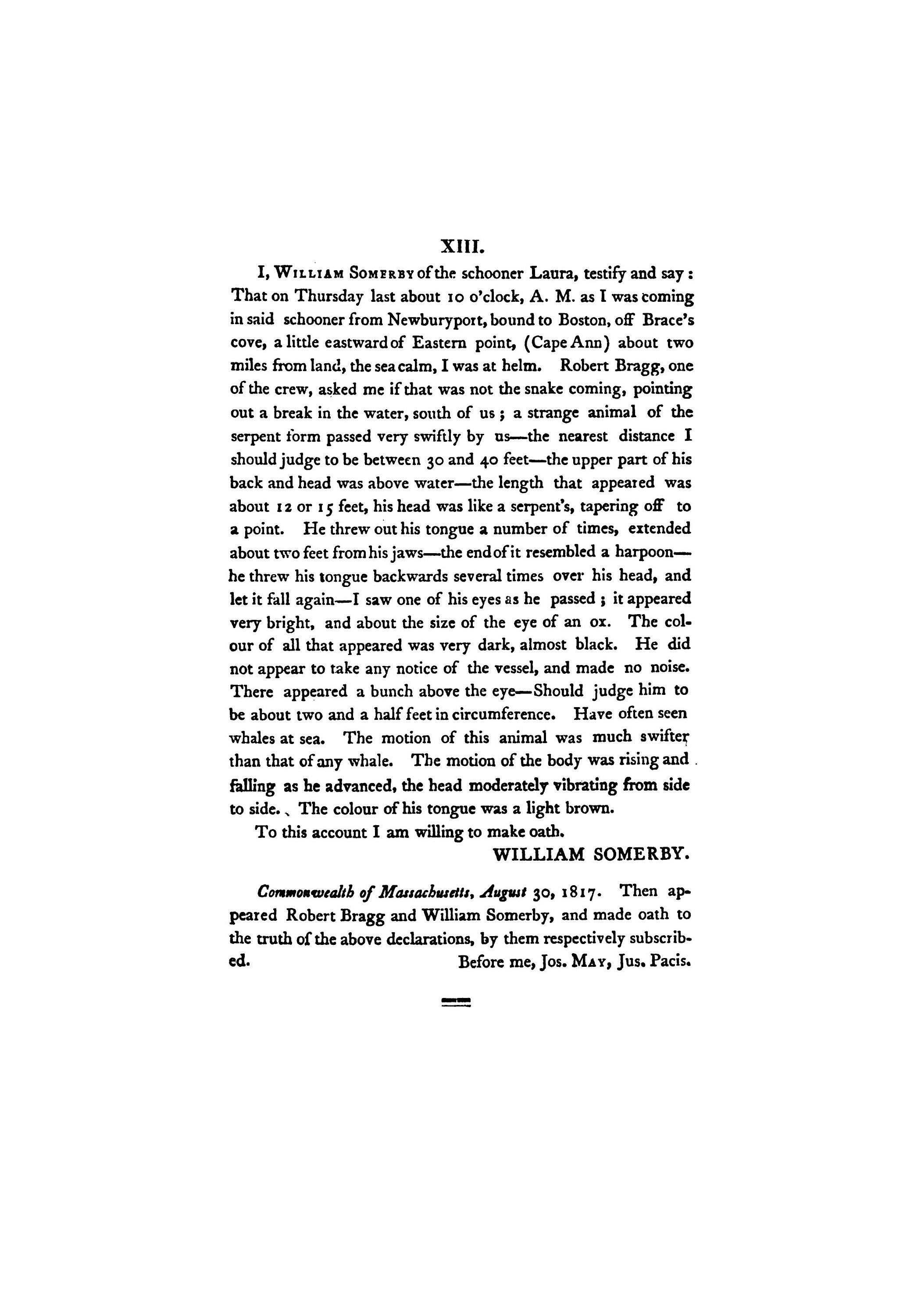
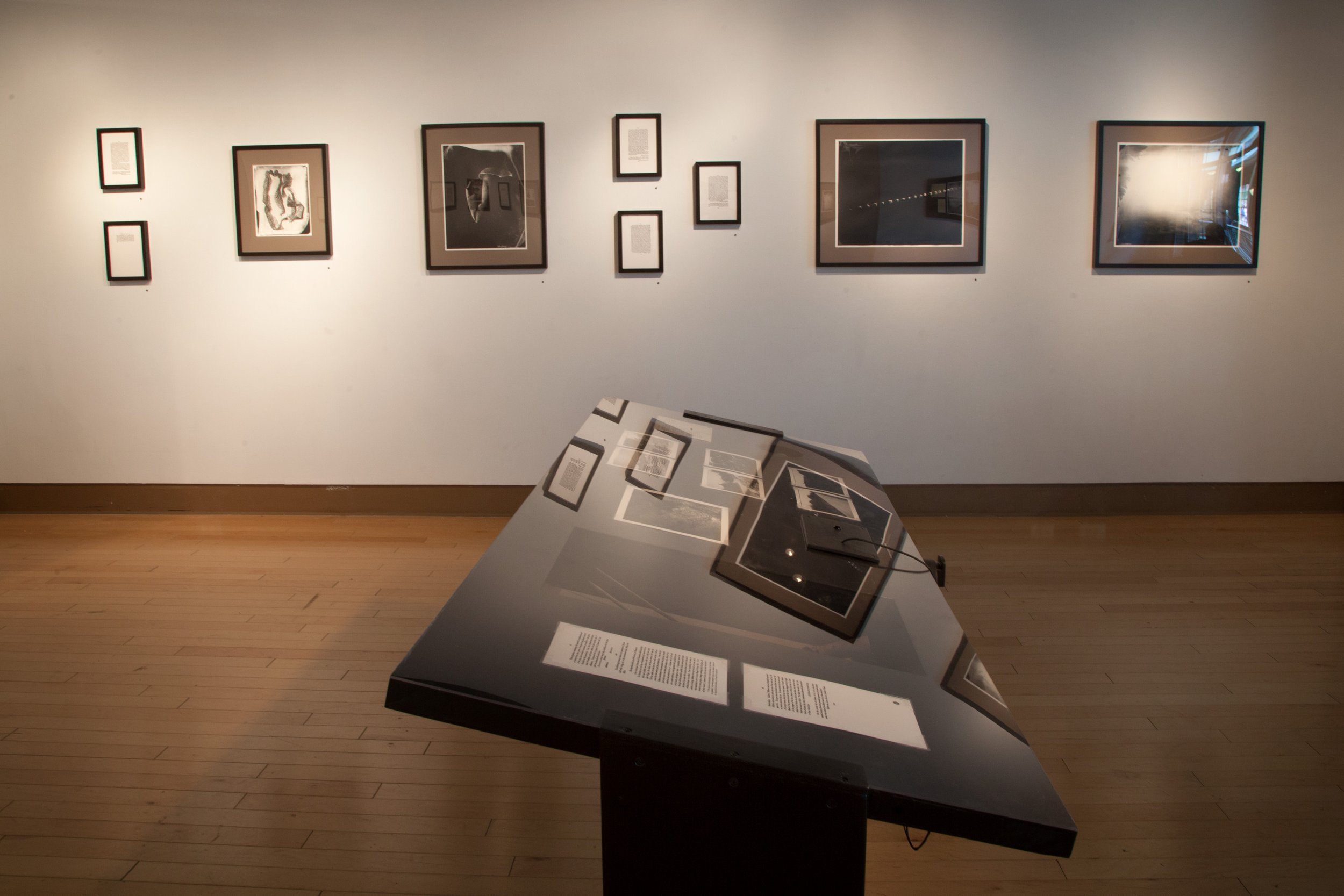
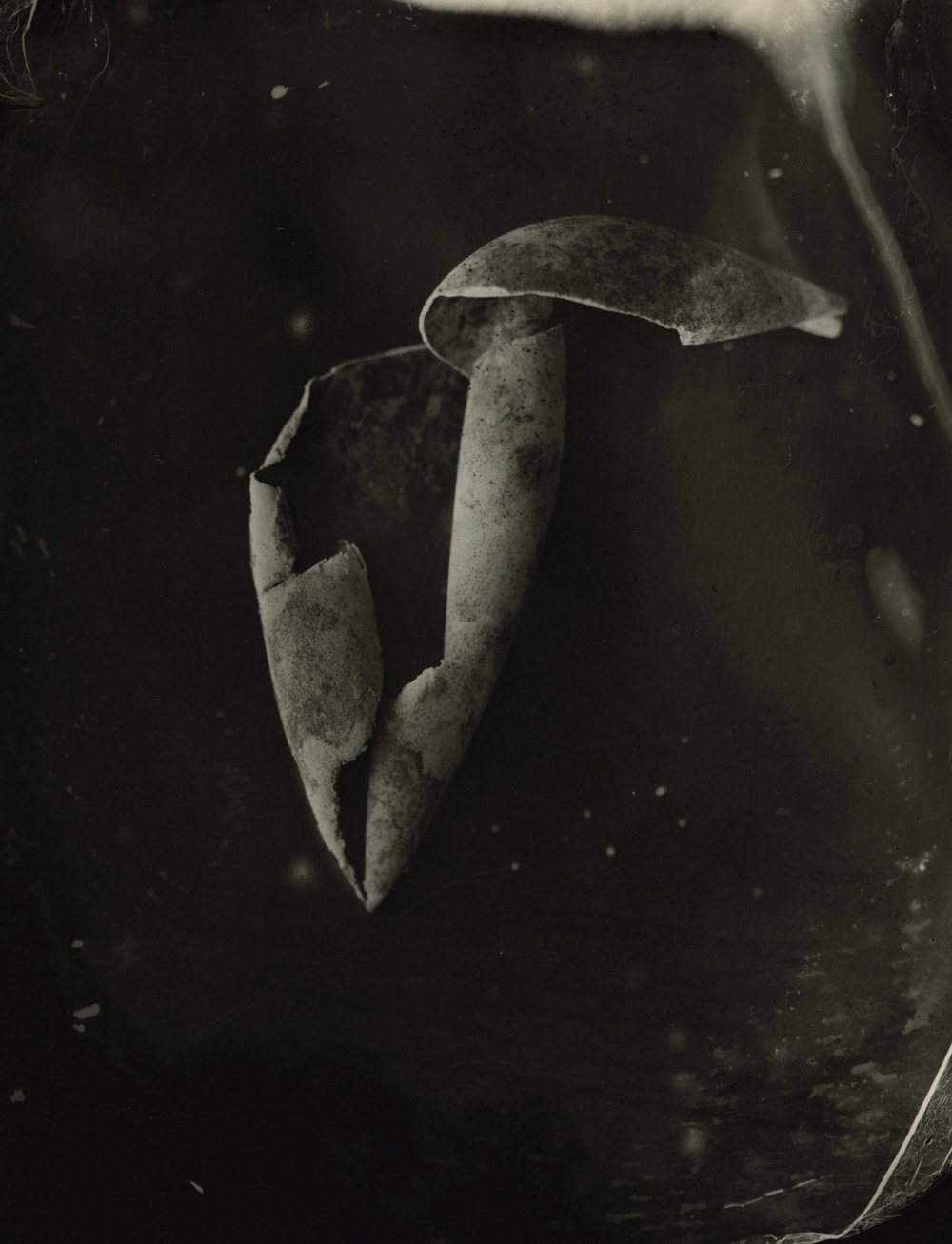
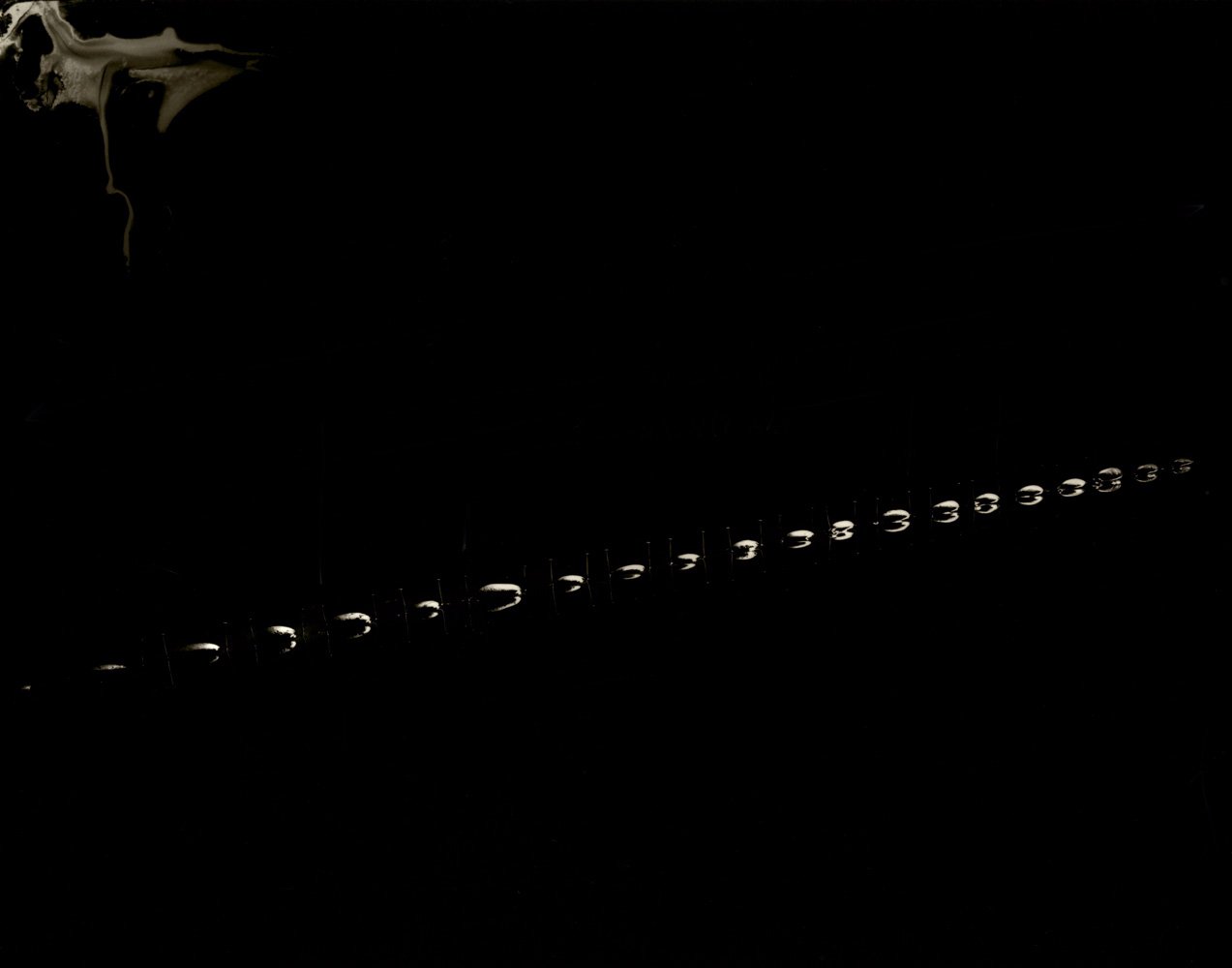
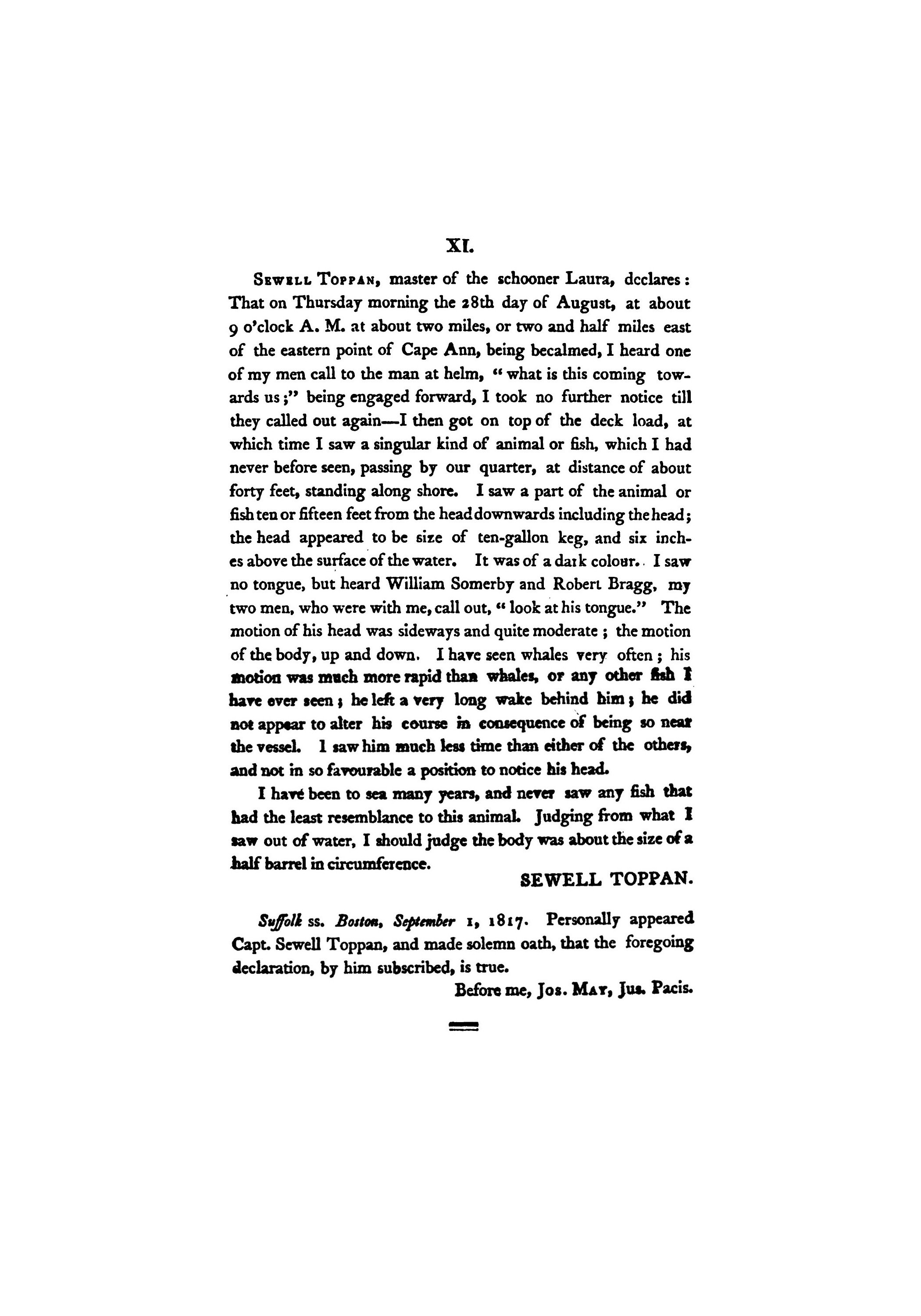
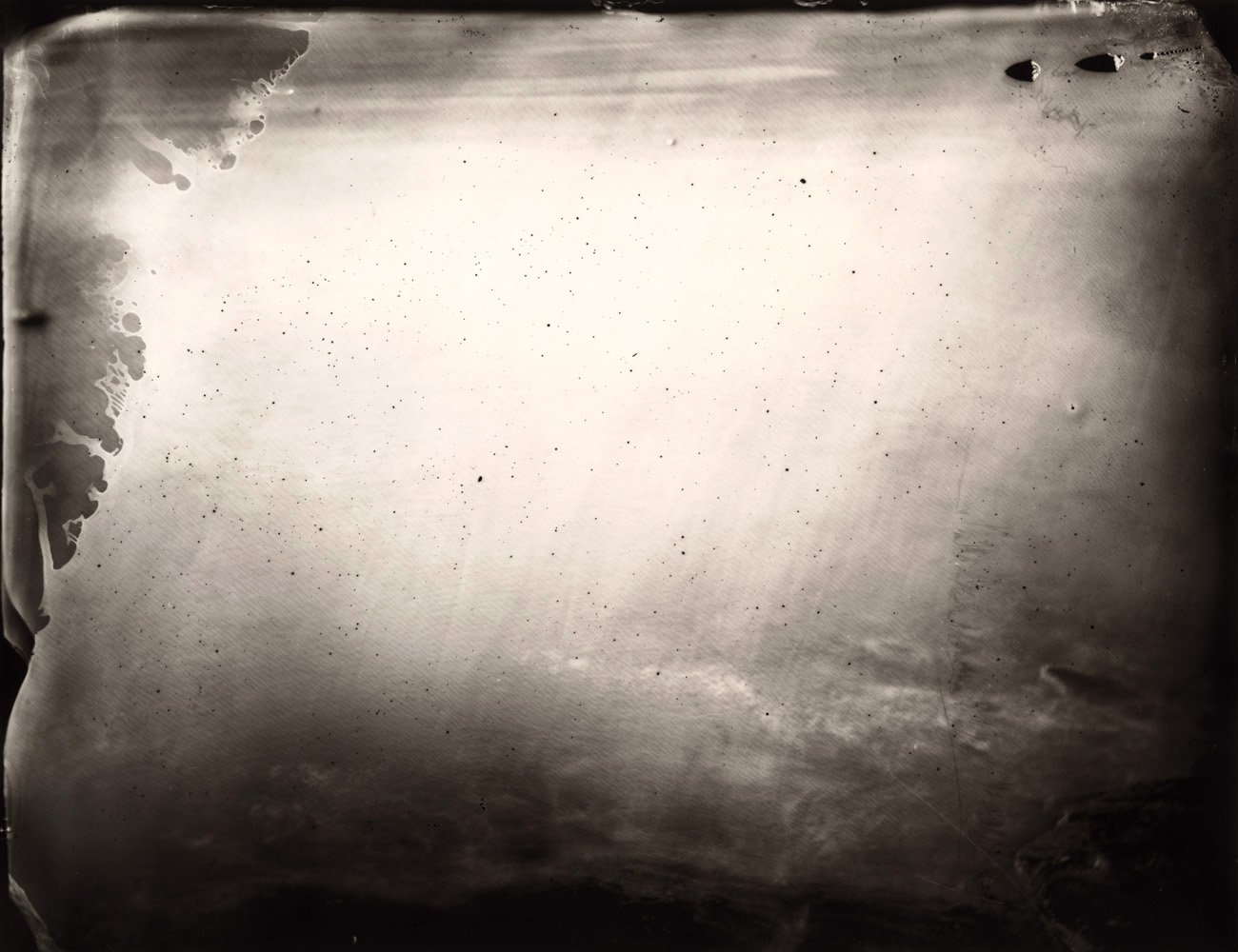
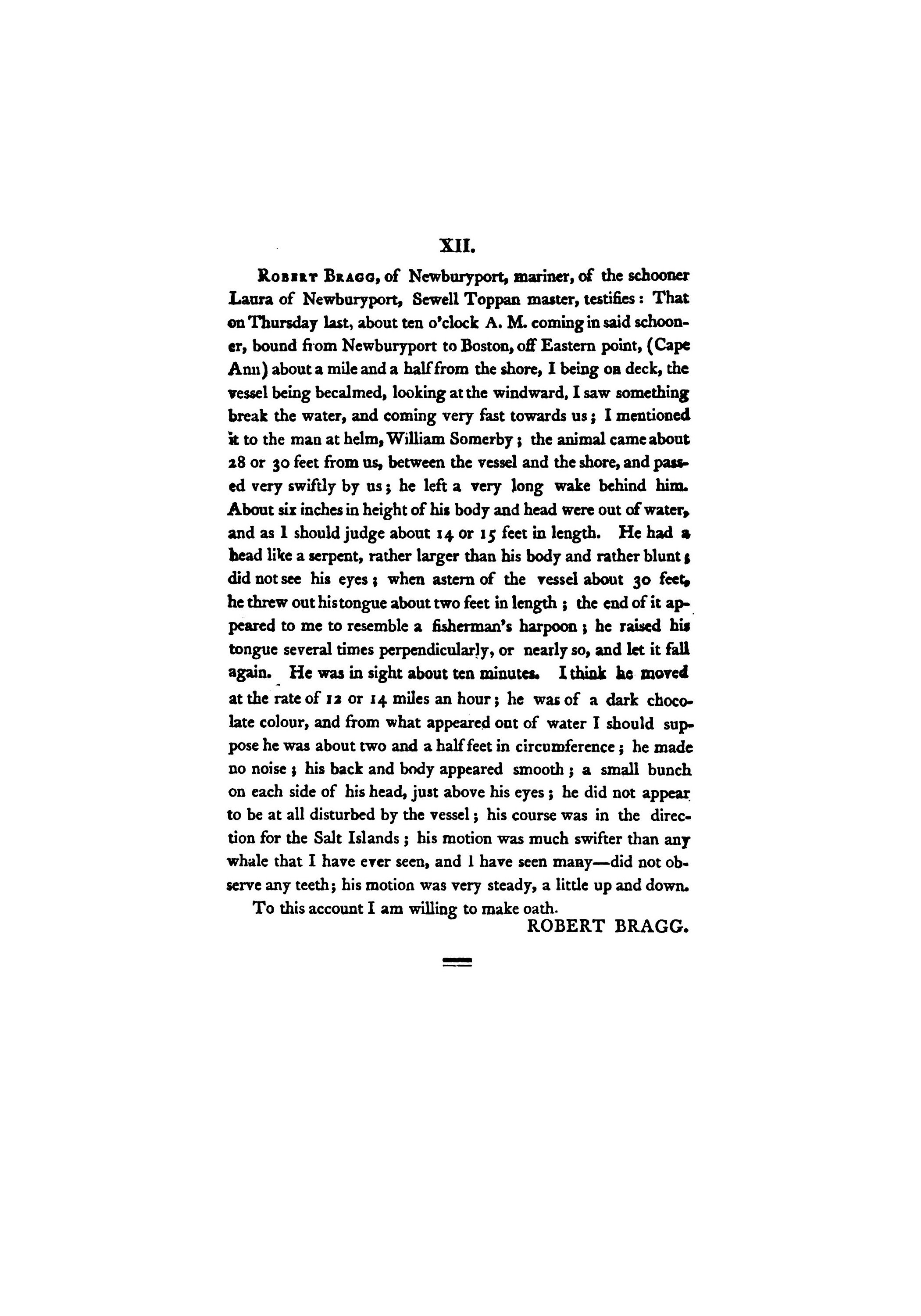
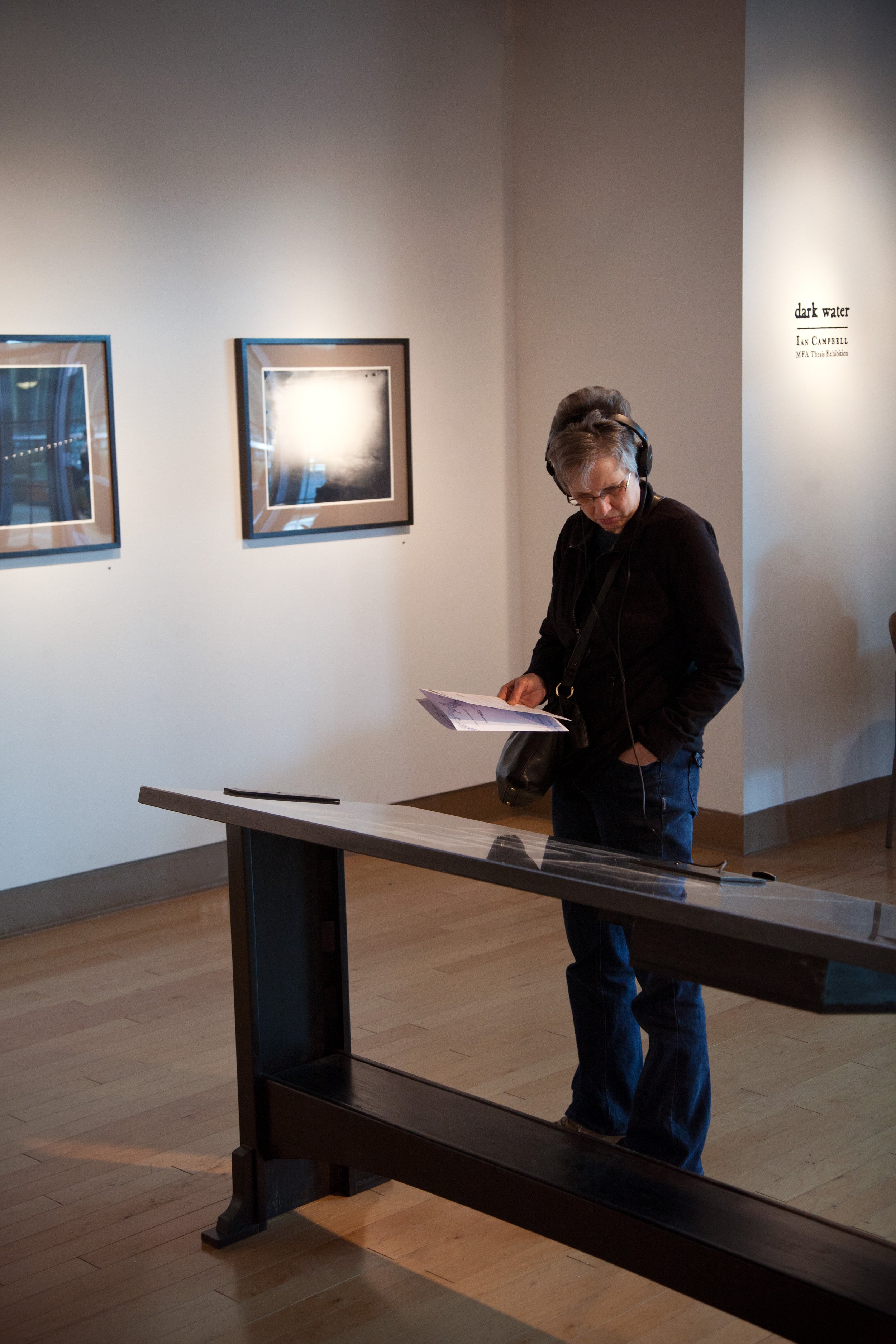
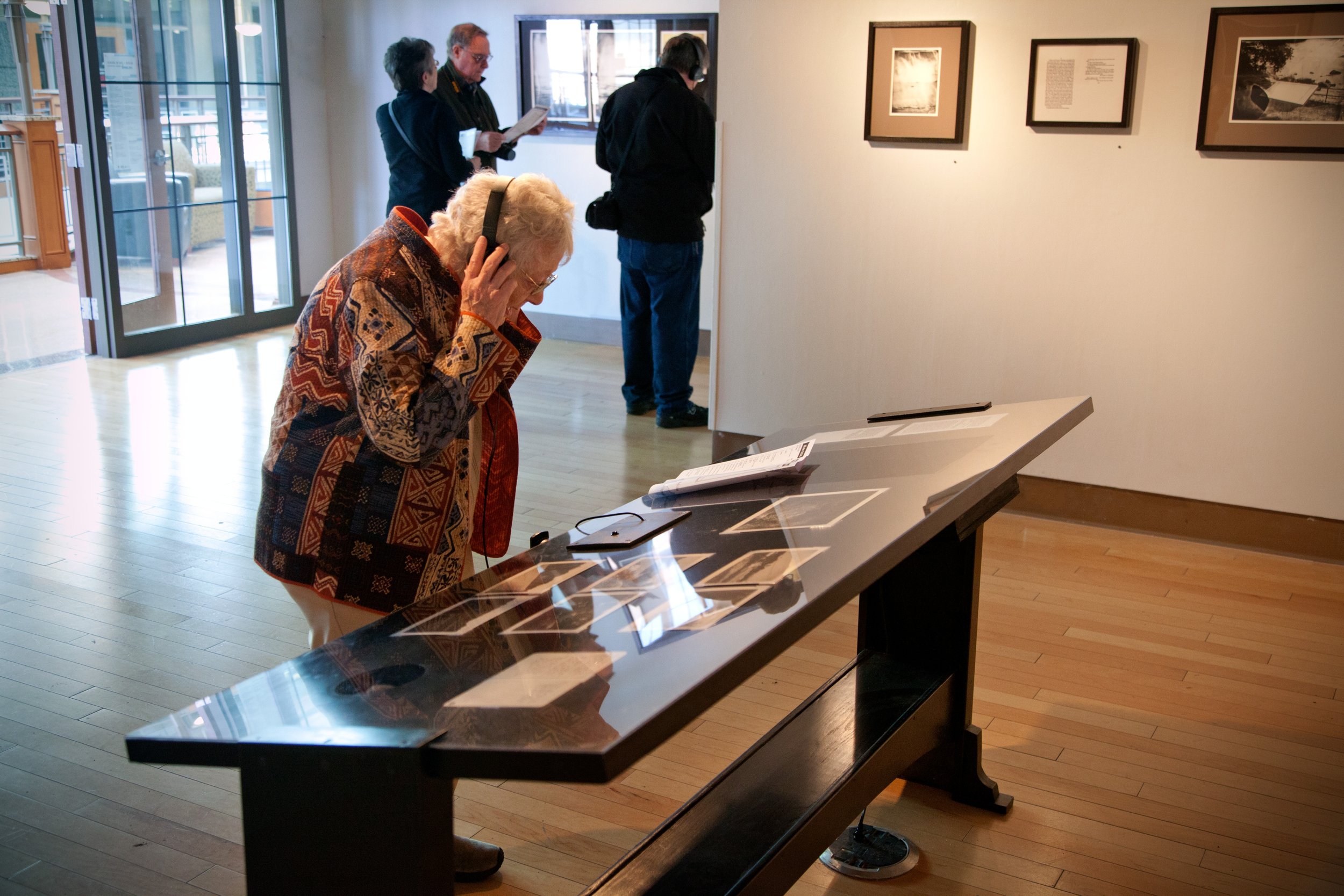
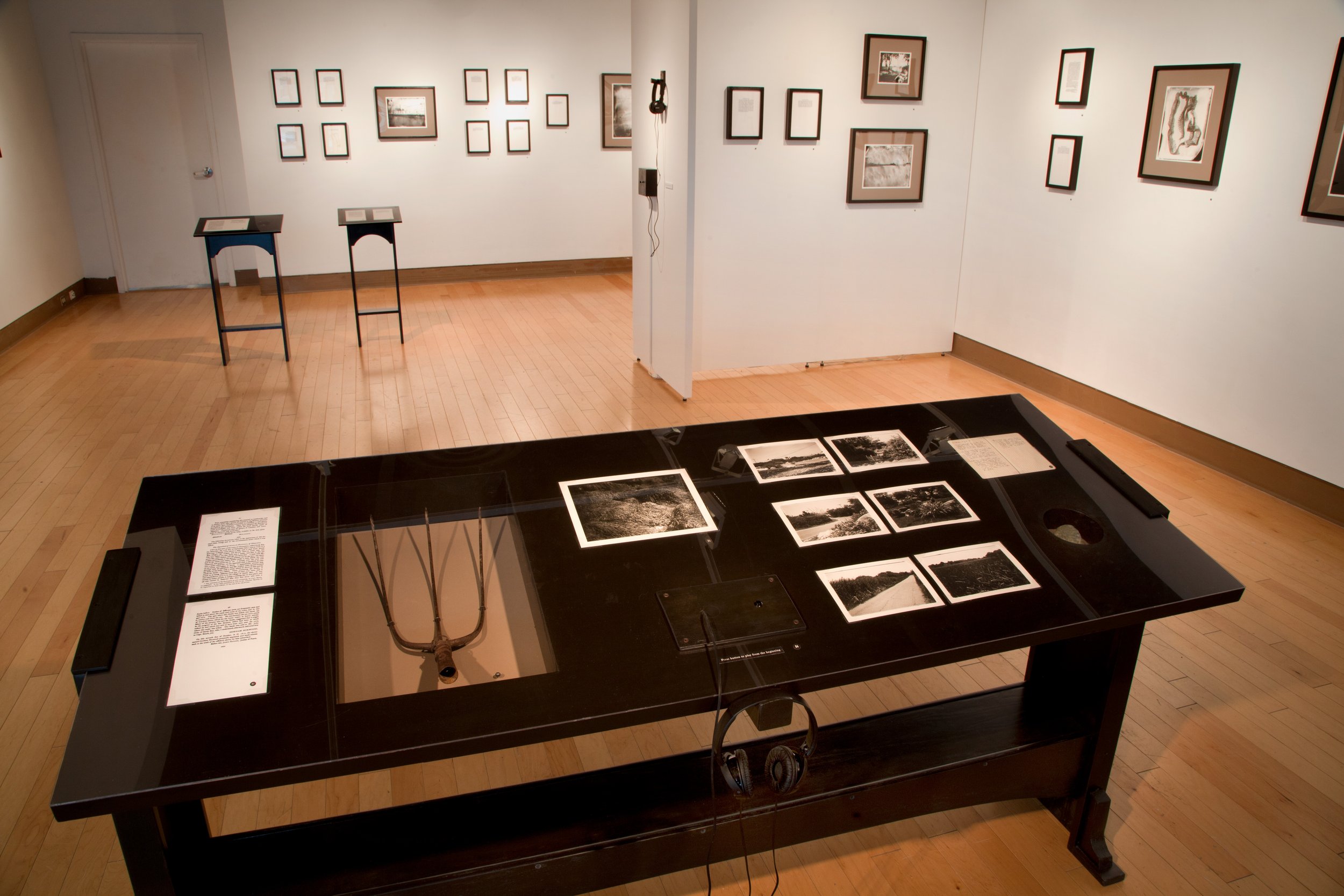
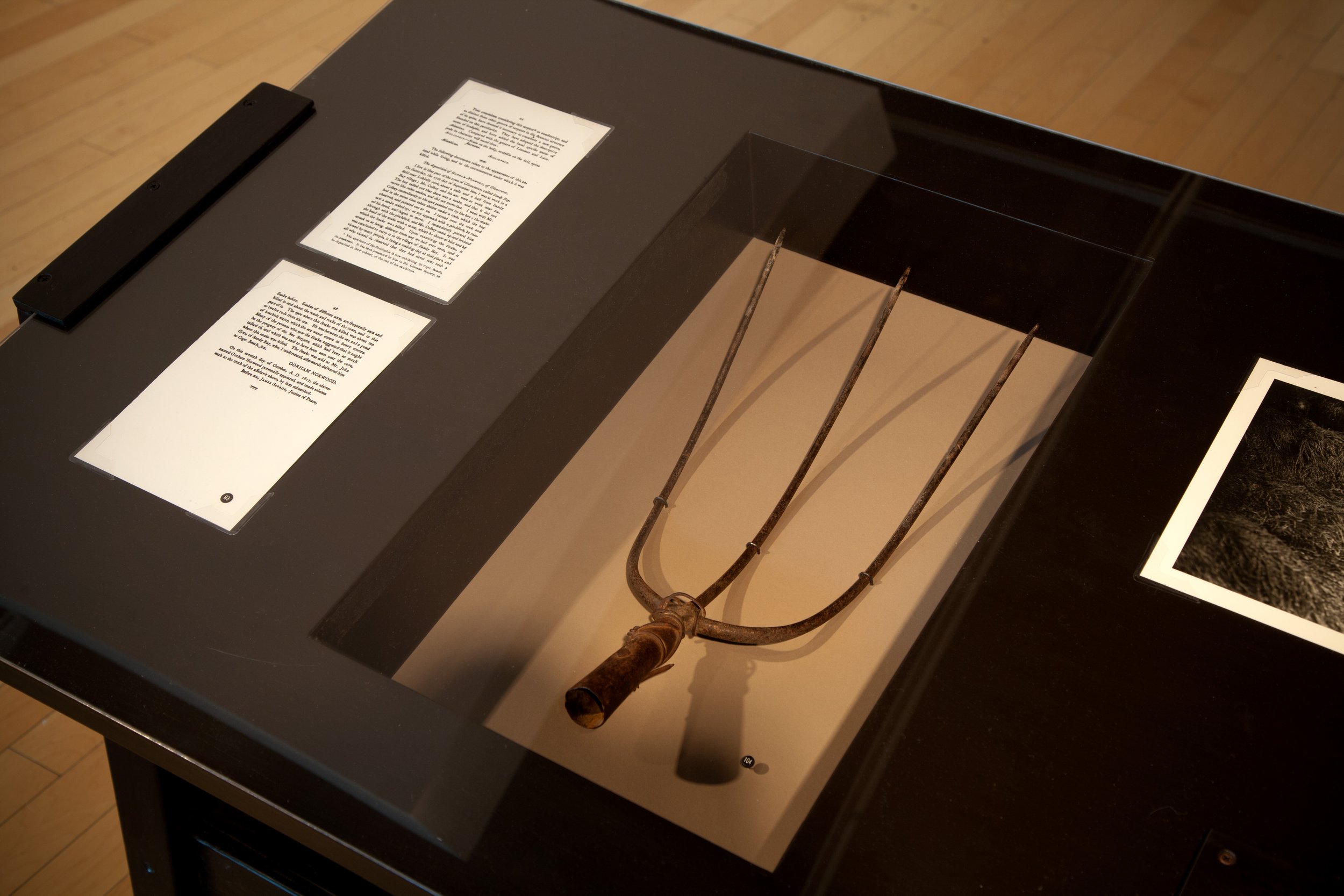
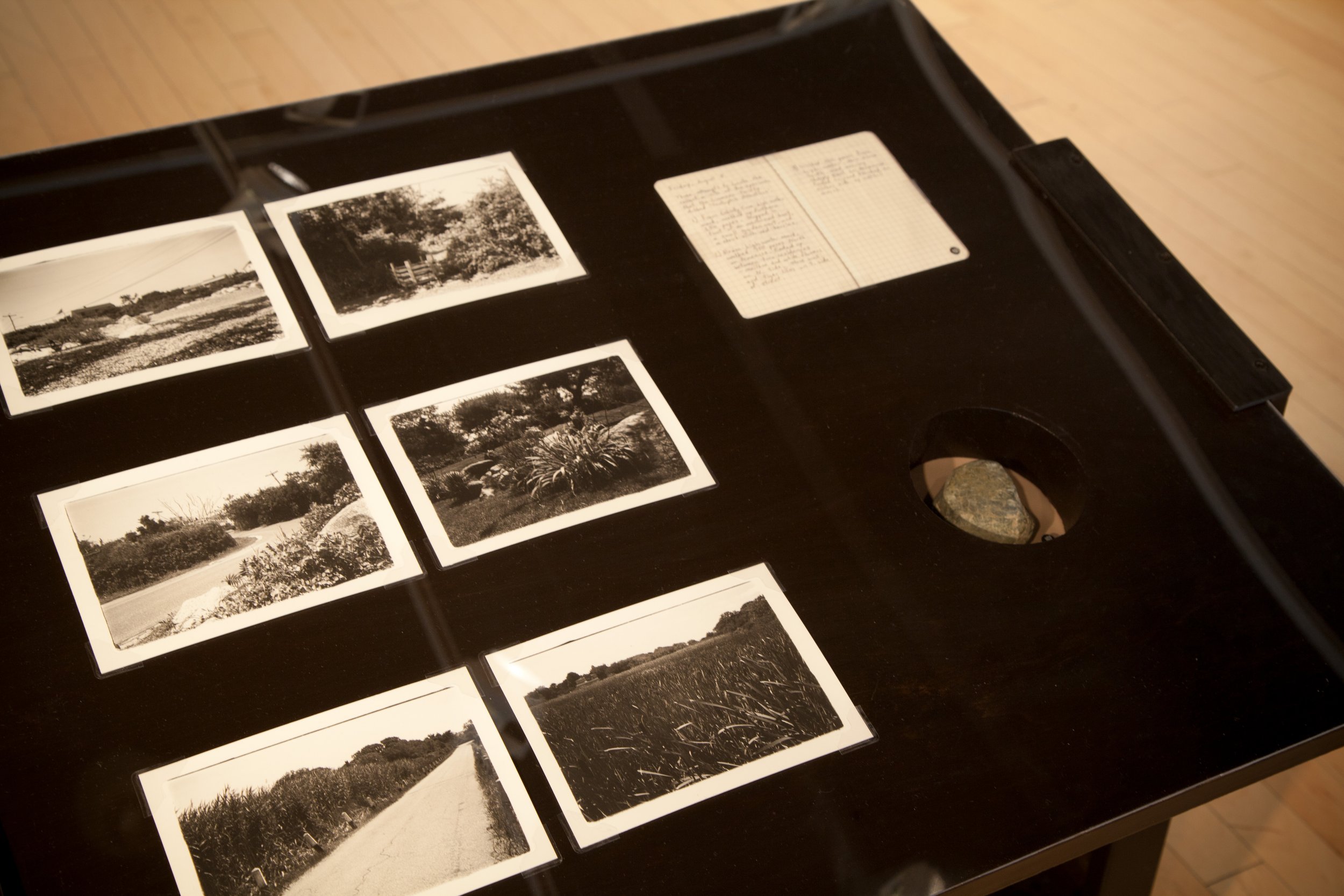

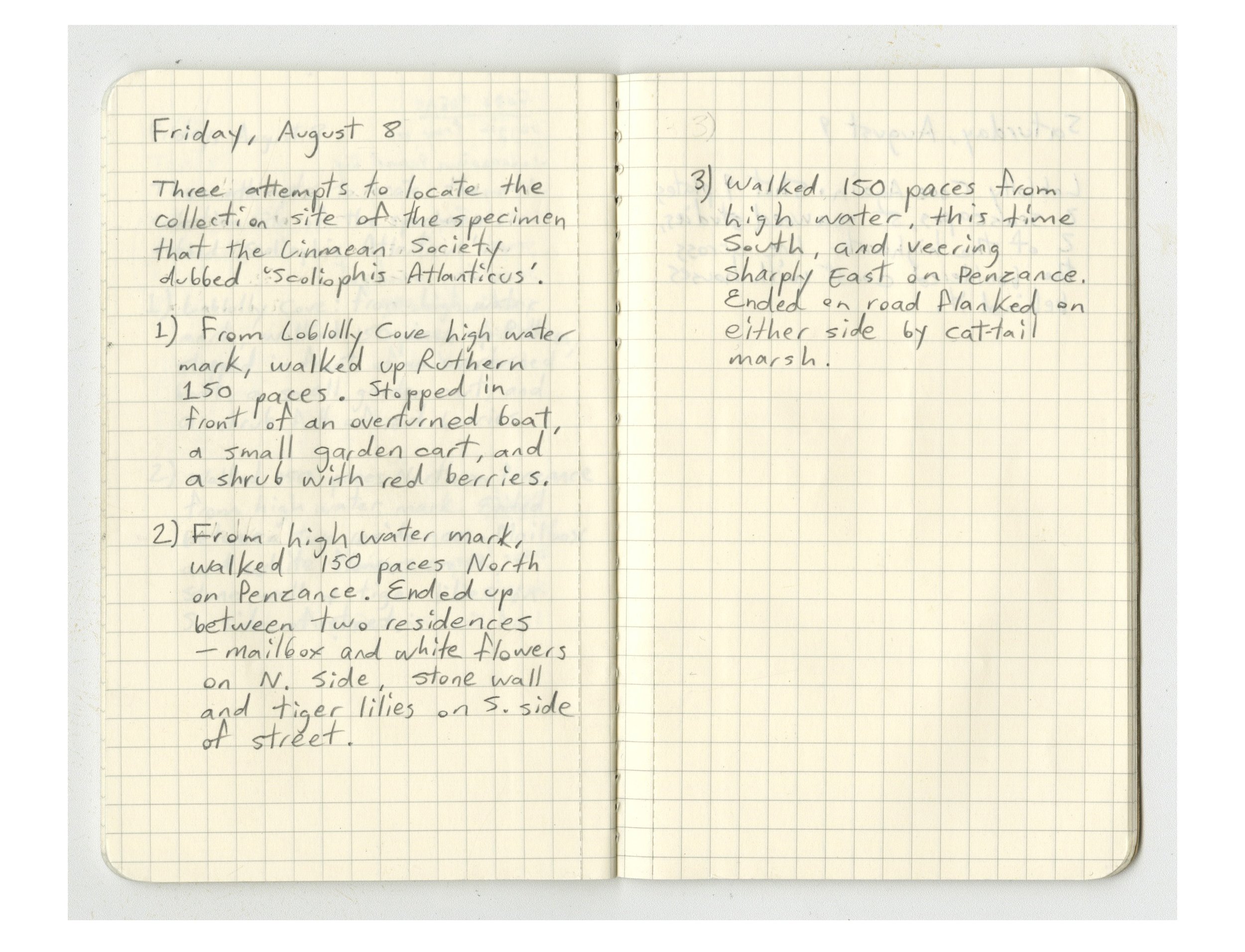
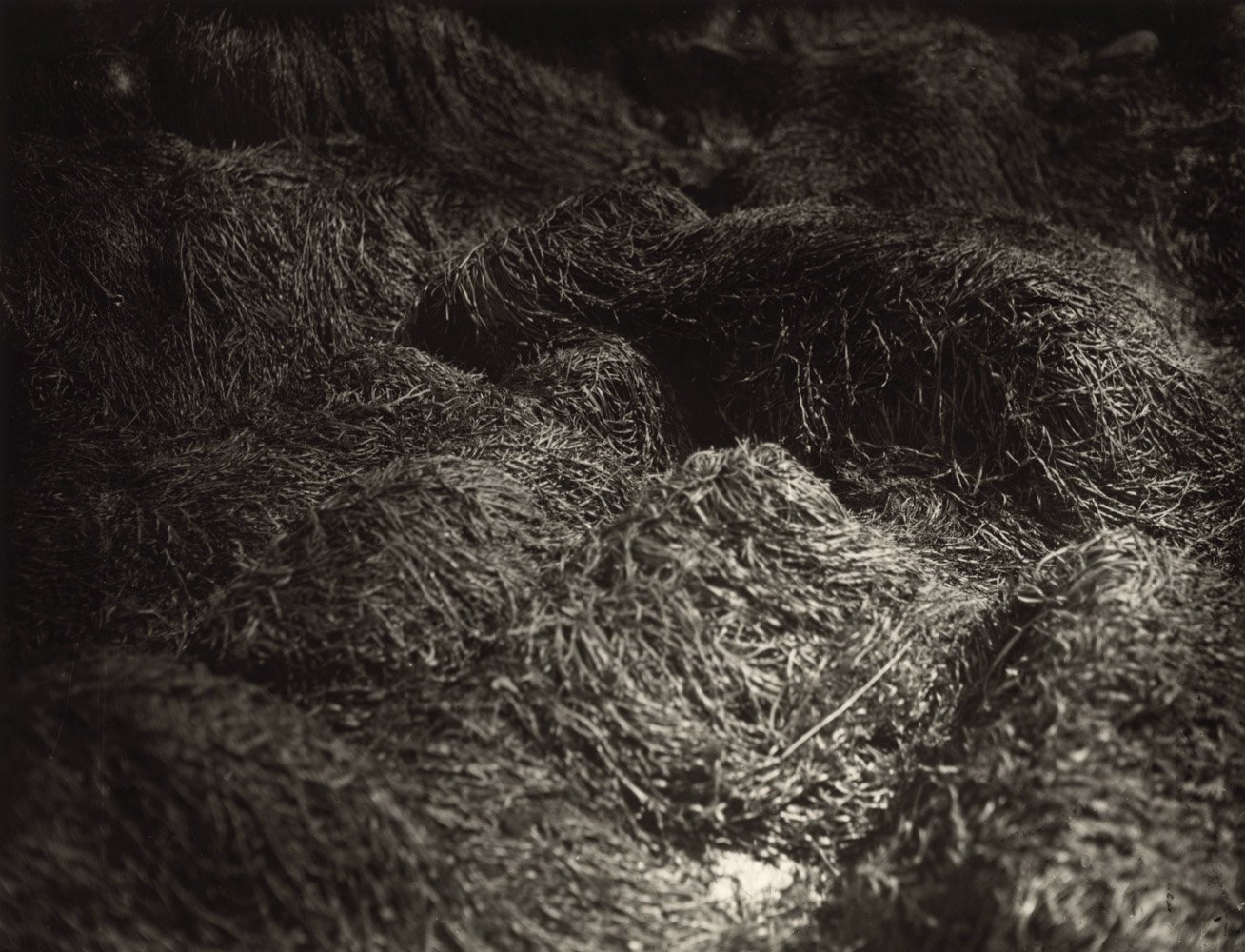
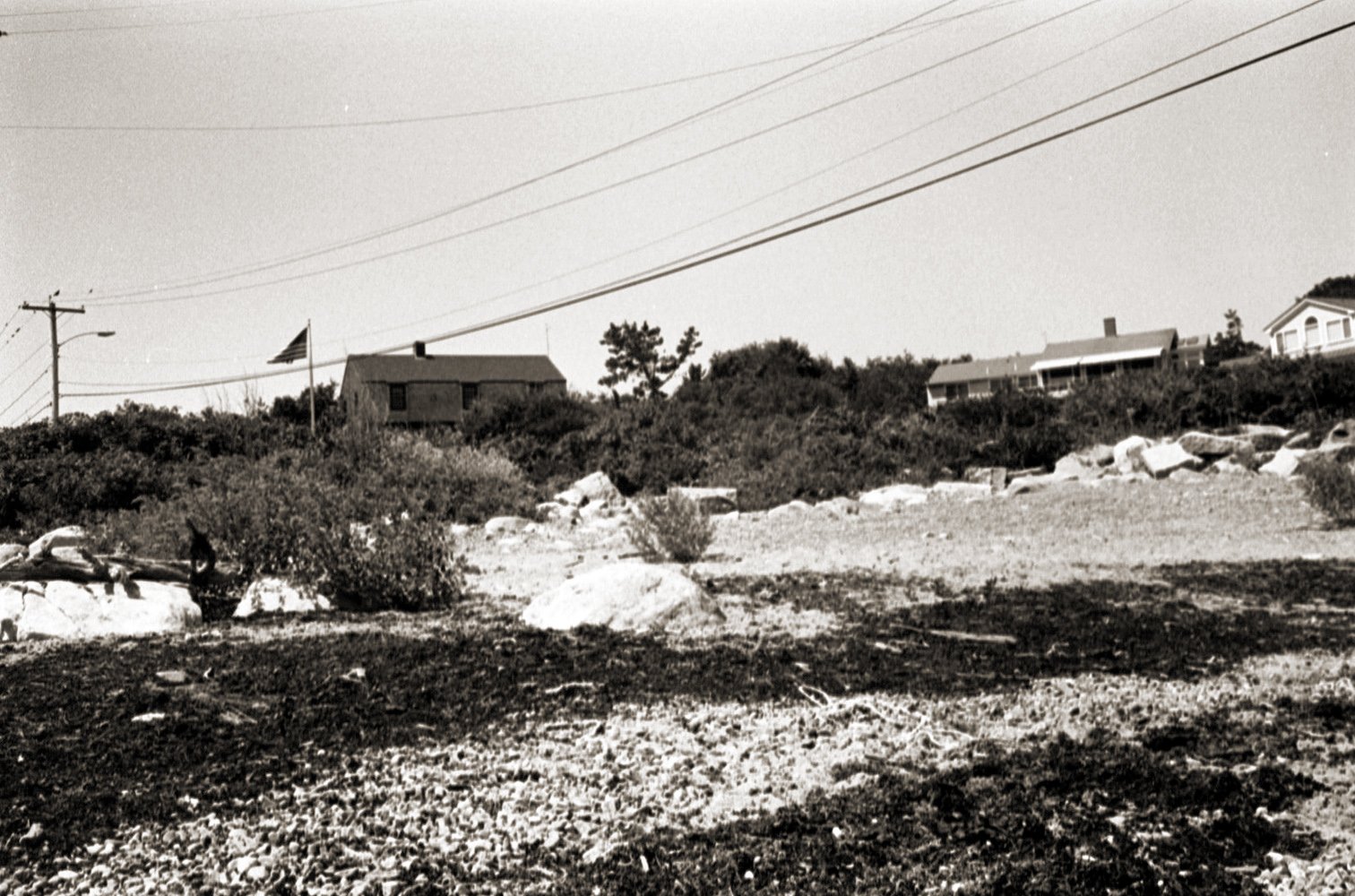
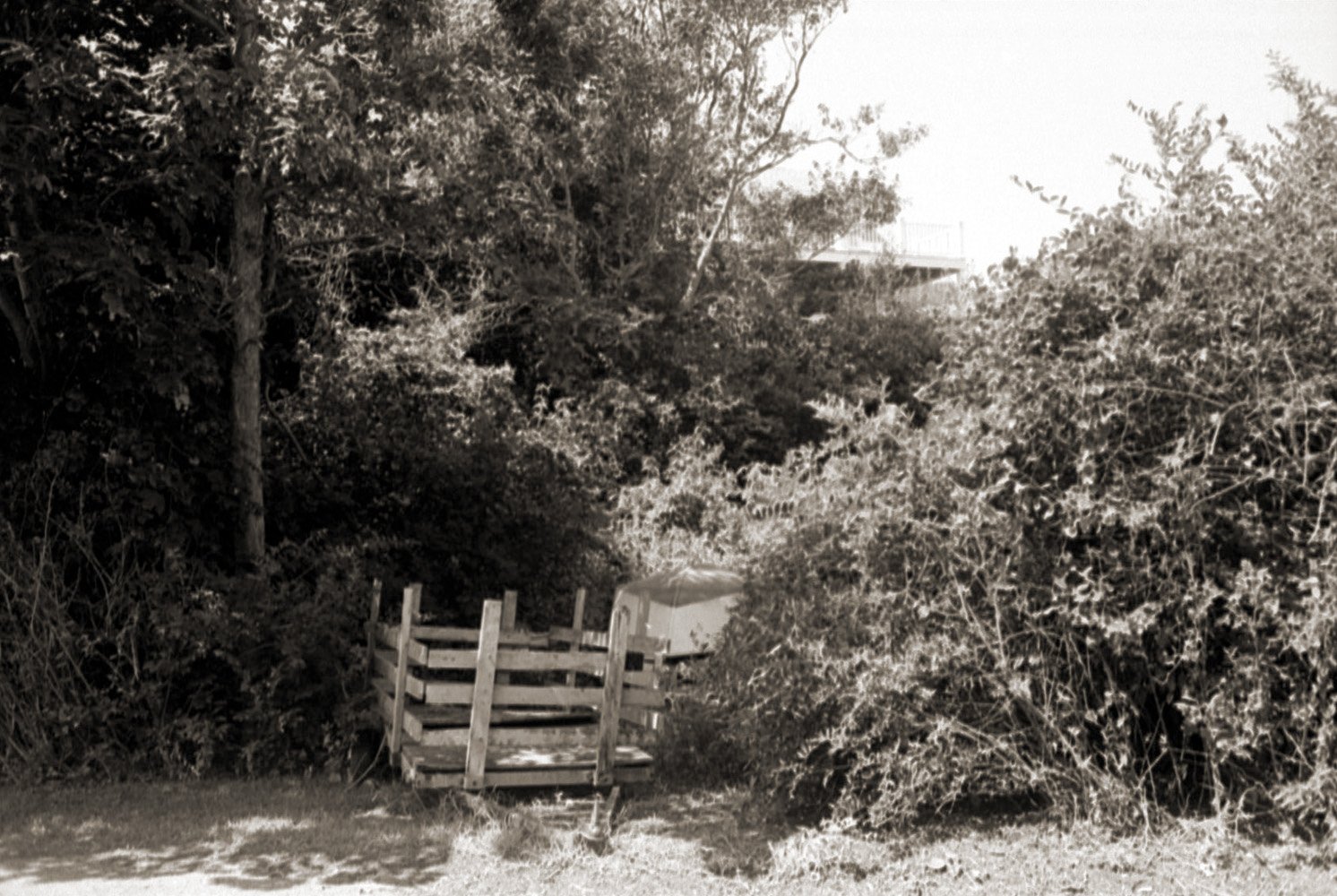
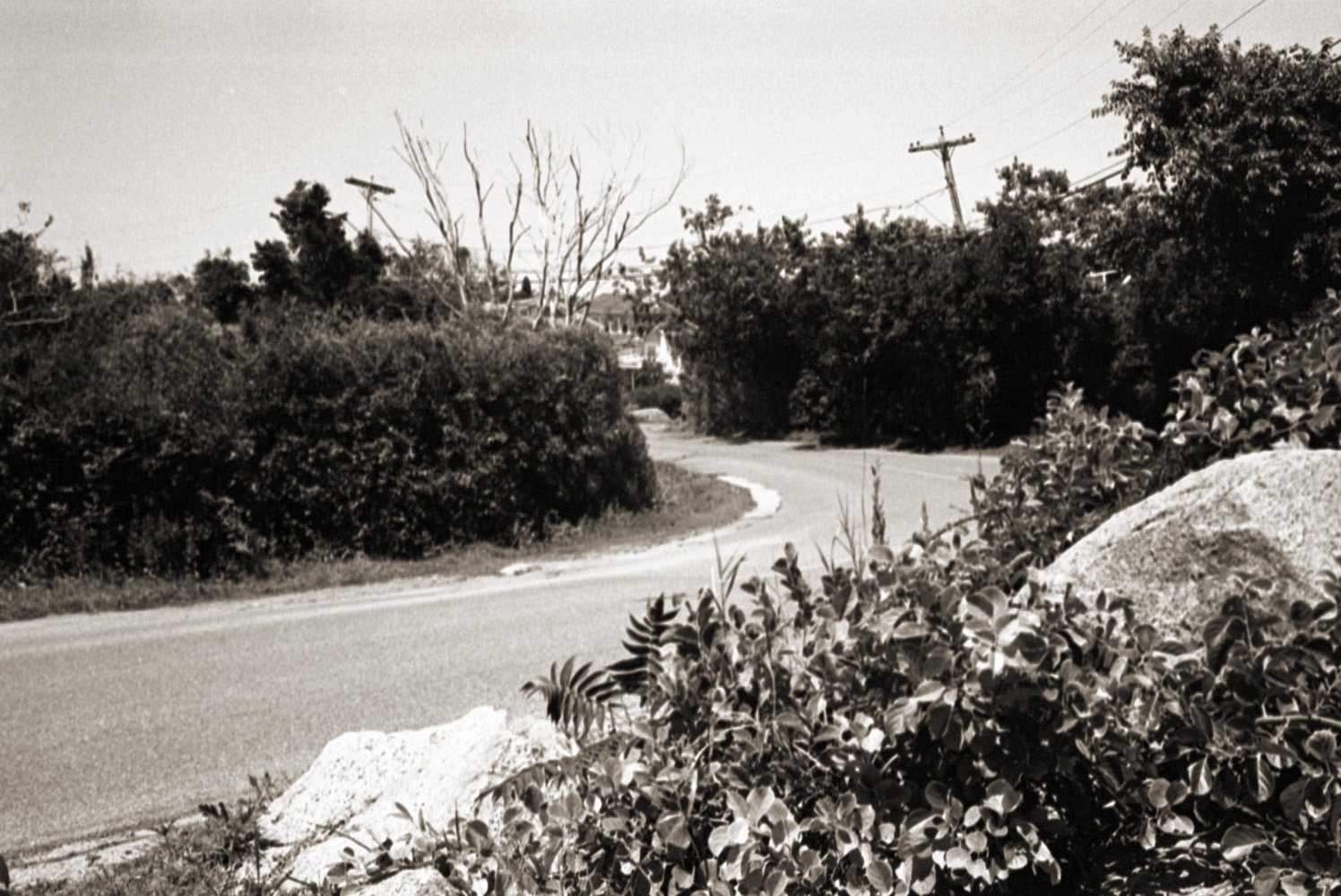
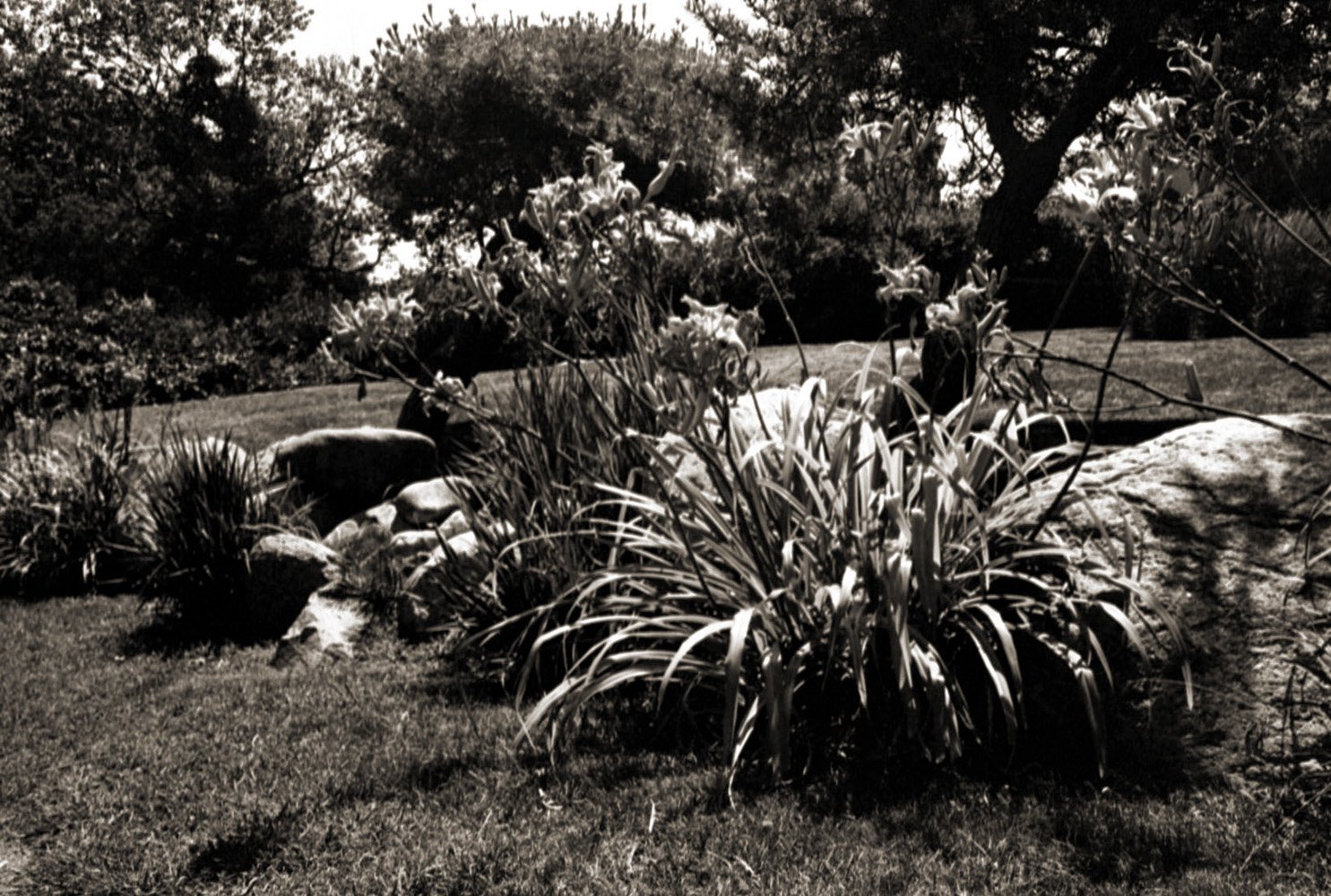
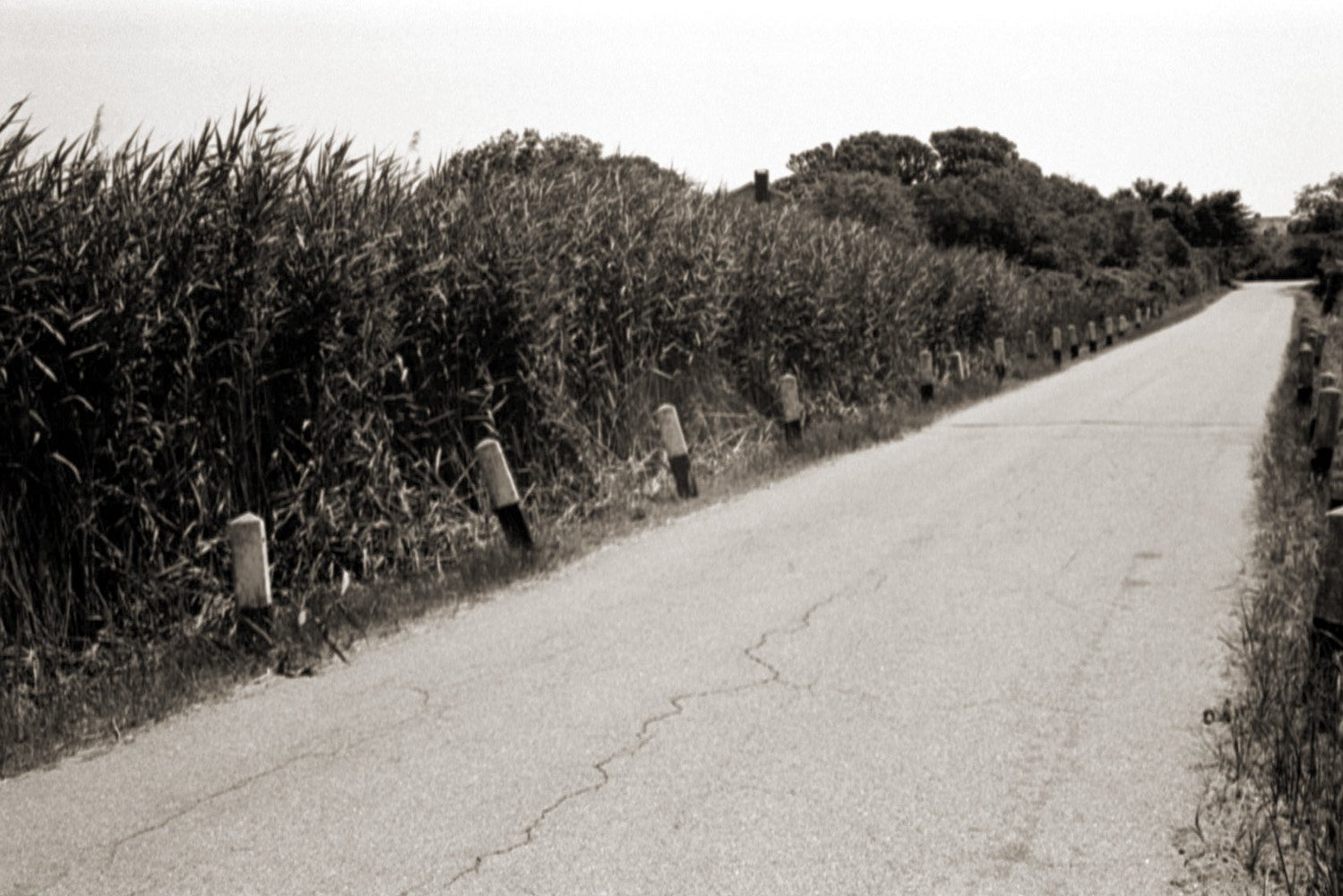
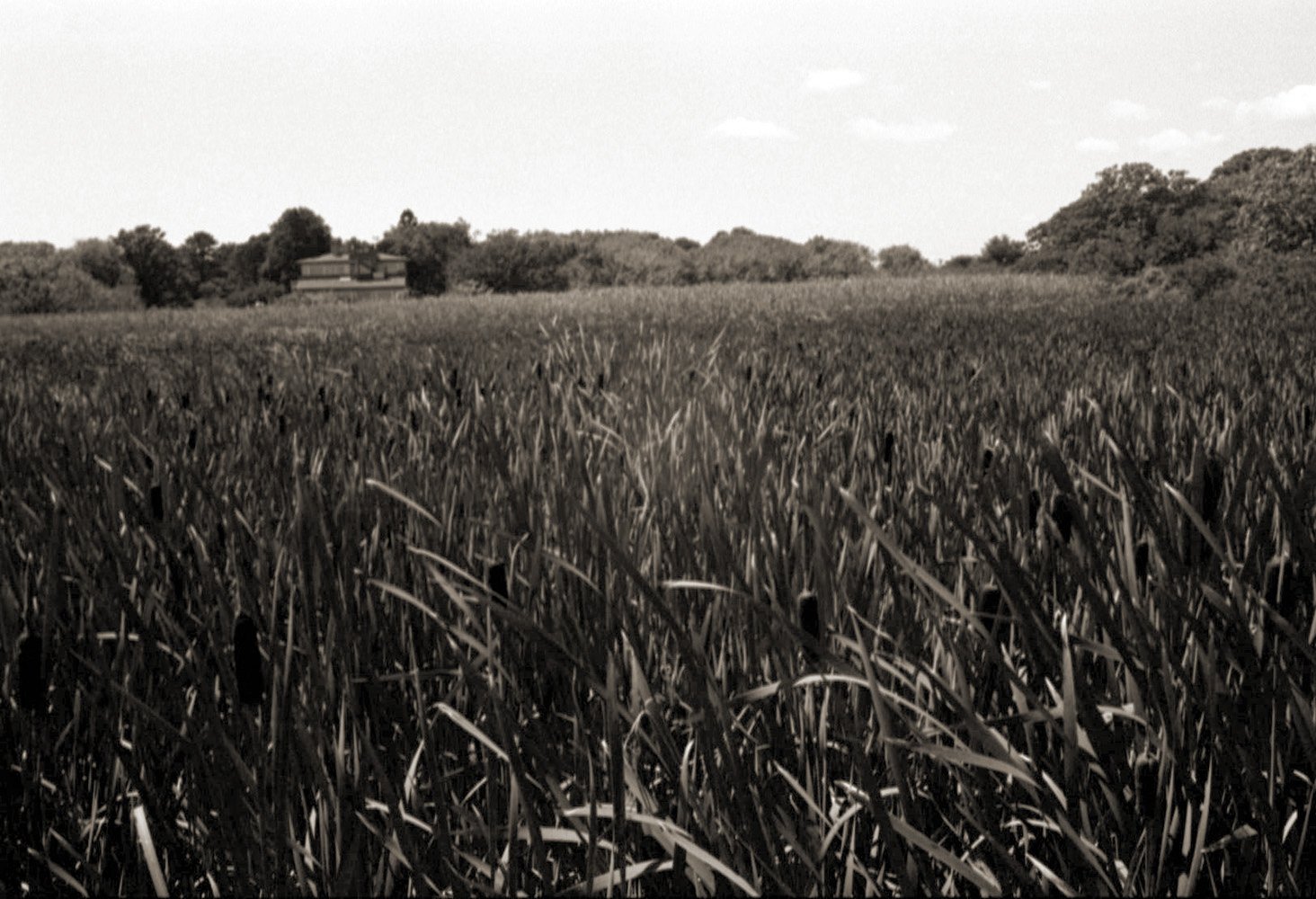
Dark Water
In August of 1817, a large marine animal swam into Gloucester Harbor. Over the next few weeks, a number of reputable people claimed to have seen what they described as a “sea serpent” in the waters around this small Massachusetts fishing village. Many scholars, scientists, and historians have attempted to speculatively identify this creature as a species yet unknown to science, and even more skeptics have disparaged the account as a hoax, or the product of provincial naïveté. Yet what really happened that summer, 200 years ago, remains a mystery. The true identity of the Gloucester Sea Serpent remains unknown: irretrievably lost to the passage of time.
This enigma of natural history became the narrative spine of the body of work I have titled Dark Water. I made much of this work in Gloucester itself, where I sought out serpent-sighting locations and historic landmarks, as well as original documents and artifacts housed at the Cape Ann Museum. My process involved putting my photographs together with historic texts and other relics in a subjective and poetic way. I crafted a fragmented, elliptical narrative composed of images, texts, and found objects related (at least in some tangential way) to the Sea Serpent story. The viewer of this exhibition is asked to take on the role of a detective, following the narrative thread that binds together an idiosyncratic sequence of images and objects.
This project investigates the slippage between fact and fiction, as well as the seepage of the past into the present. On one level, it is a work of romance: a fantastic reconstruction of the past. History is explored as a form of fiction, for the historian (or artist) must take an imaginative leap in order to connect the incomplete and often contradictory accounts of the Gloucester Sea Serpent. At the same time, the project is inextricably bound to the present landscape of Gloucester, with its upscale vacation homes, tourist attractions, and commercial fishing industry. My goal was to use photography to create a sense of place: a mundane landscape haunted by ghosts of the past.
Part of the Sea Serpent tale’s ongoing appeal is certainly the campy, ironic appeal of its mythological aspects: the extravagant fantasy of a sea monster terrorizing townsfolk and doing epic battle with salty New England mariners. However, beyond being merely a quaint anecdote, I believe this narrative is extremely relevant to current questions about the environment and the relationship between humans and animals. The Sea Serpent disappeared before it was fully revealed. Dark Water is situated at this juncture of “undiscovered” and “lost.” Juxtaposing the human obsession with discovering and cataloging new species with the ongoing trauma of extinction and ecological loss, this project considers the sea as a melancholy space. The empty ocean may evoke the void of the unknown, or the void of extinction.